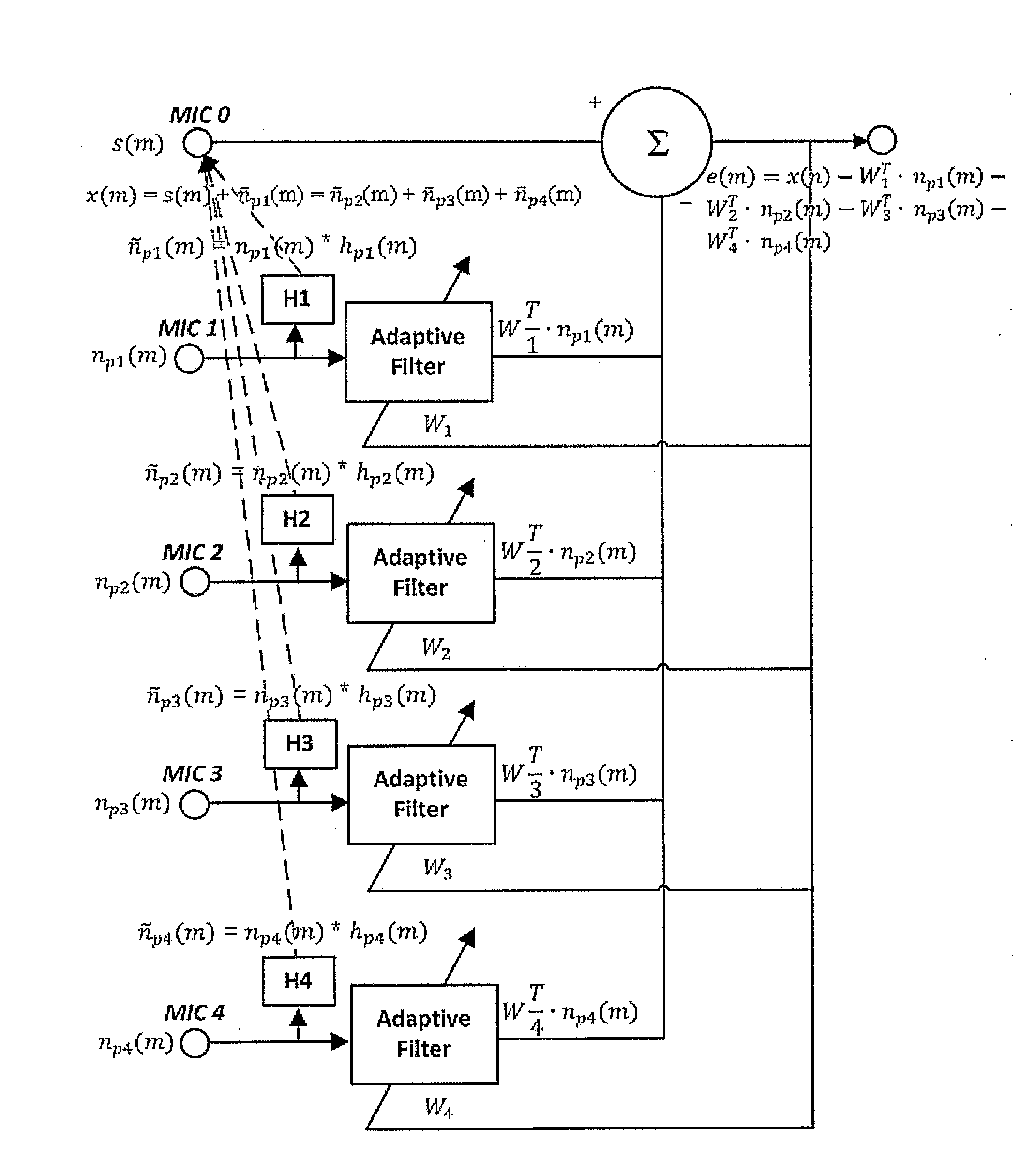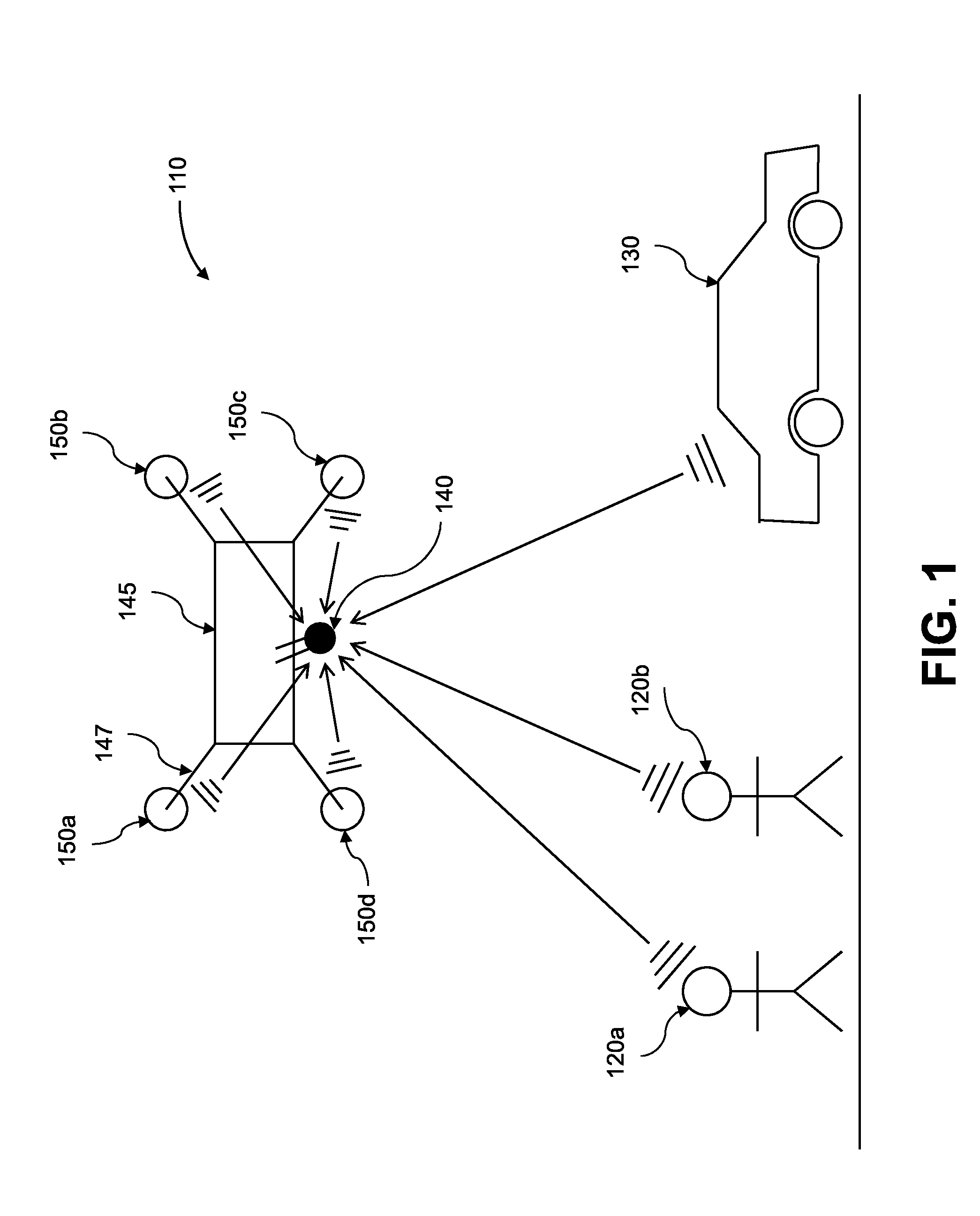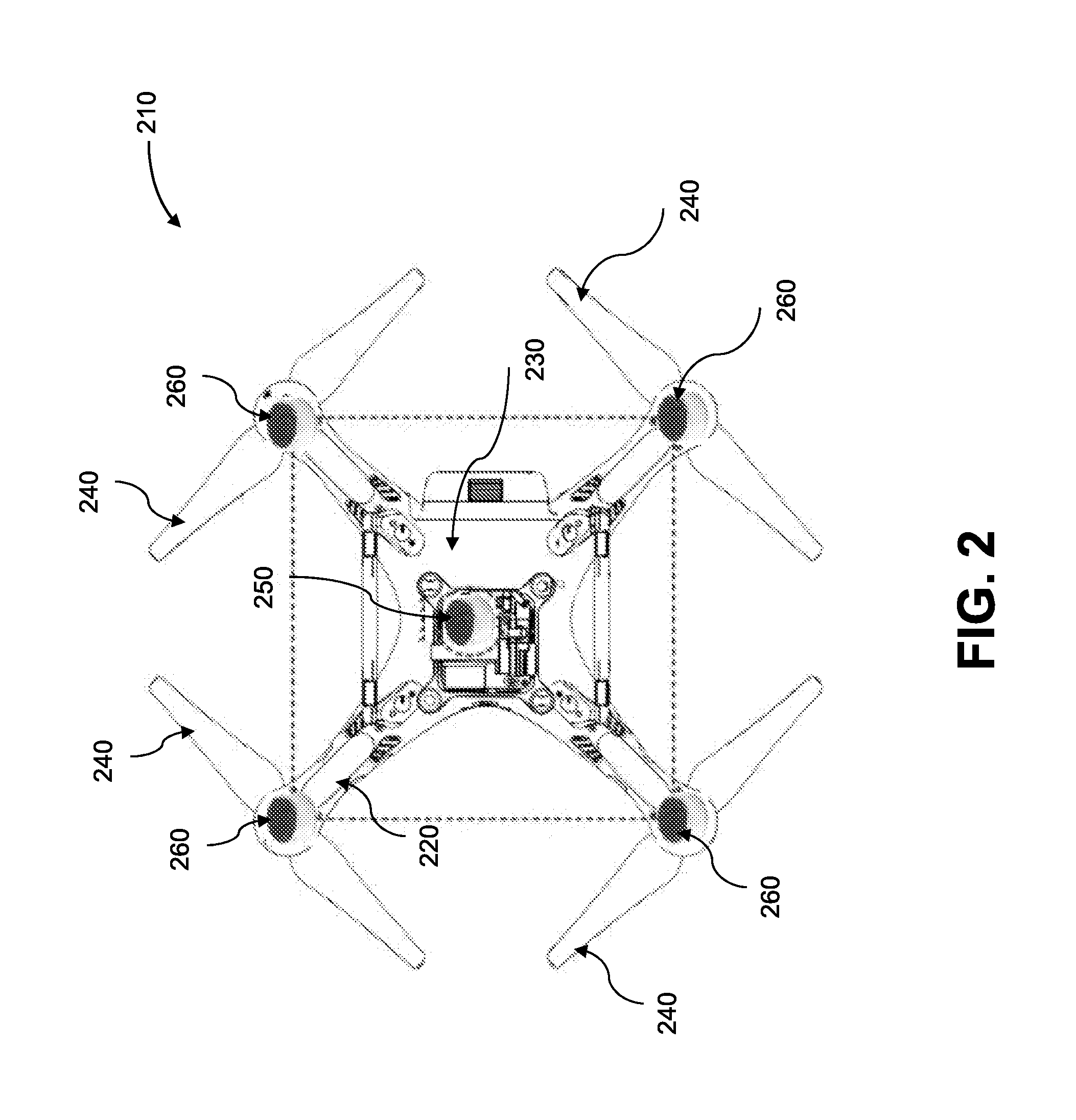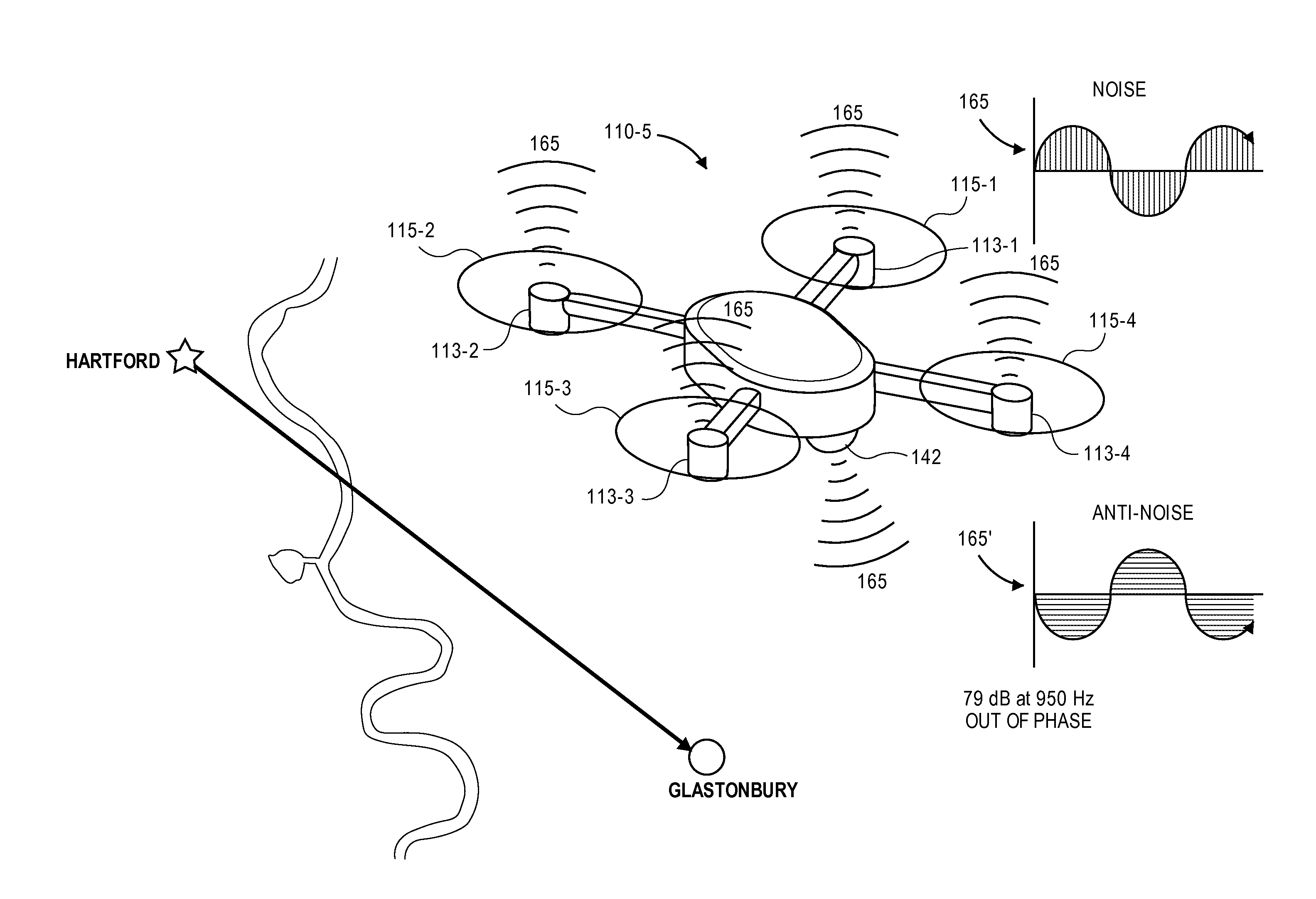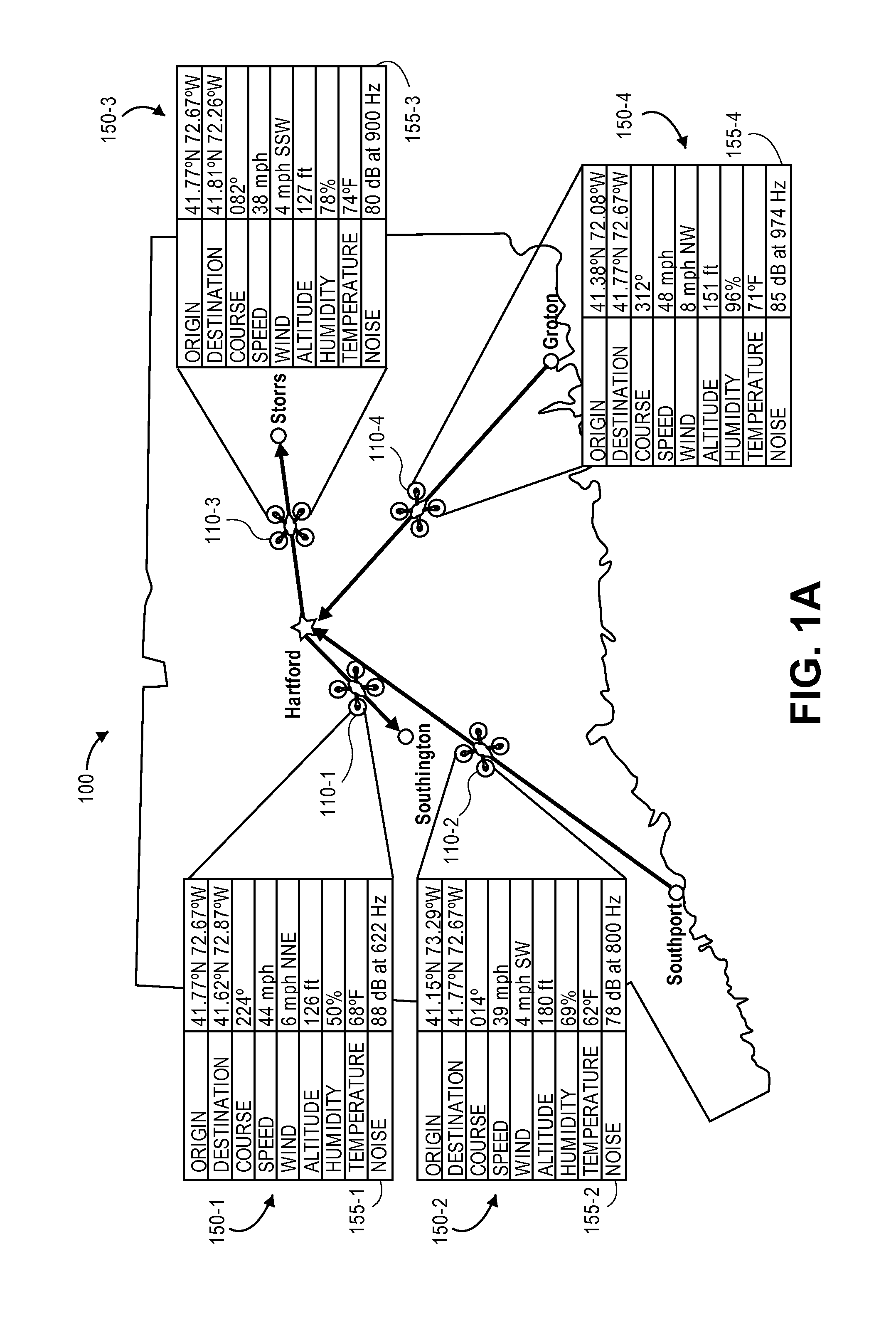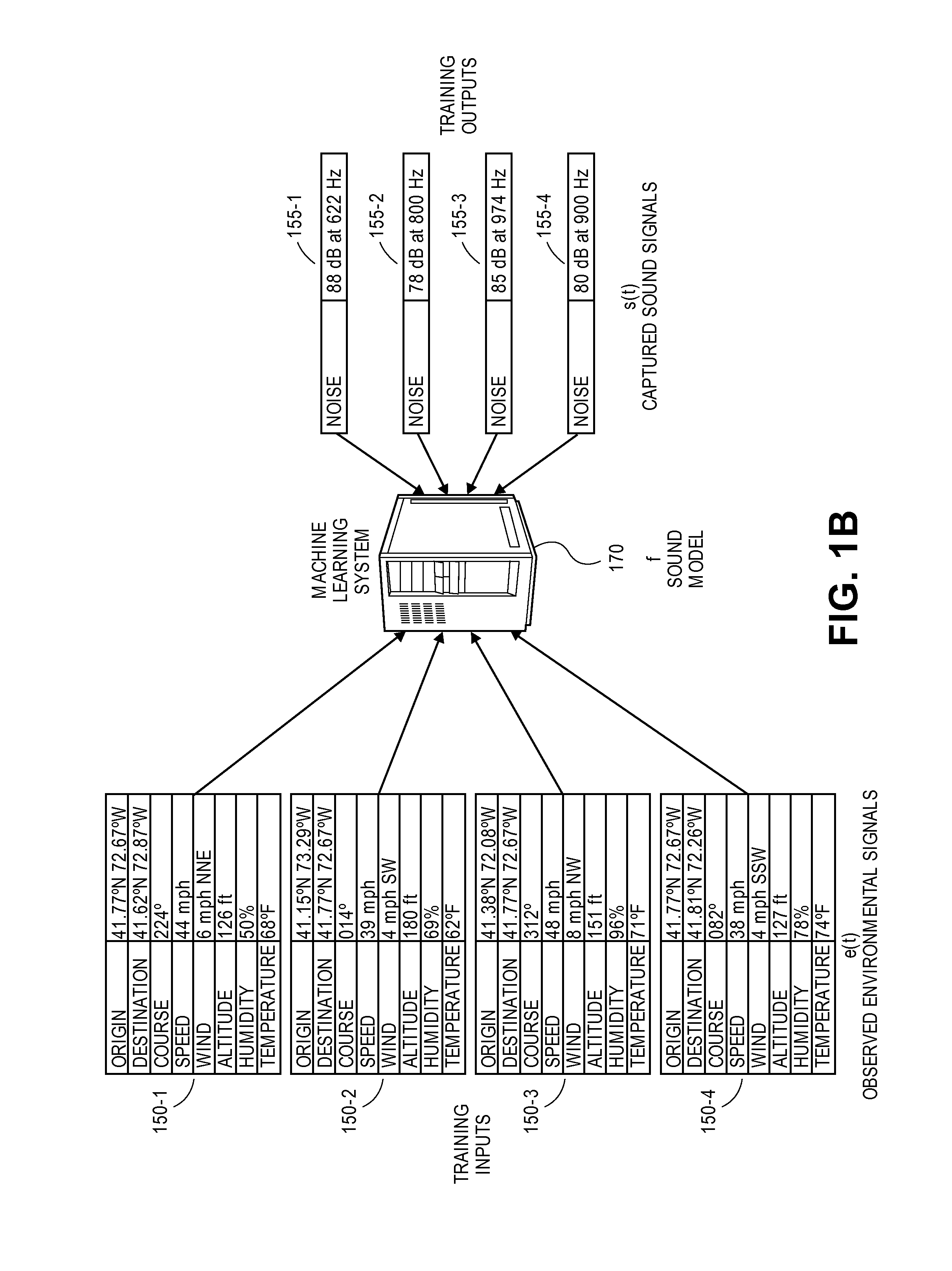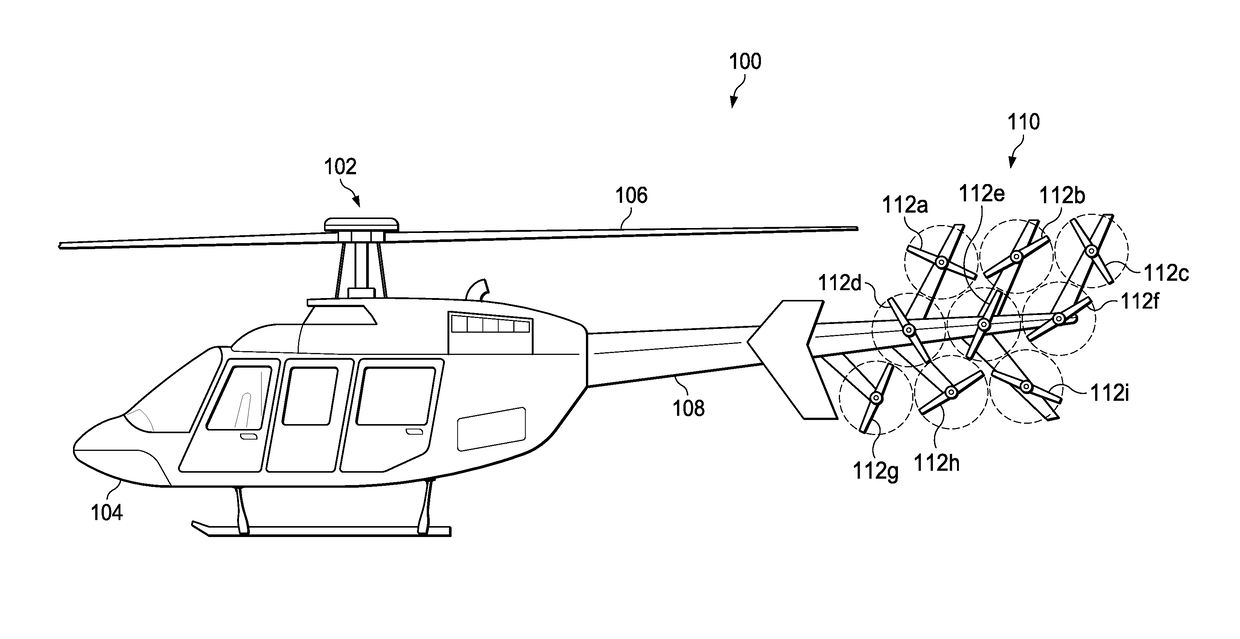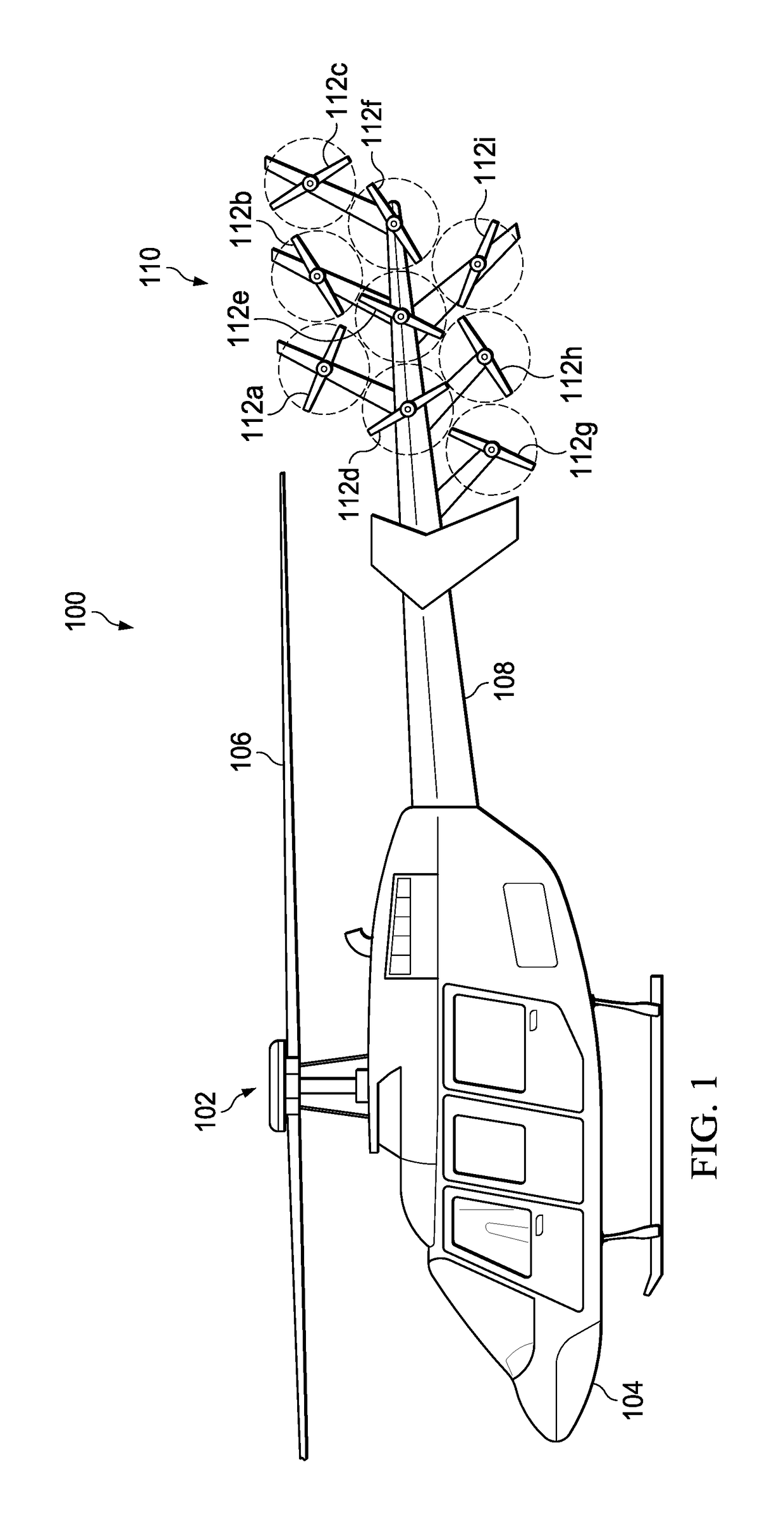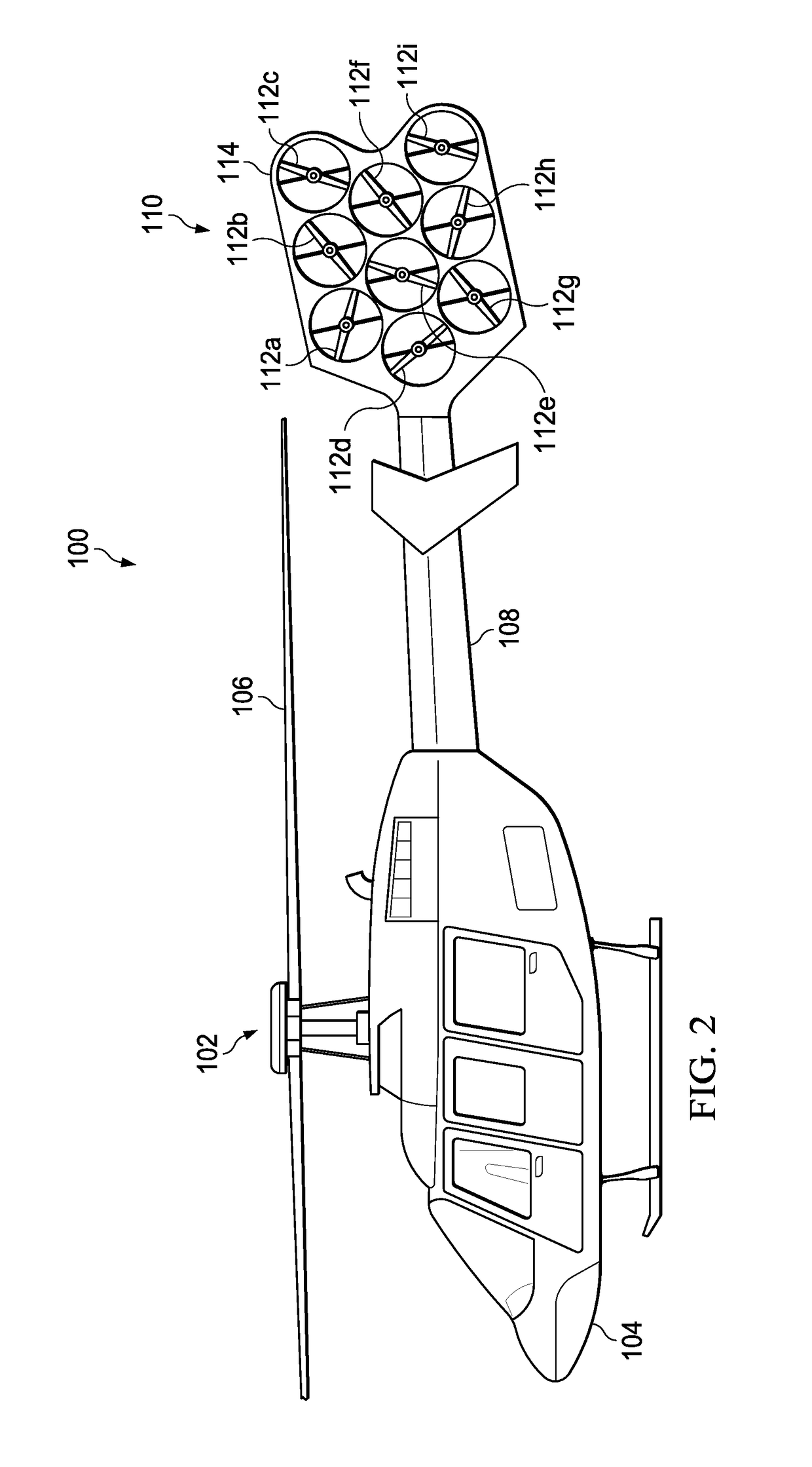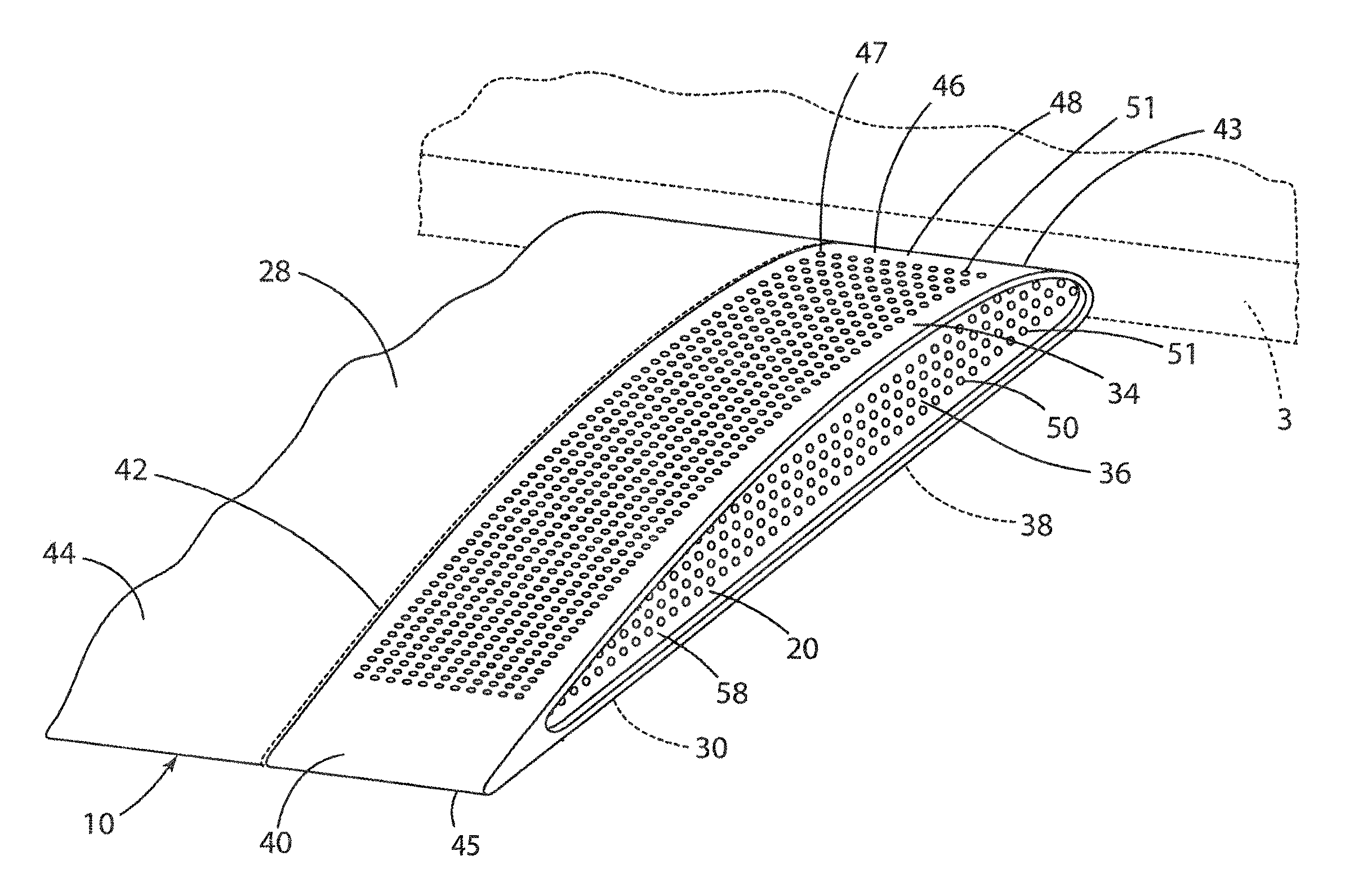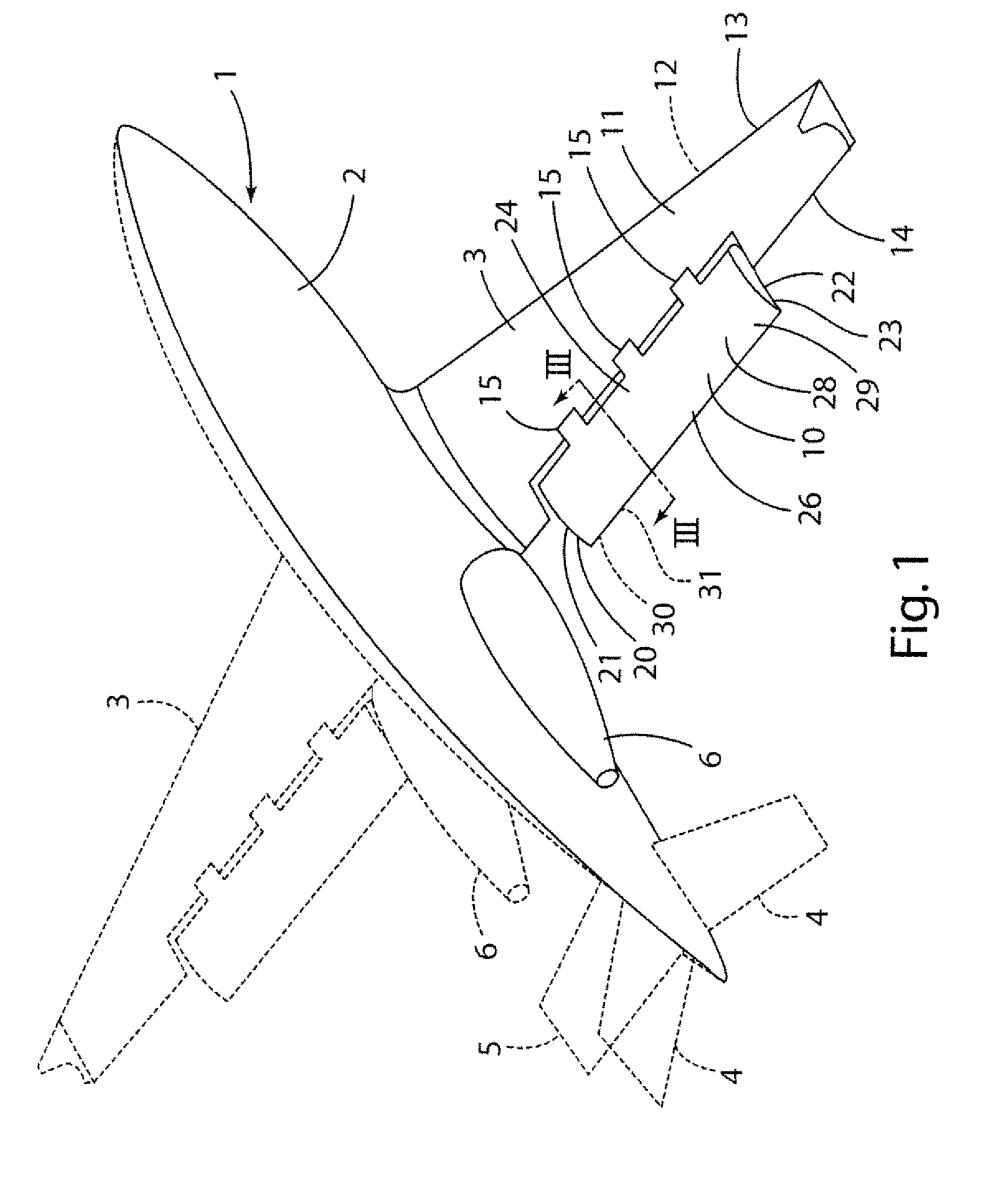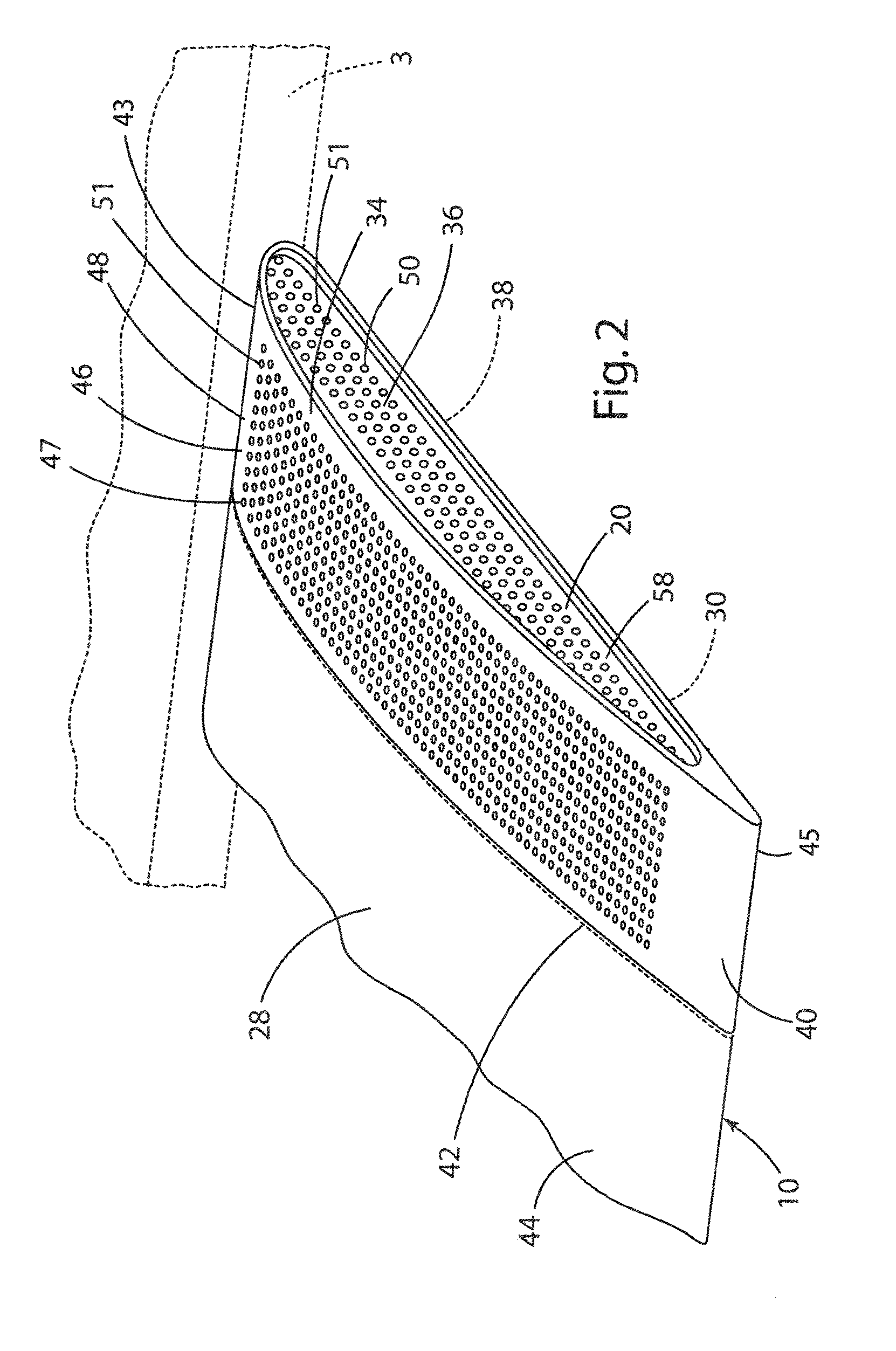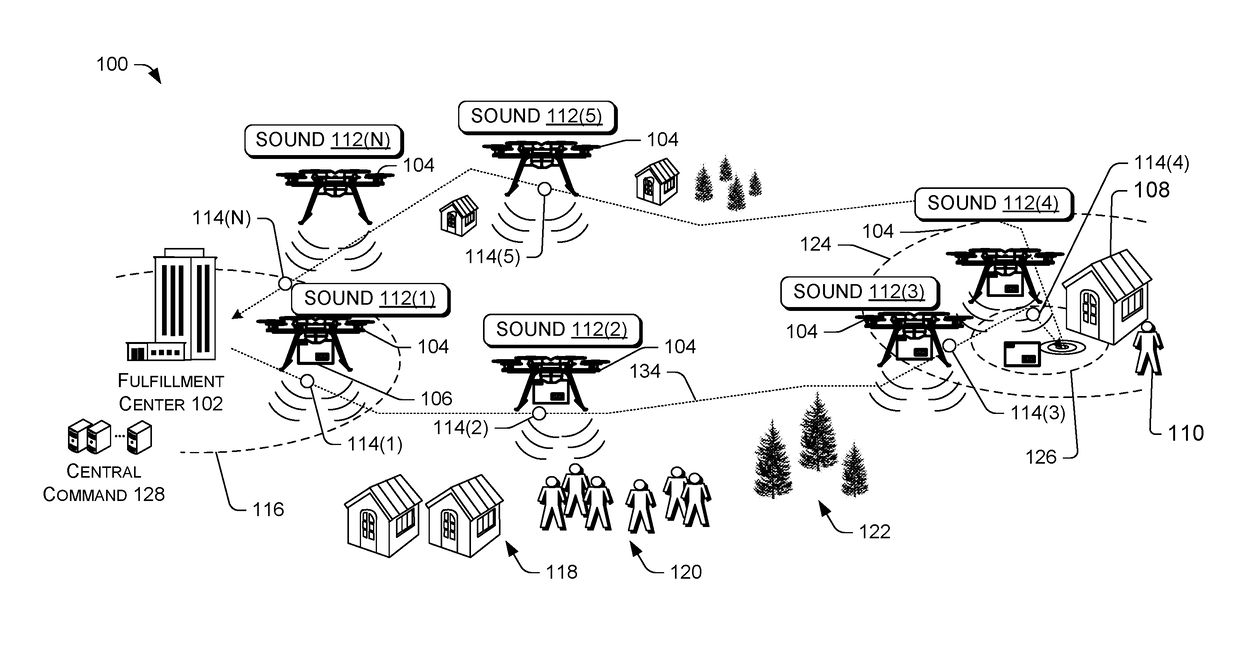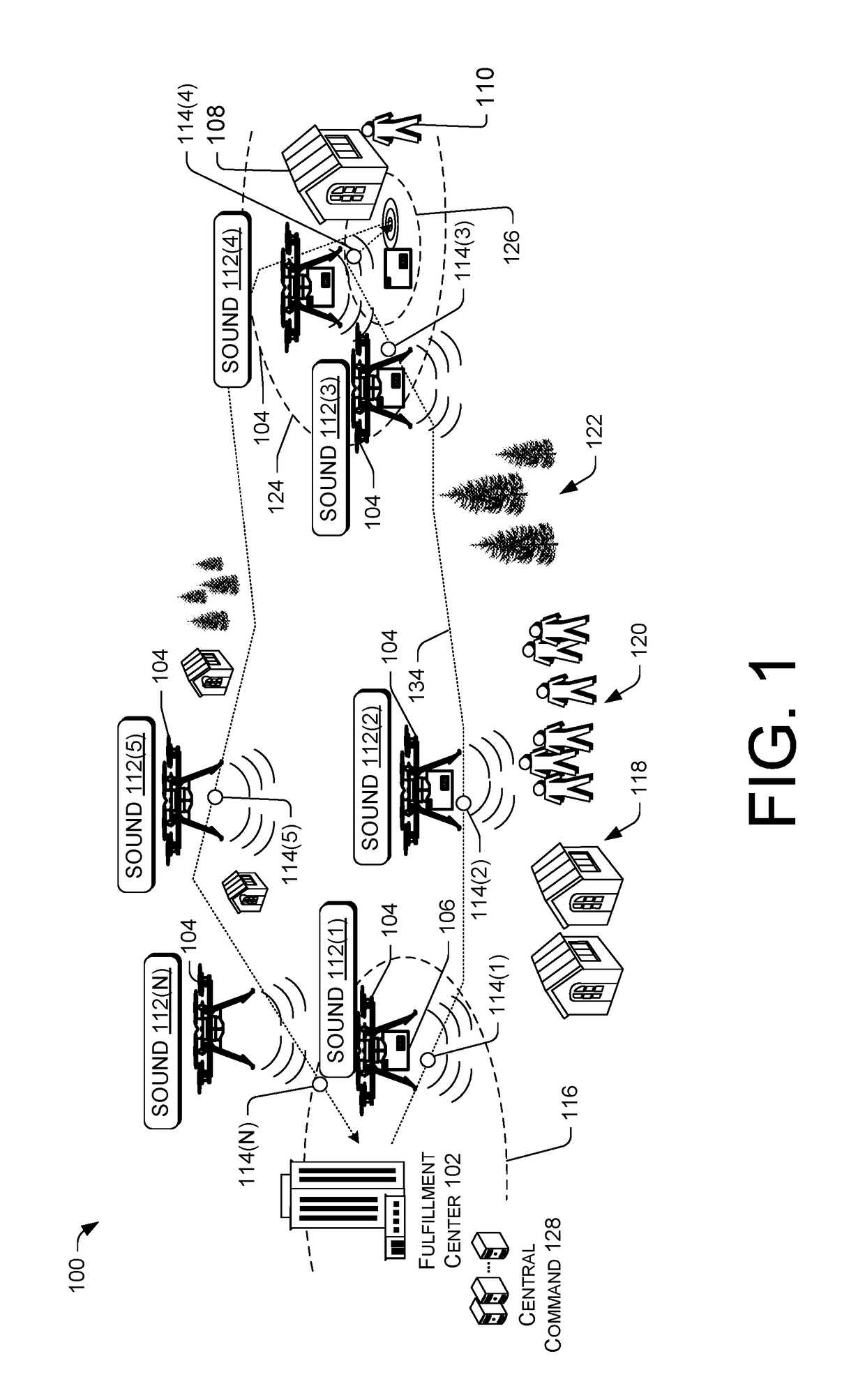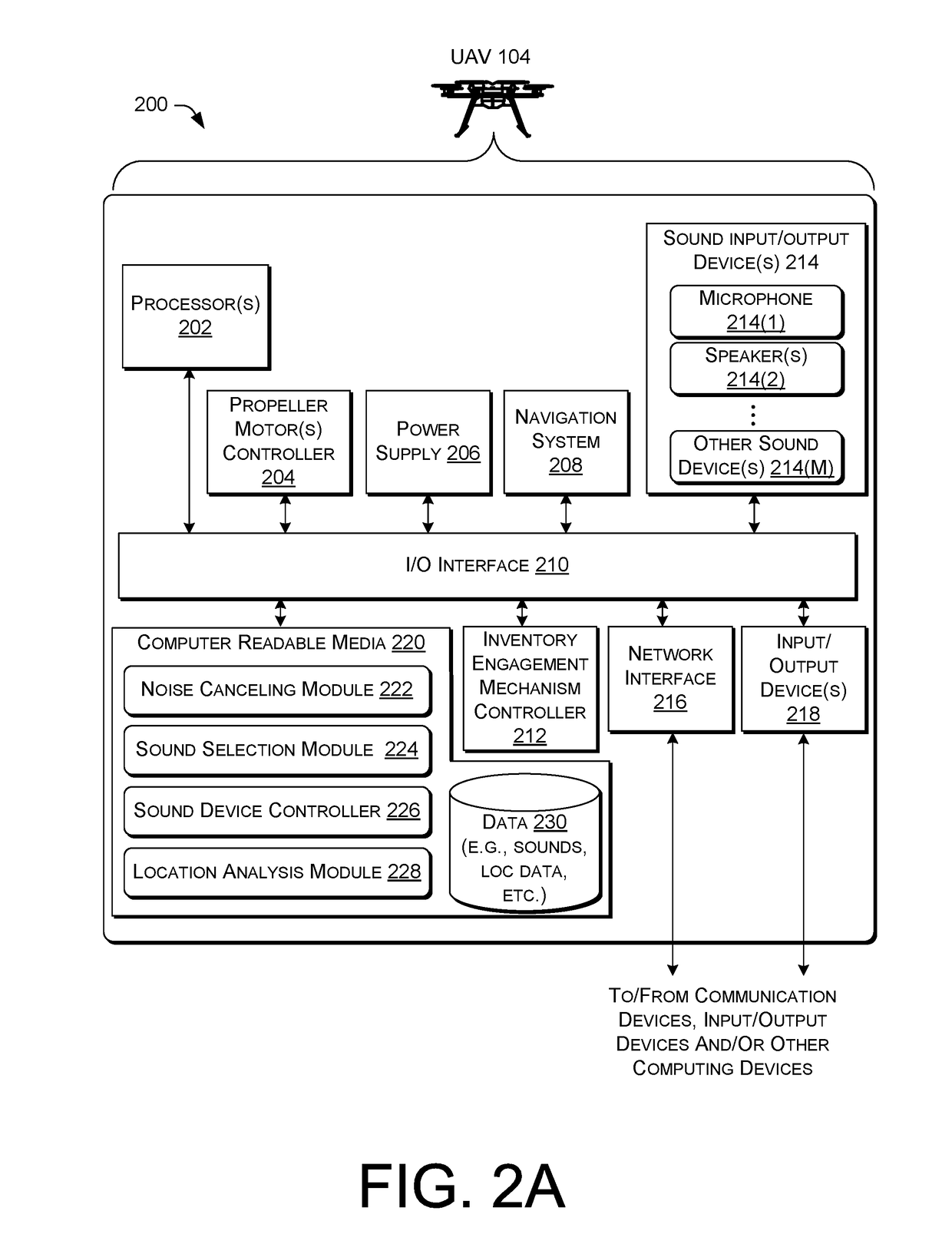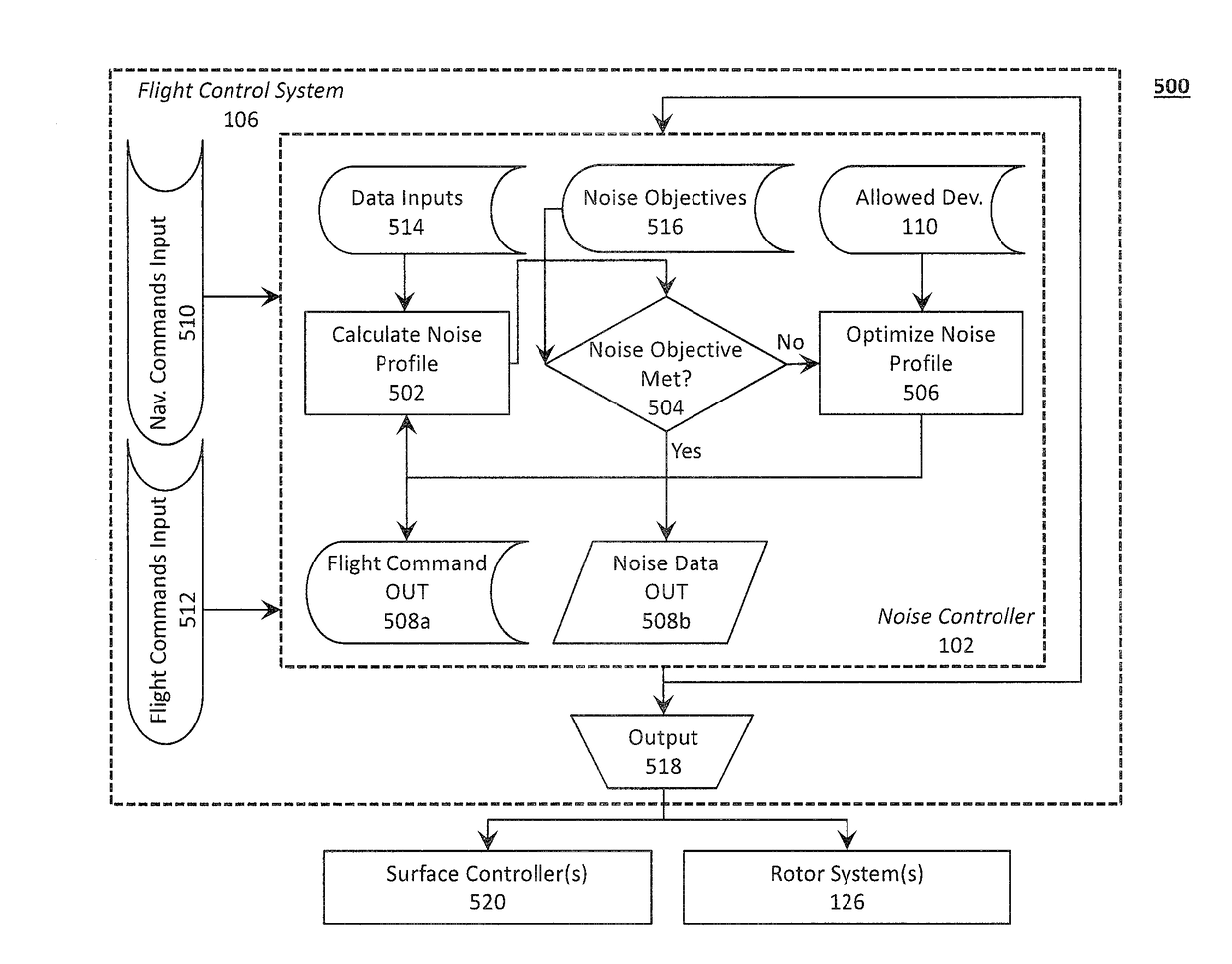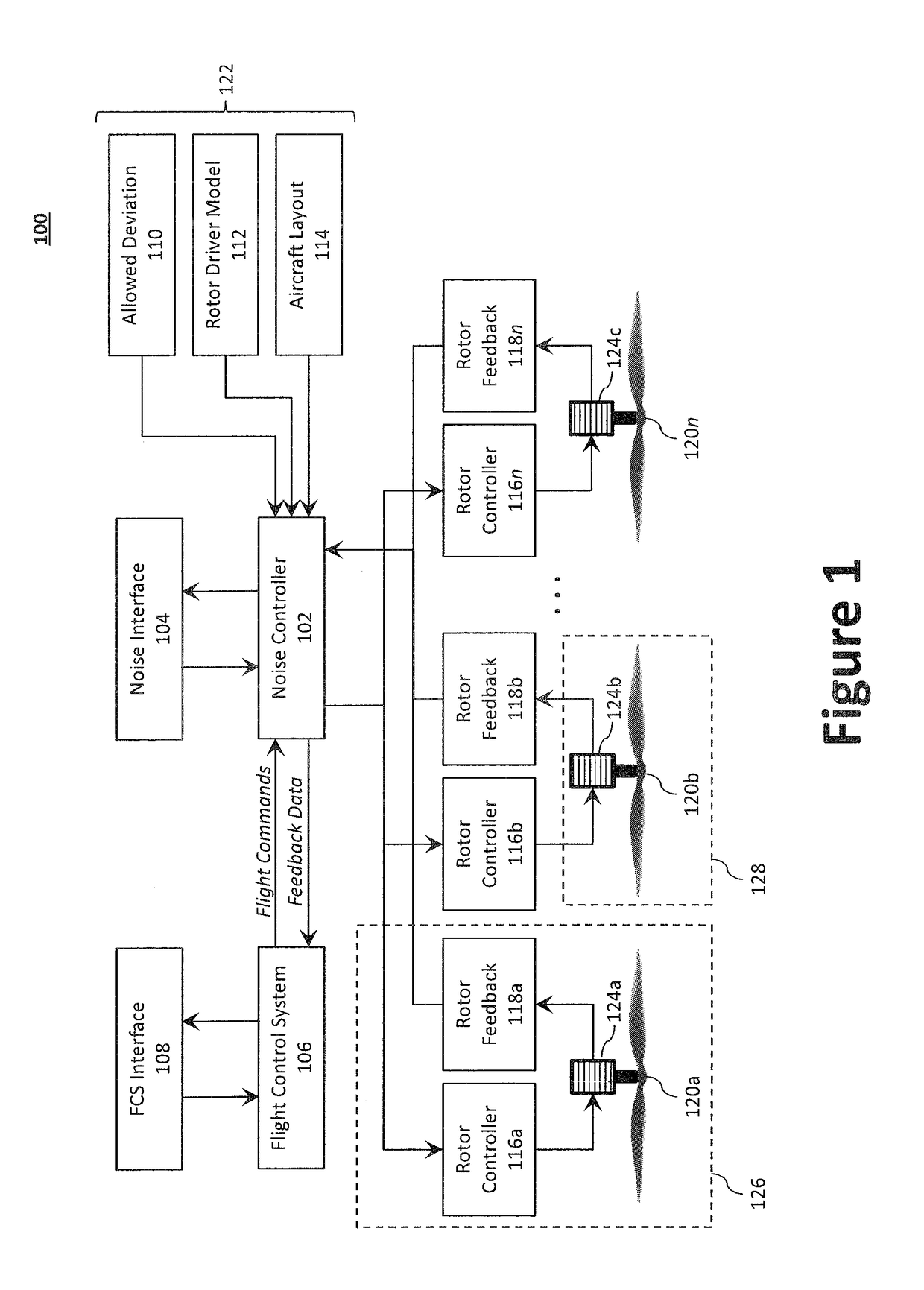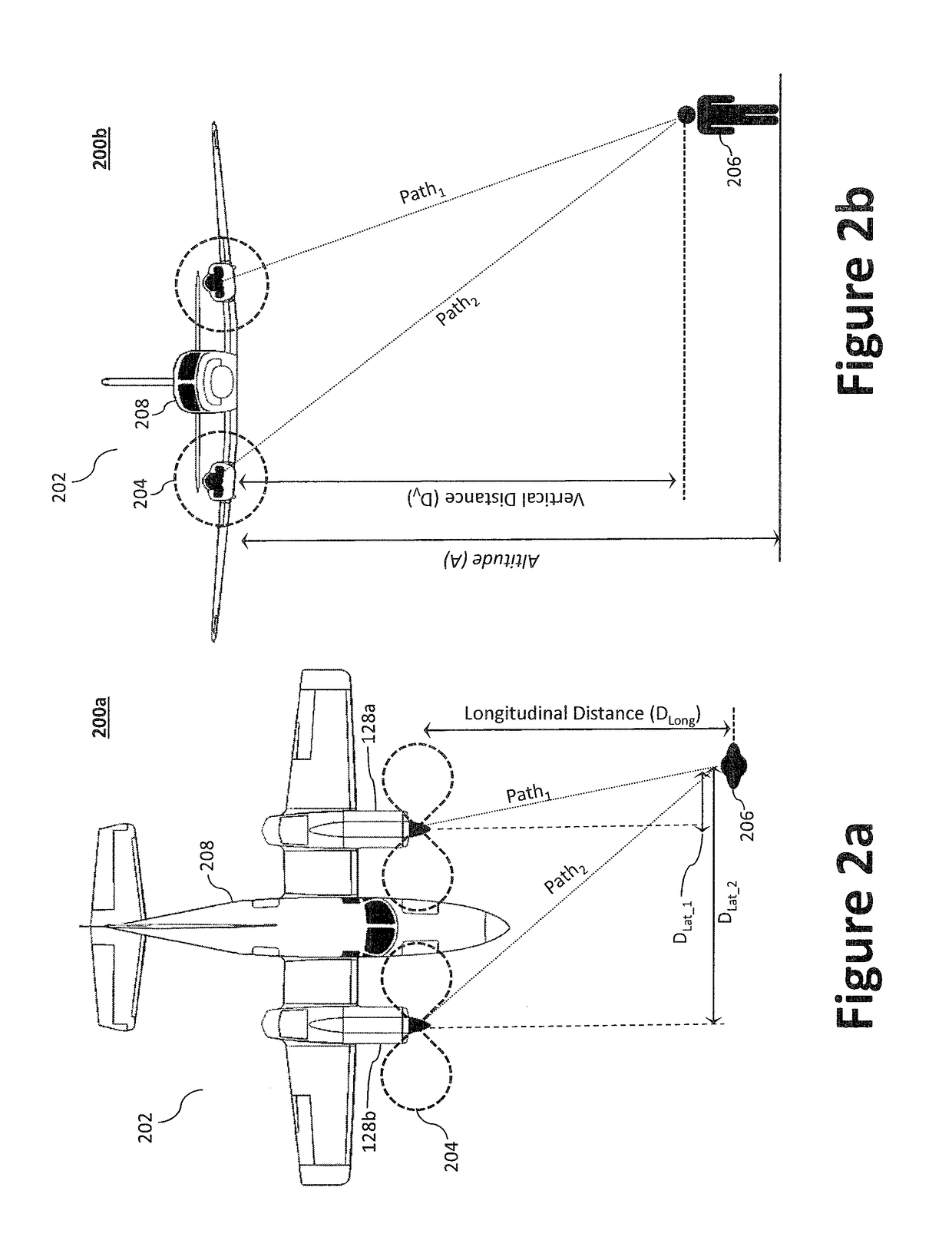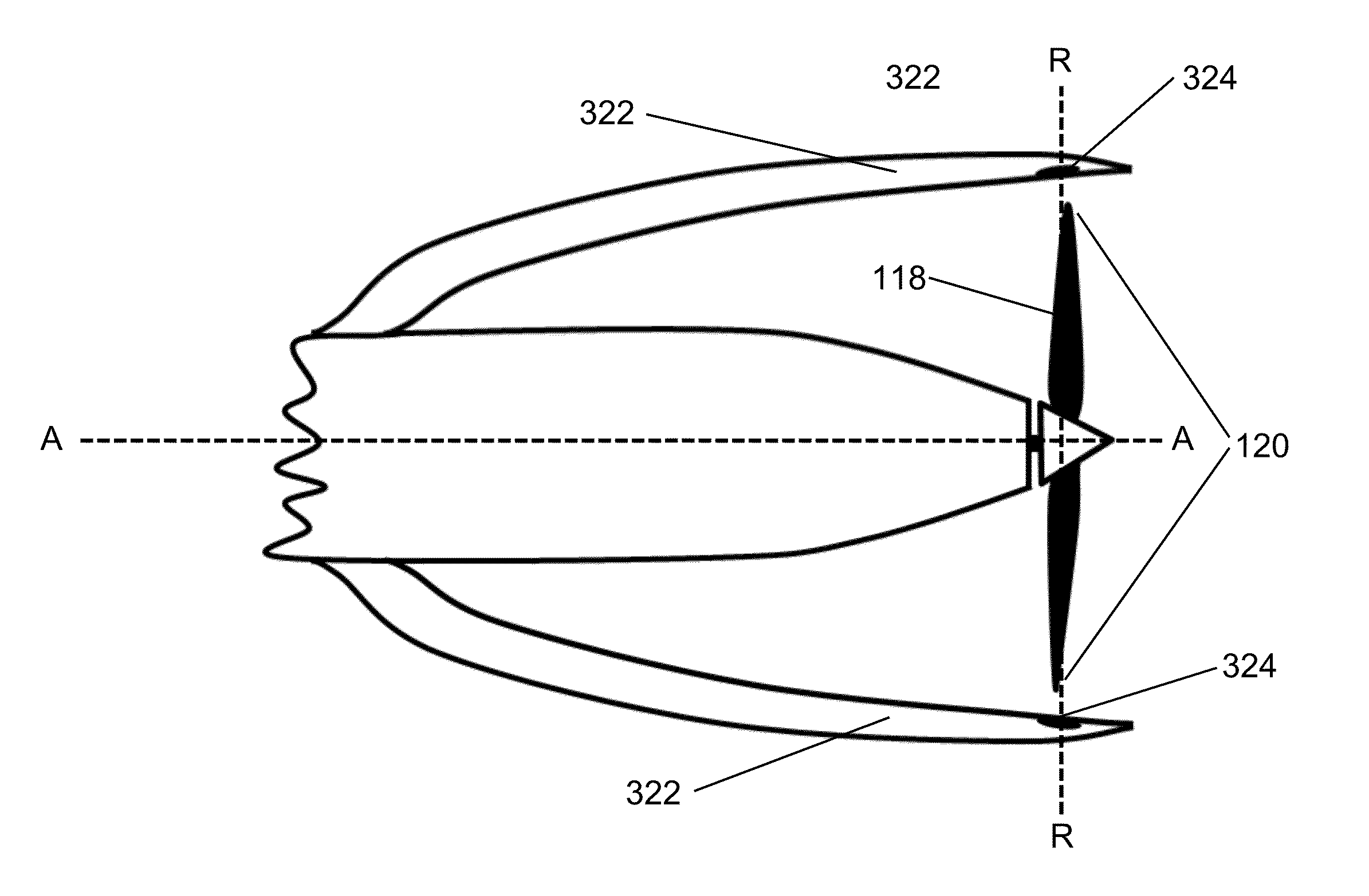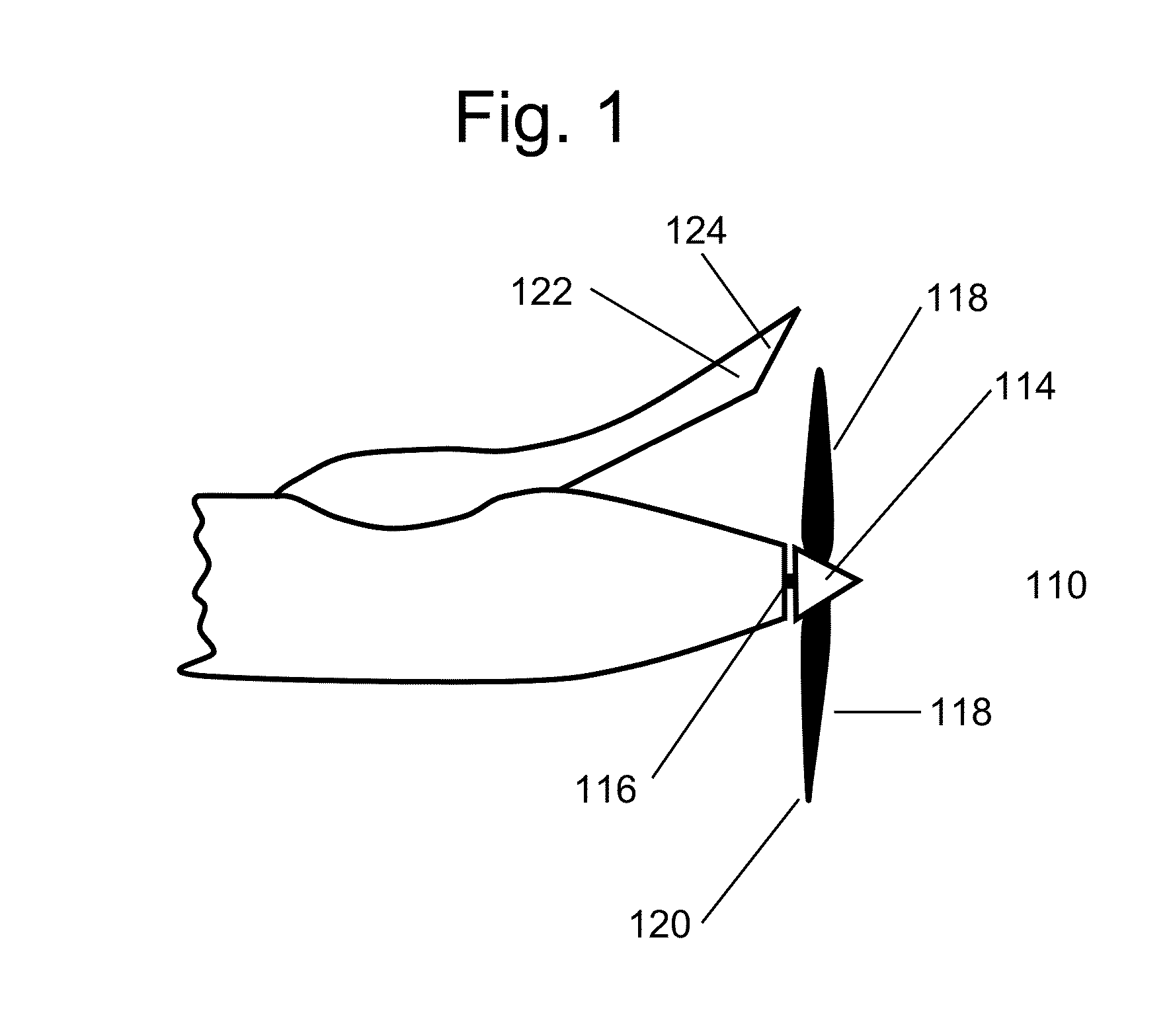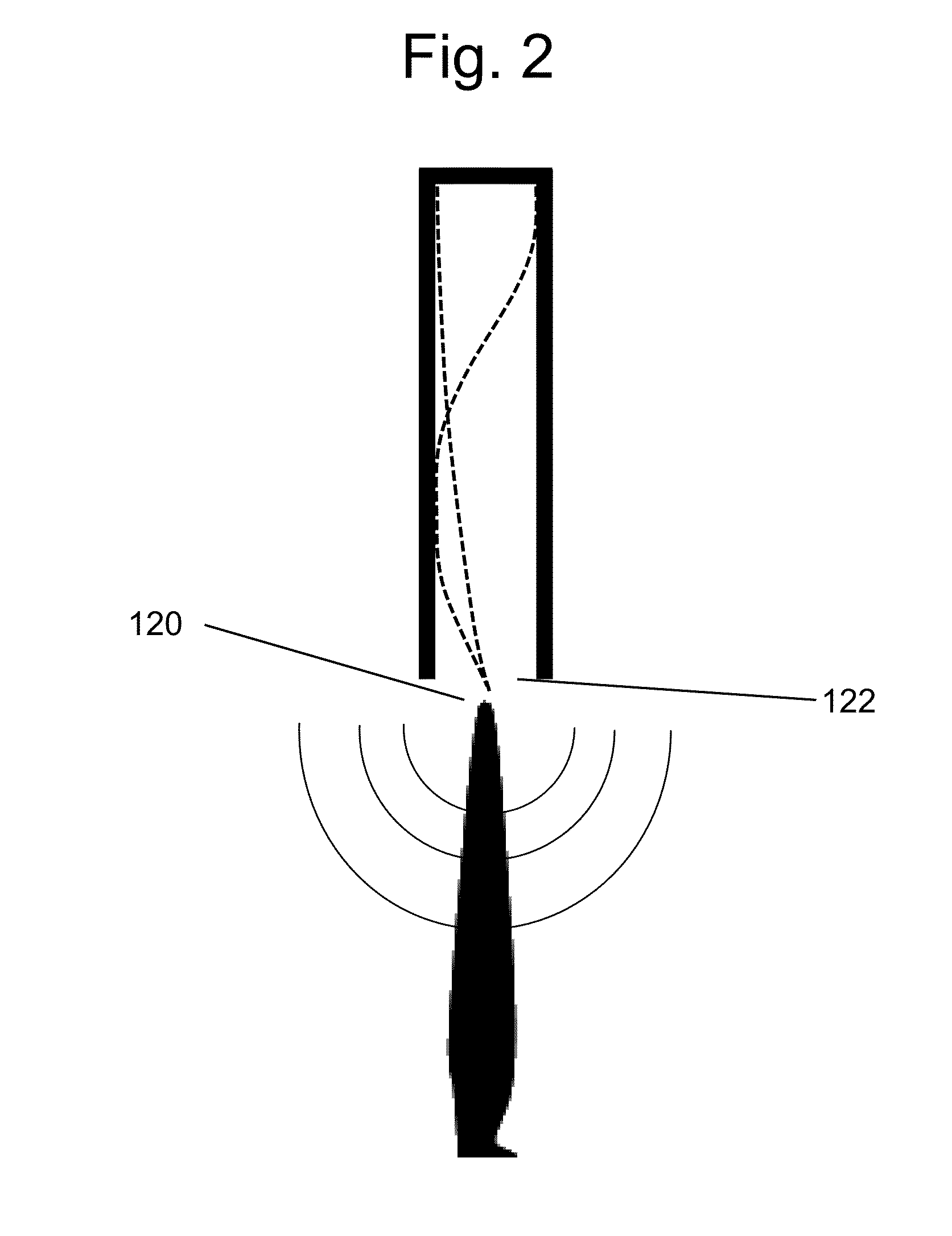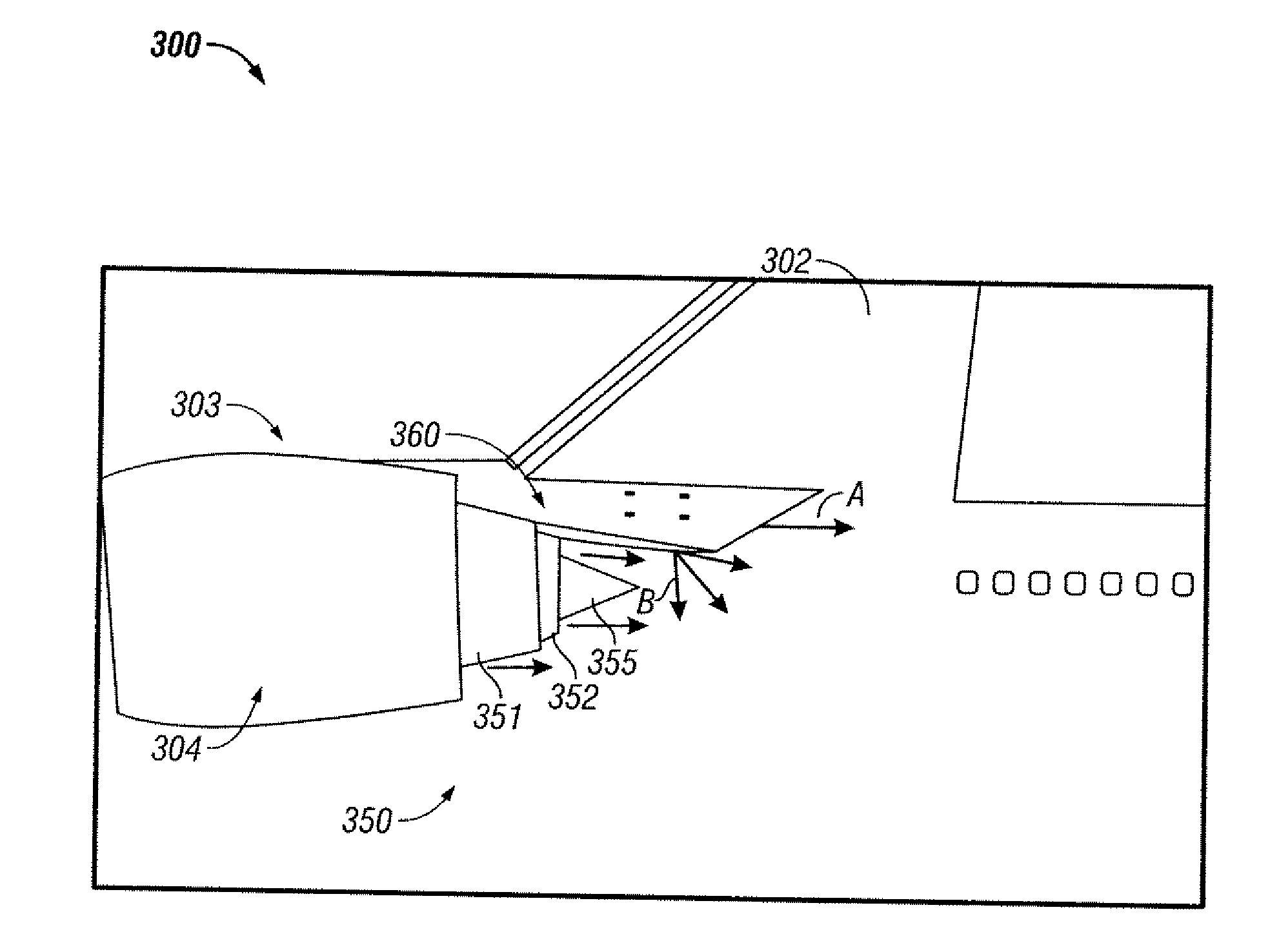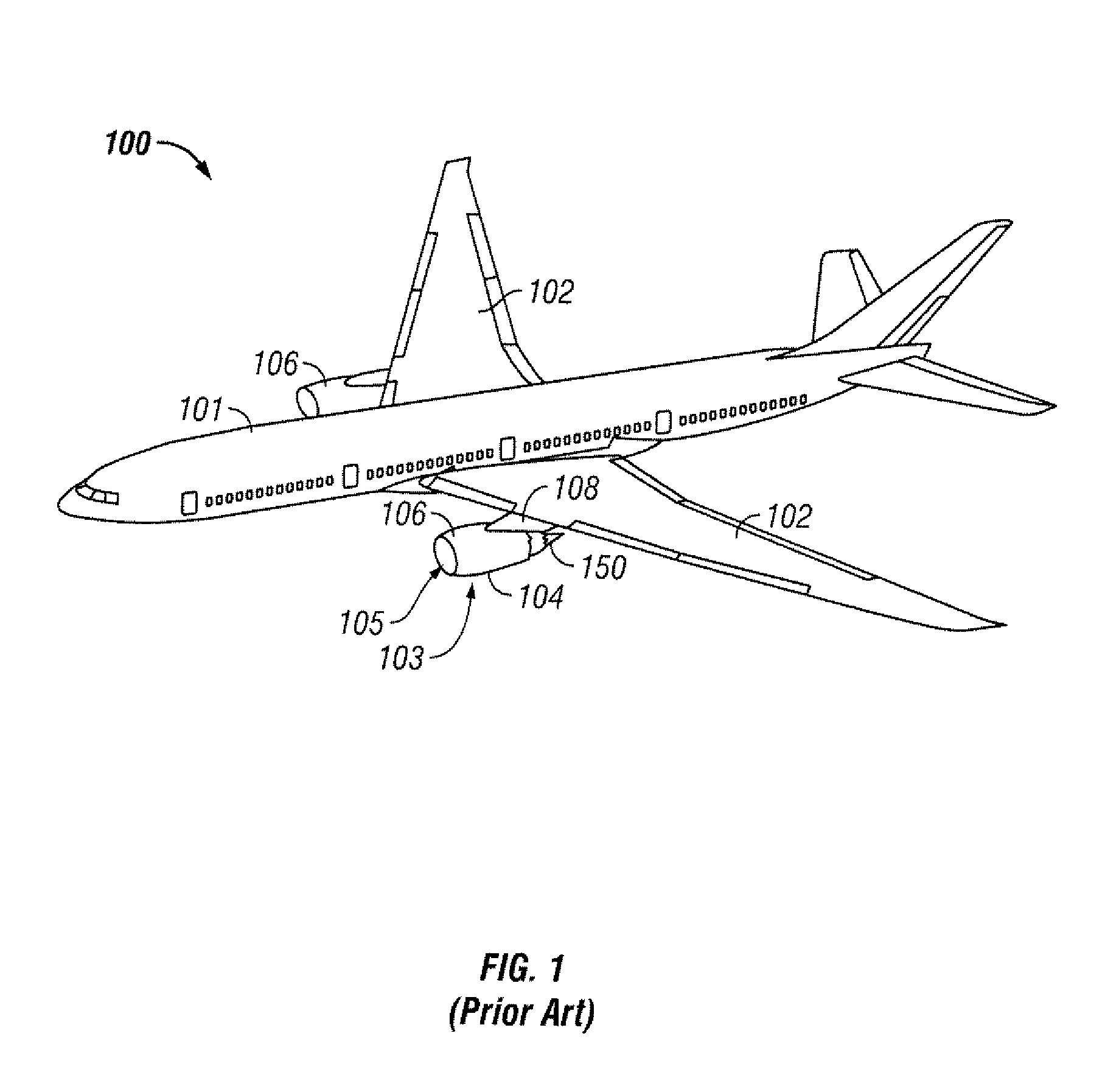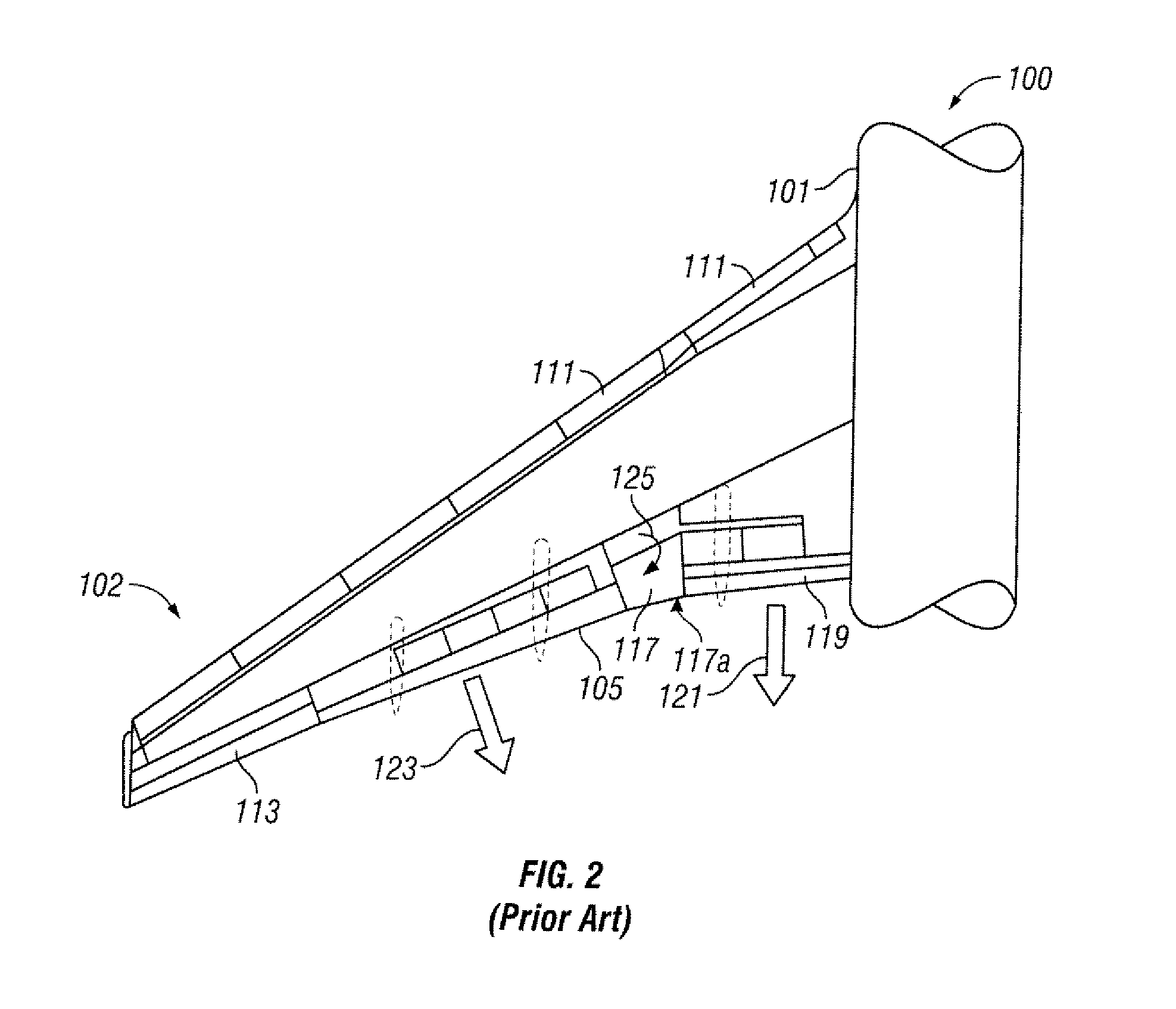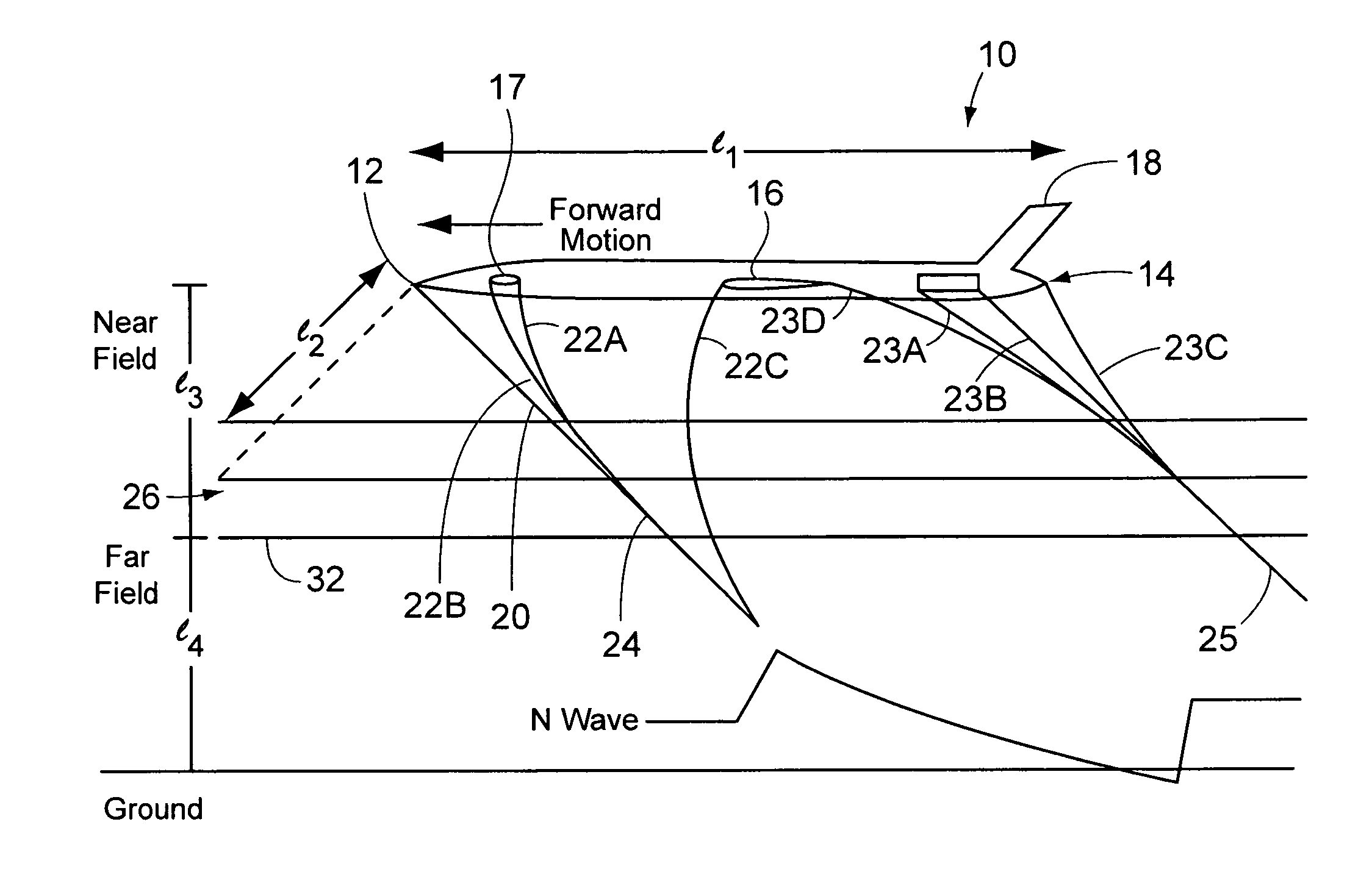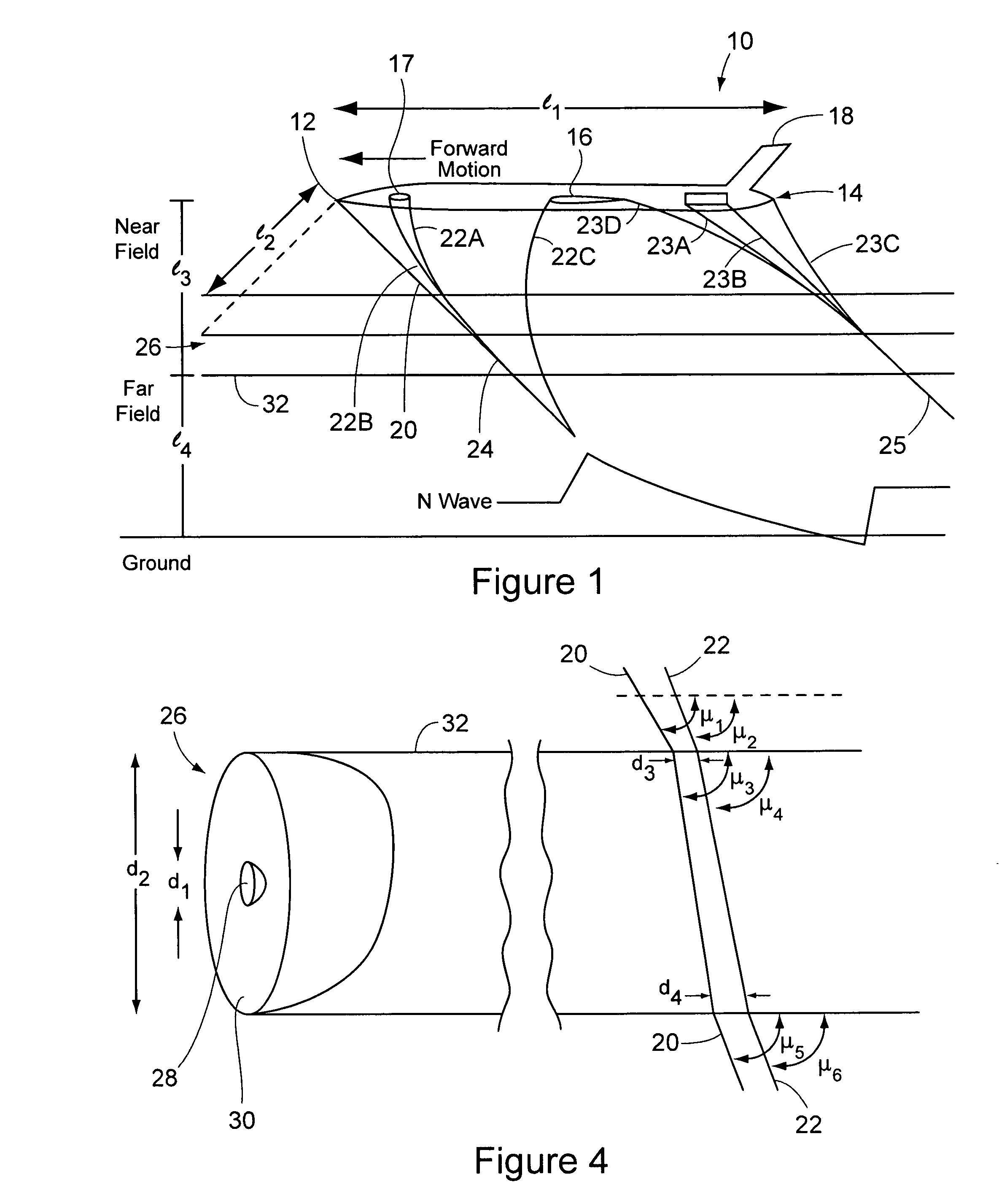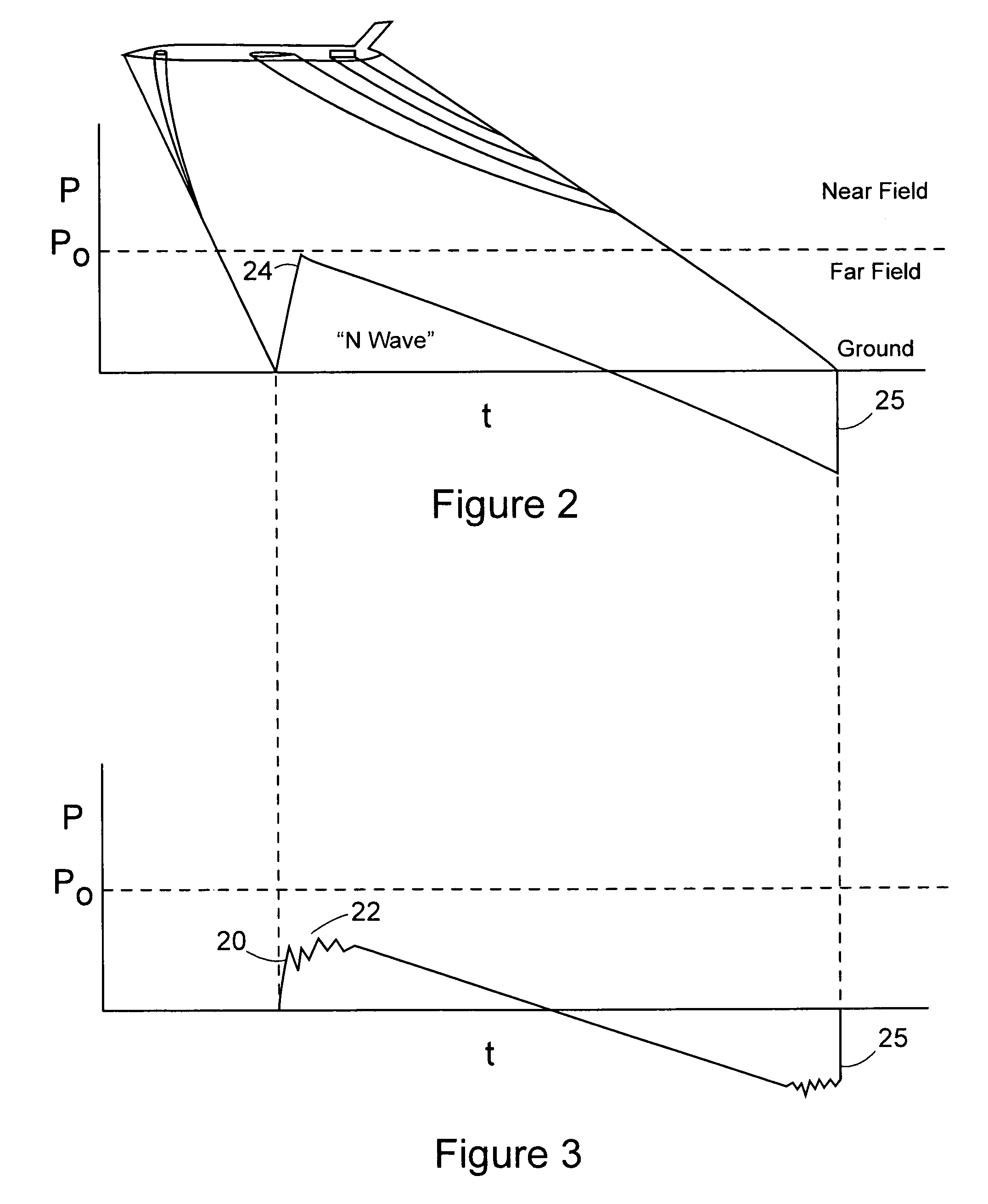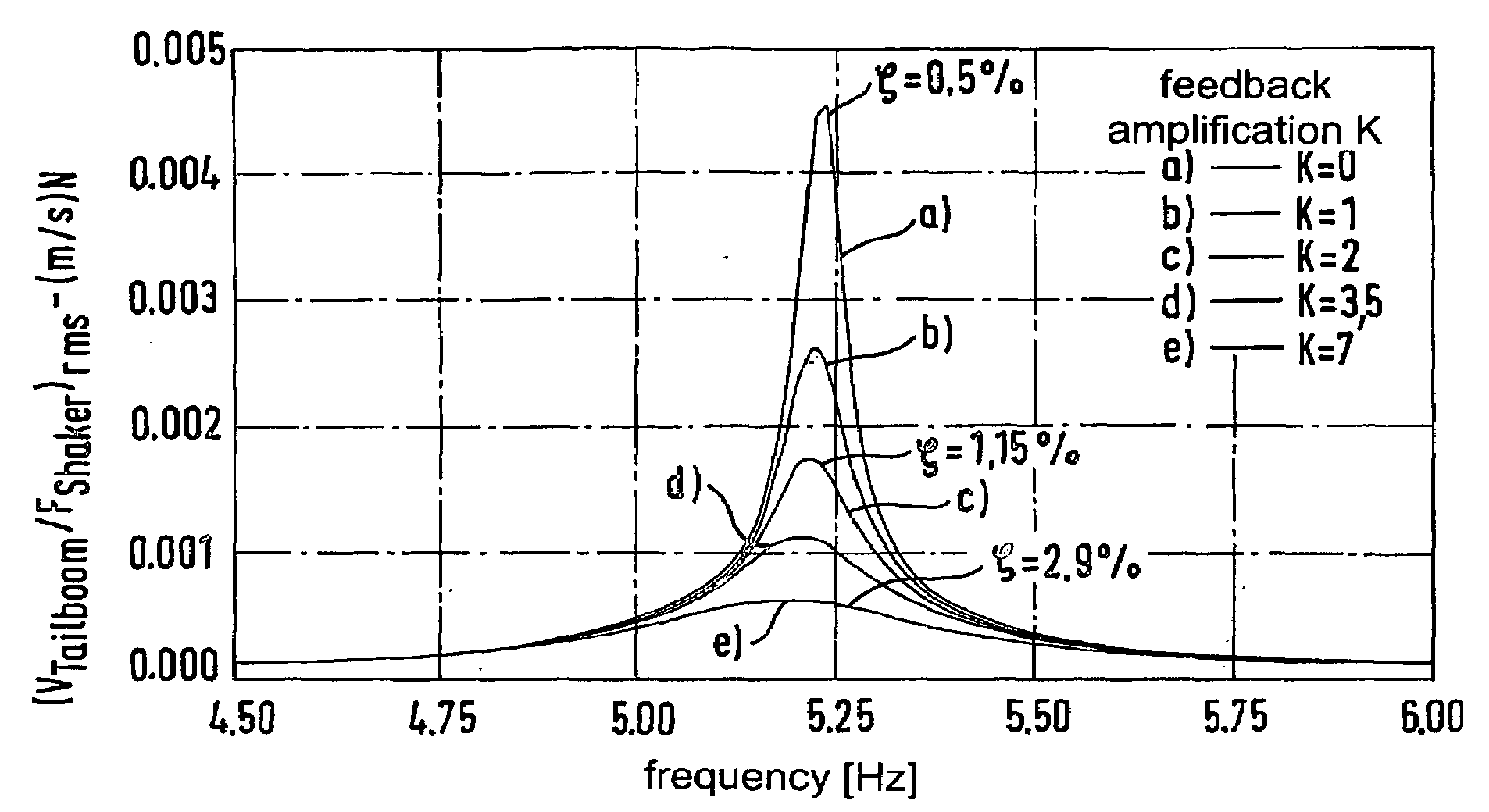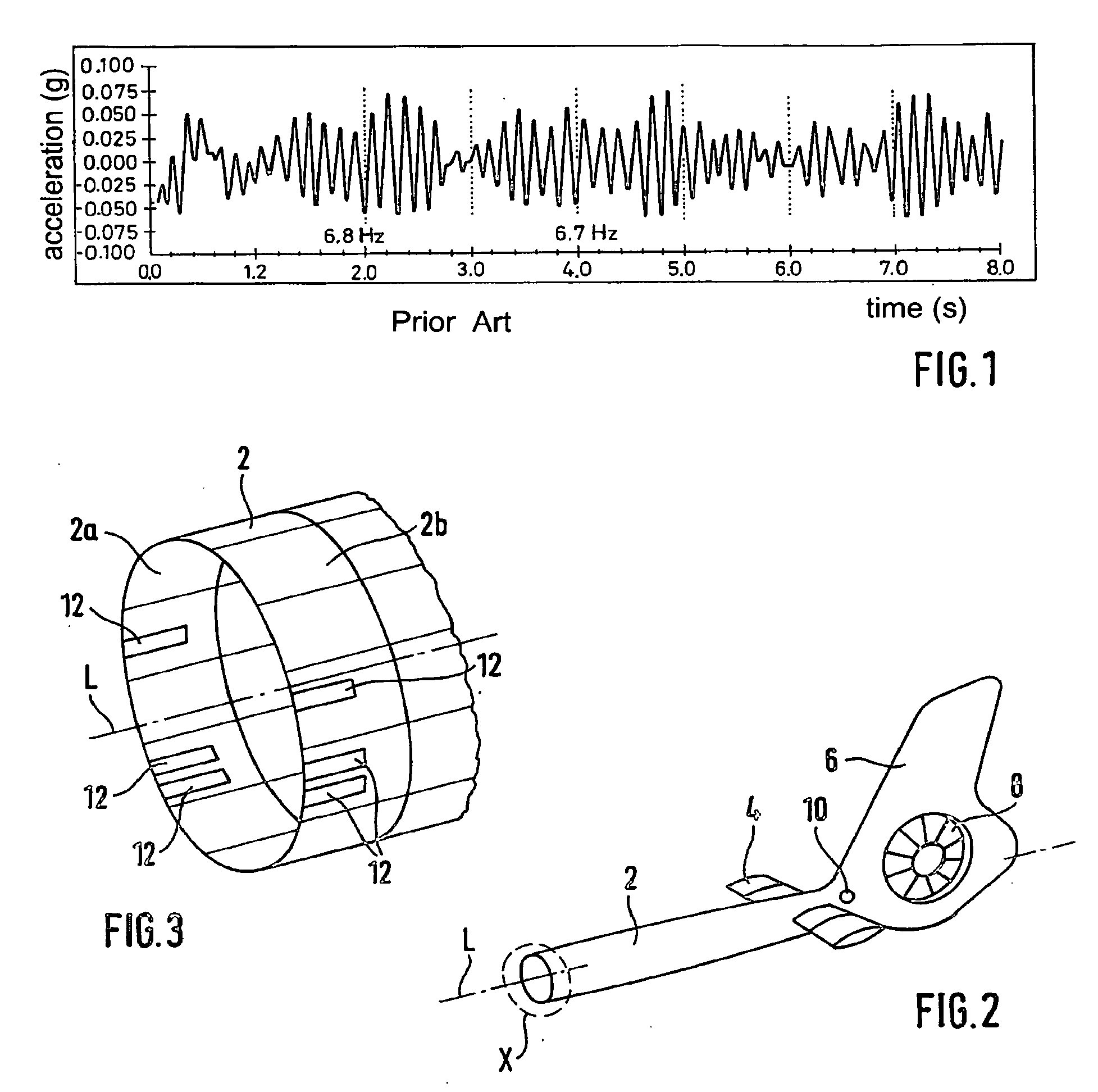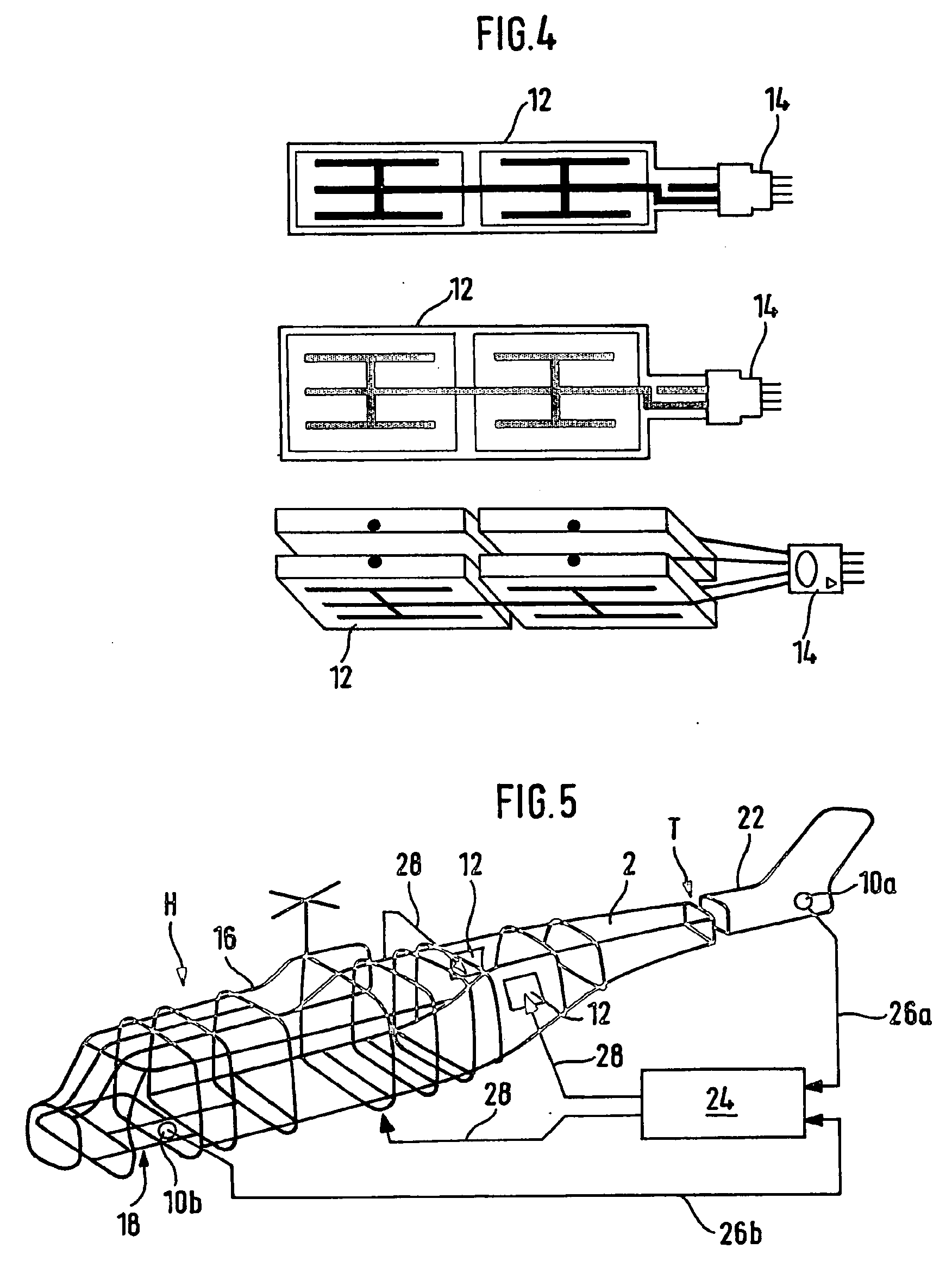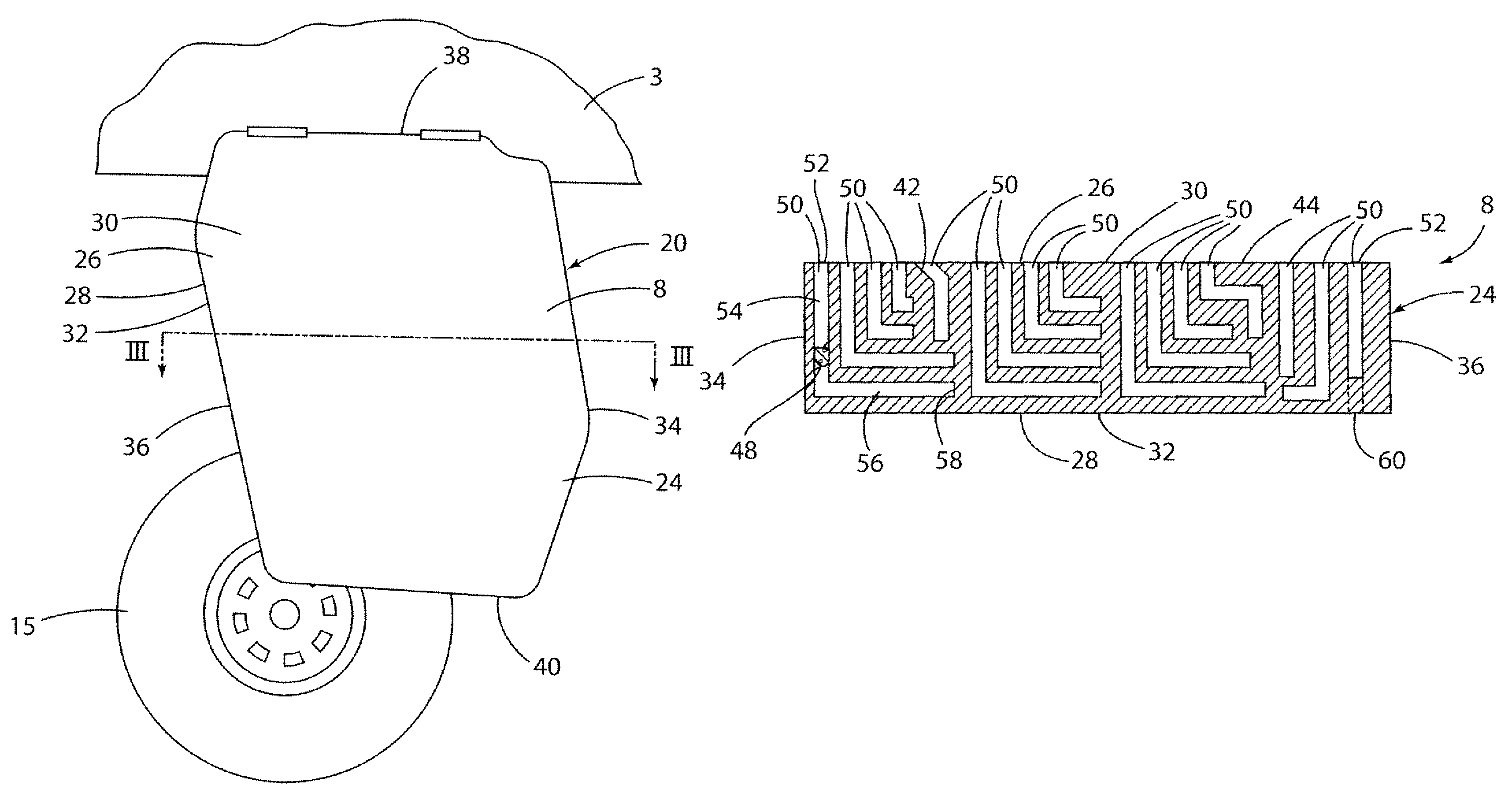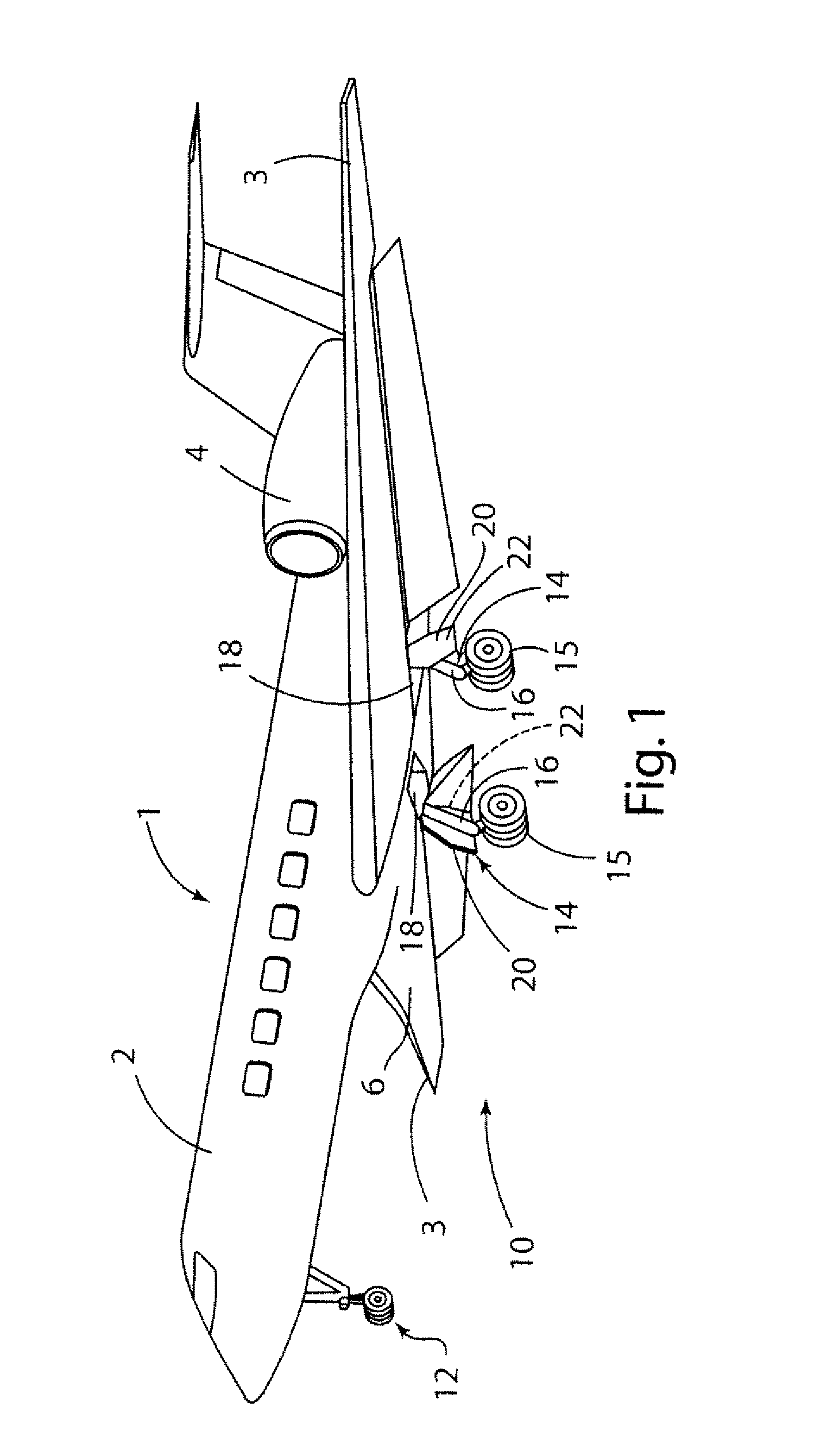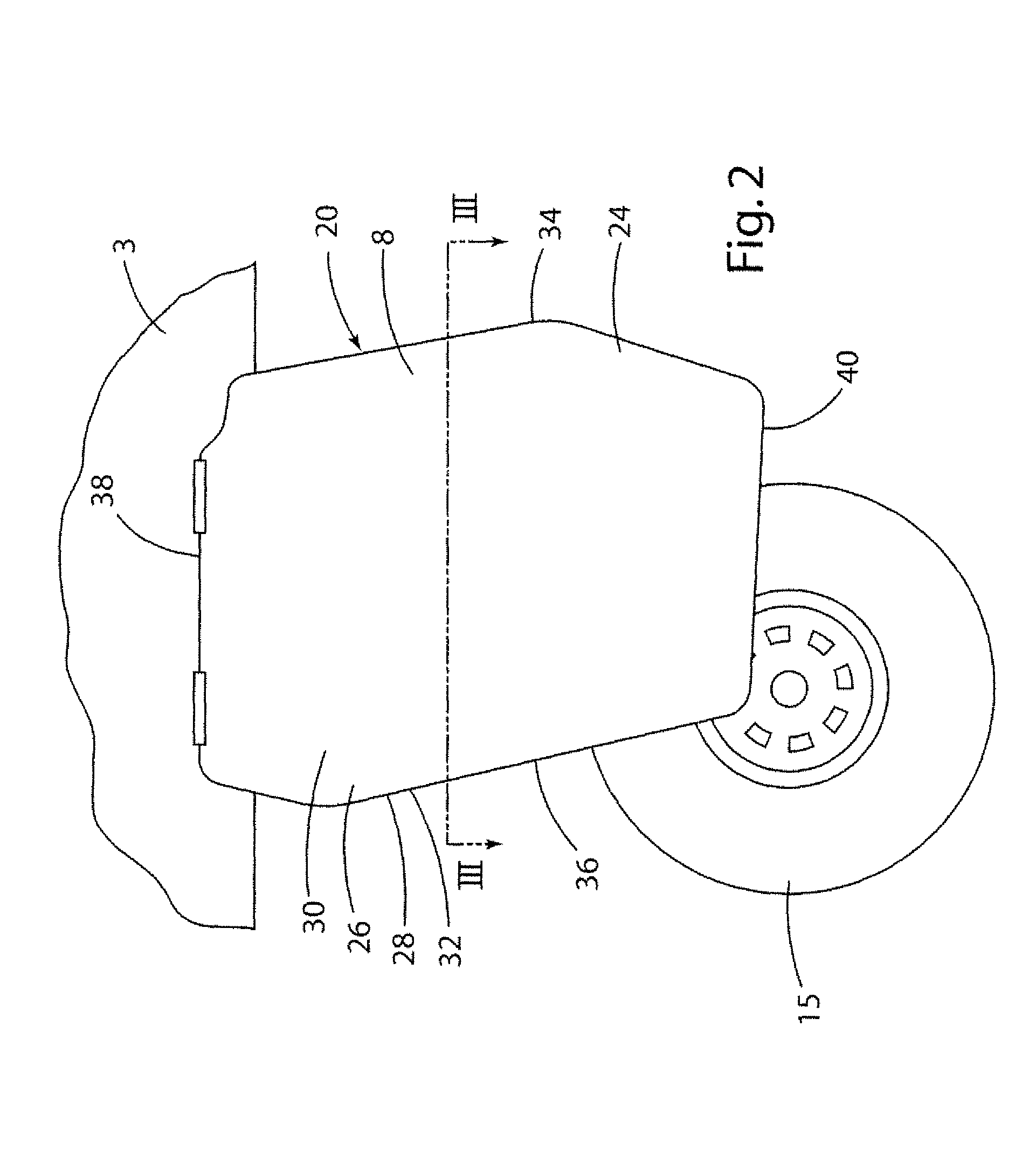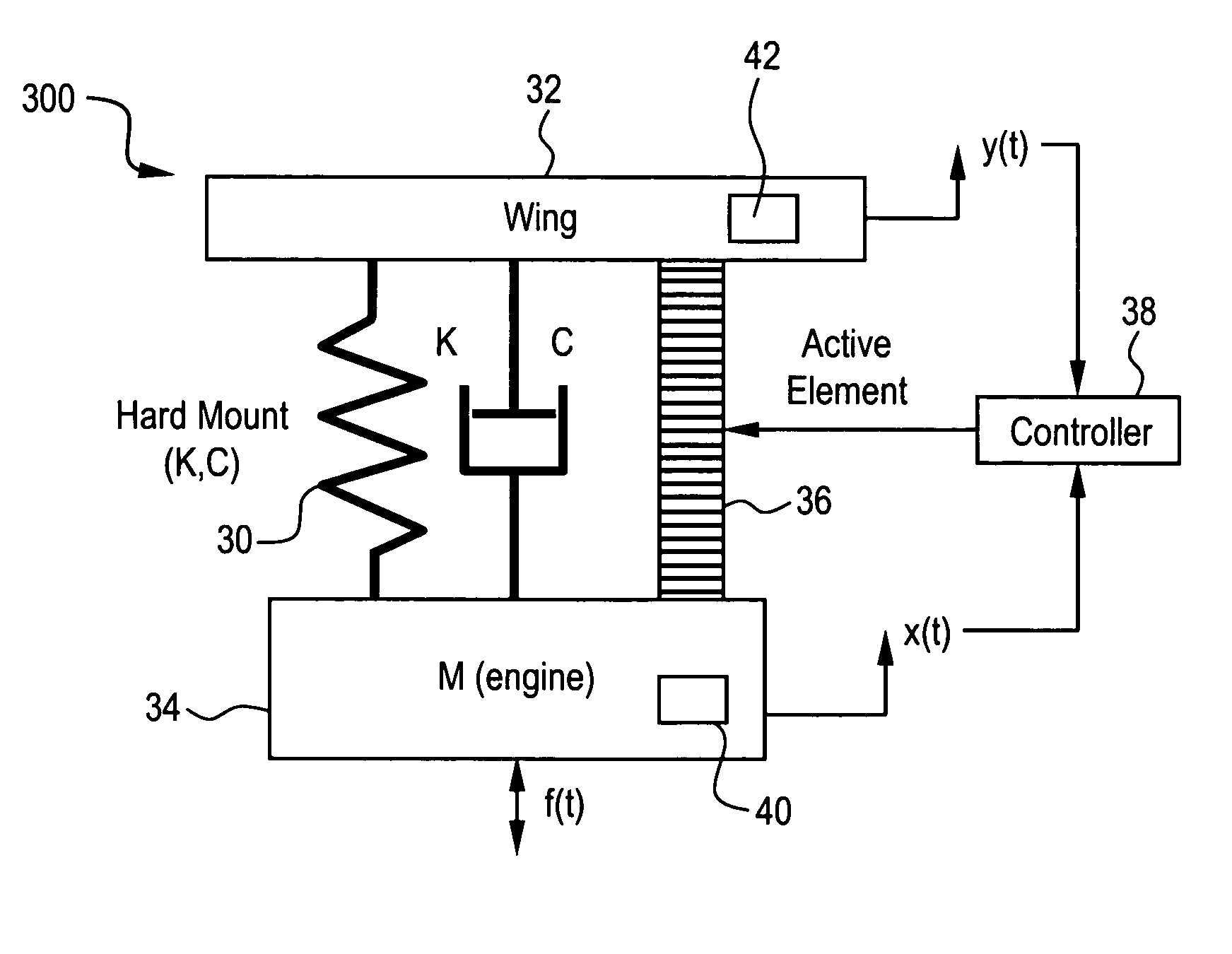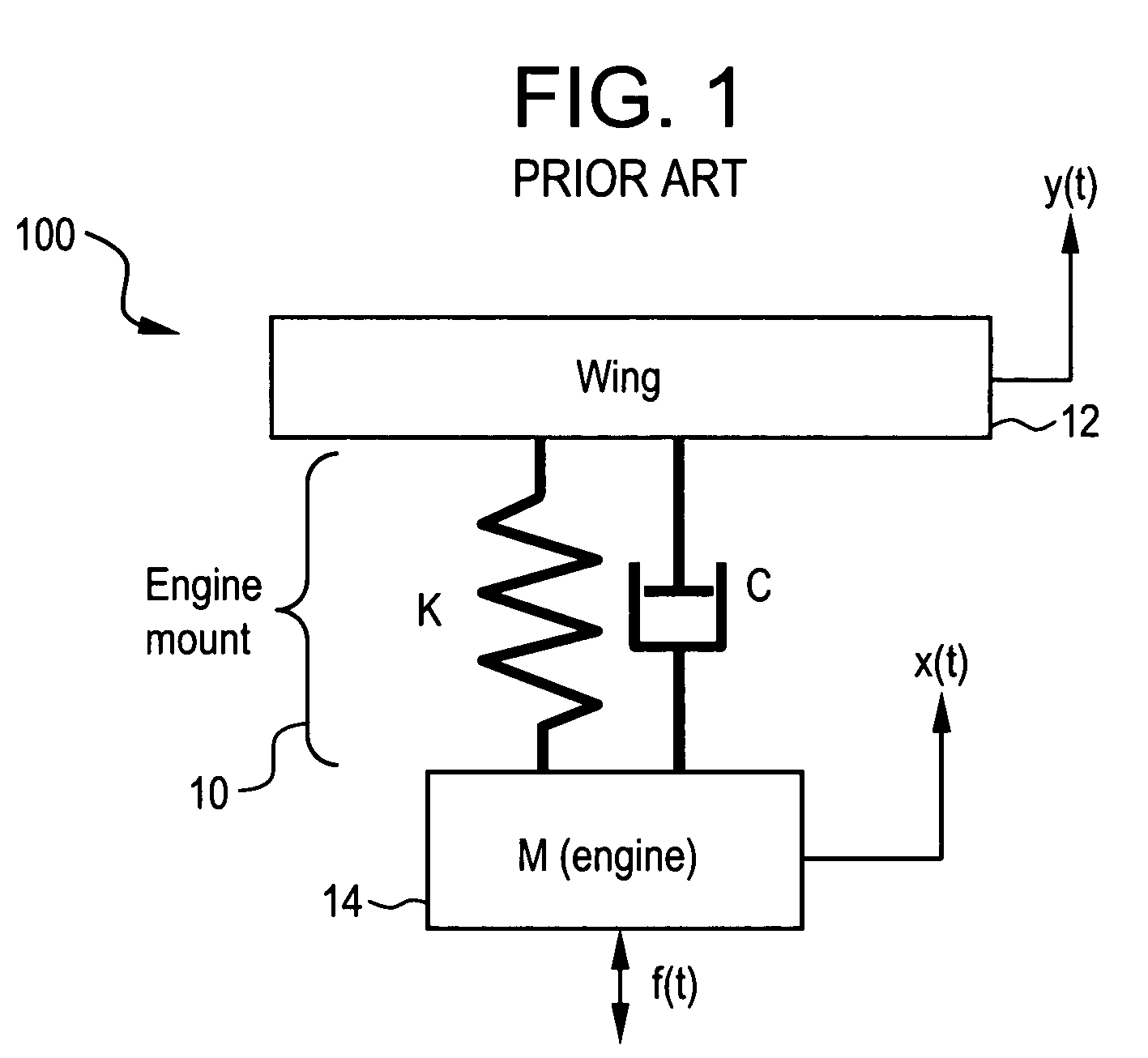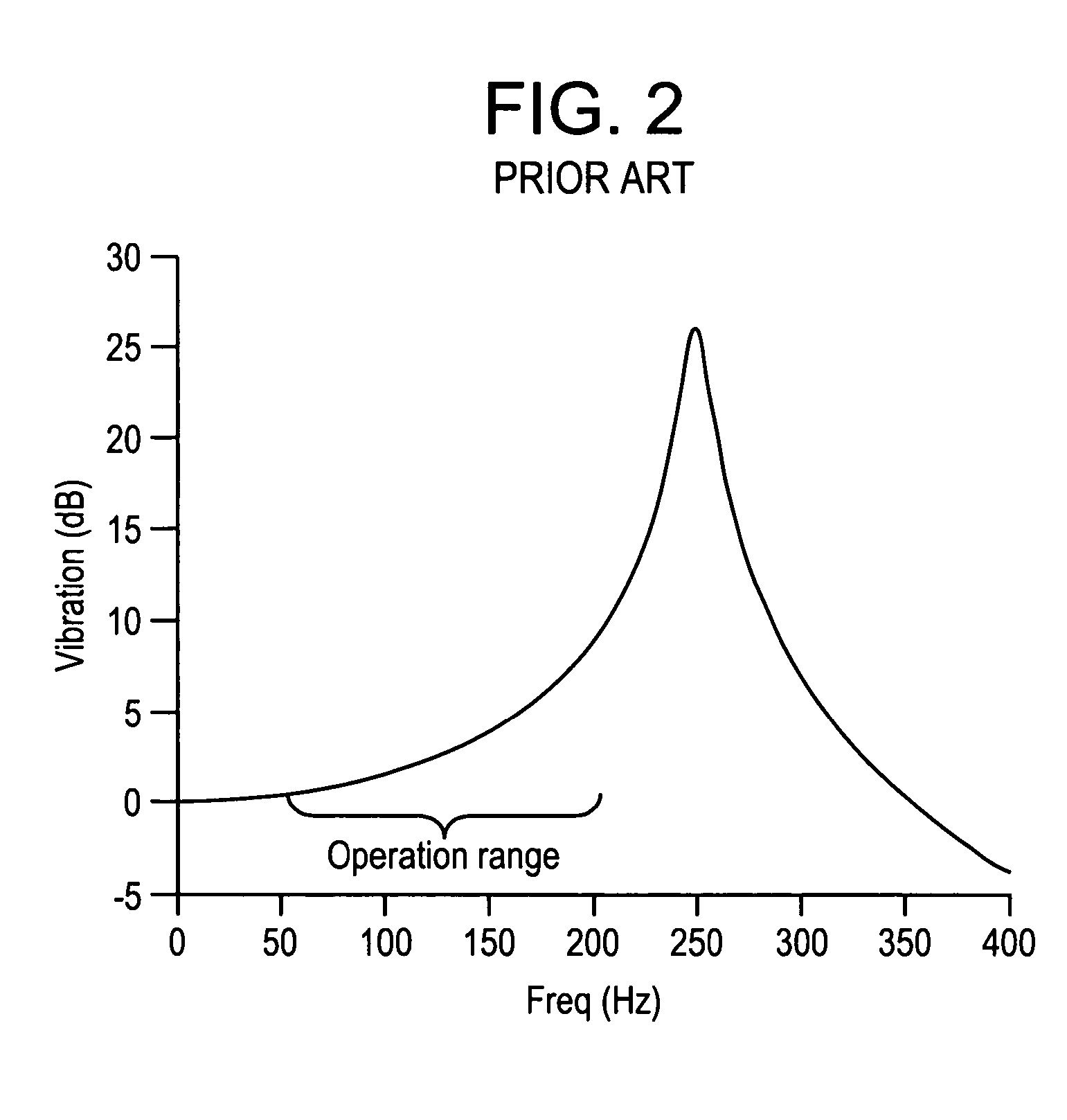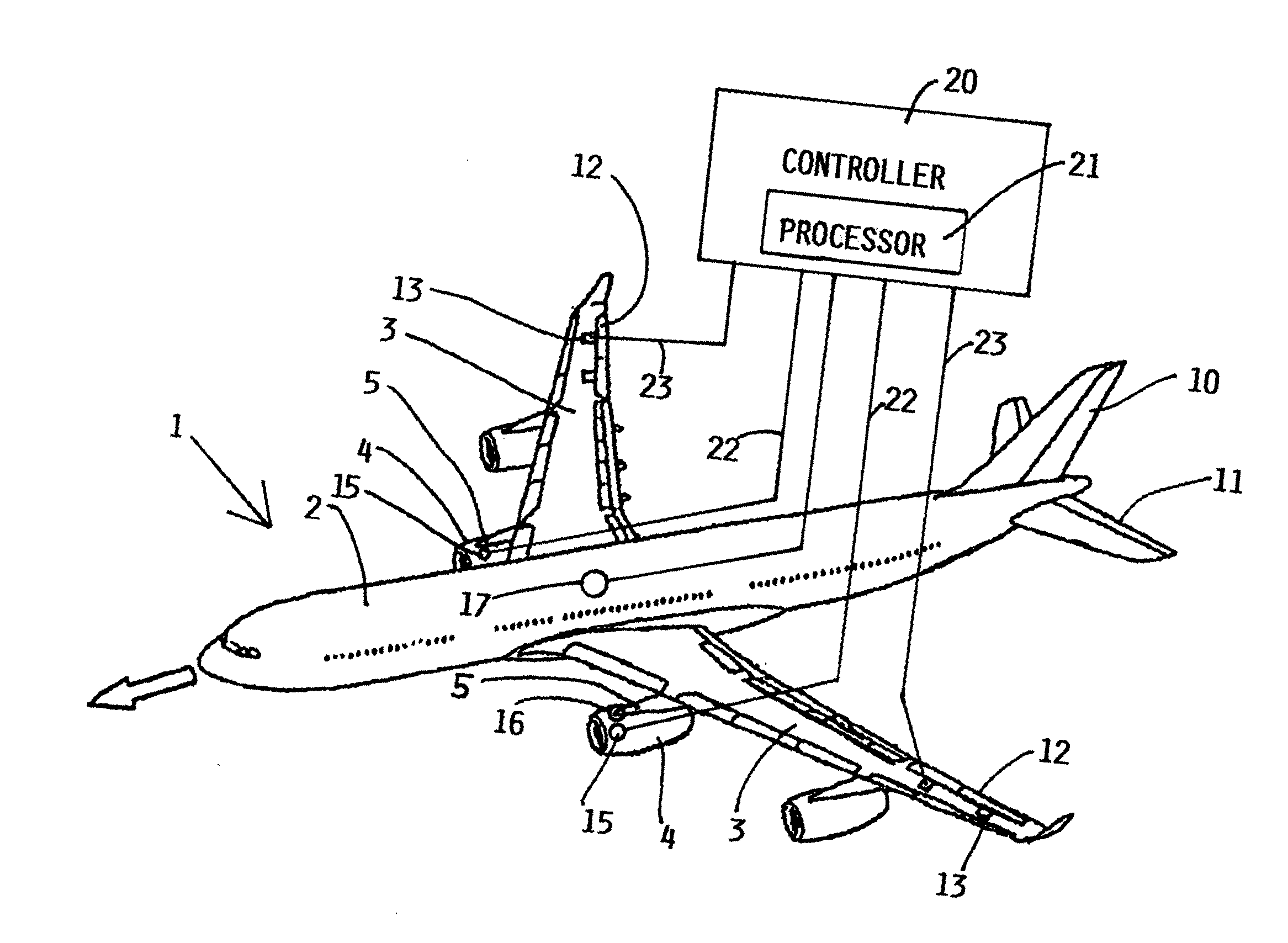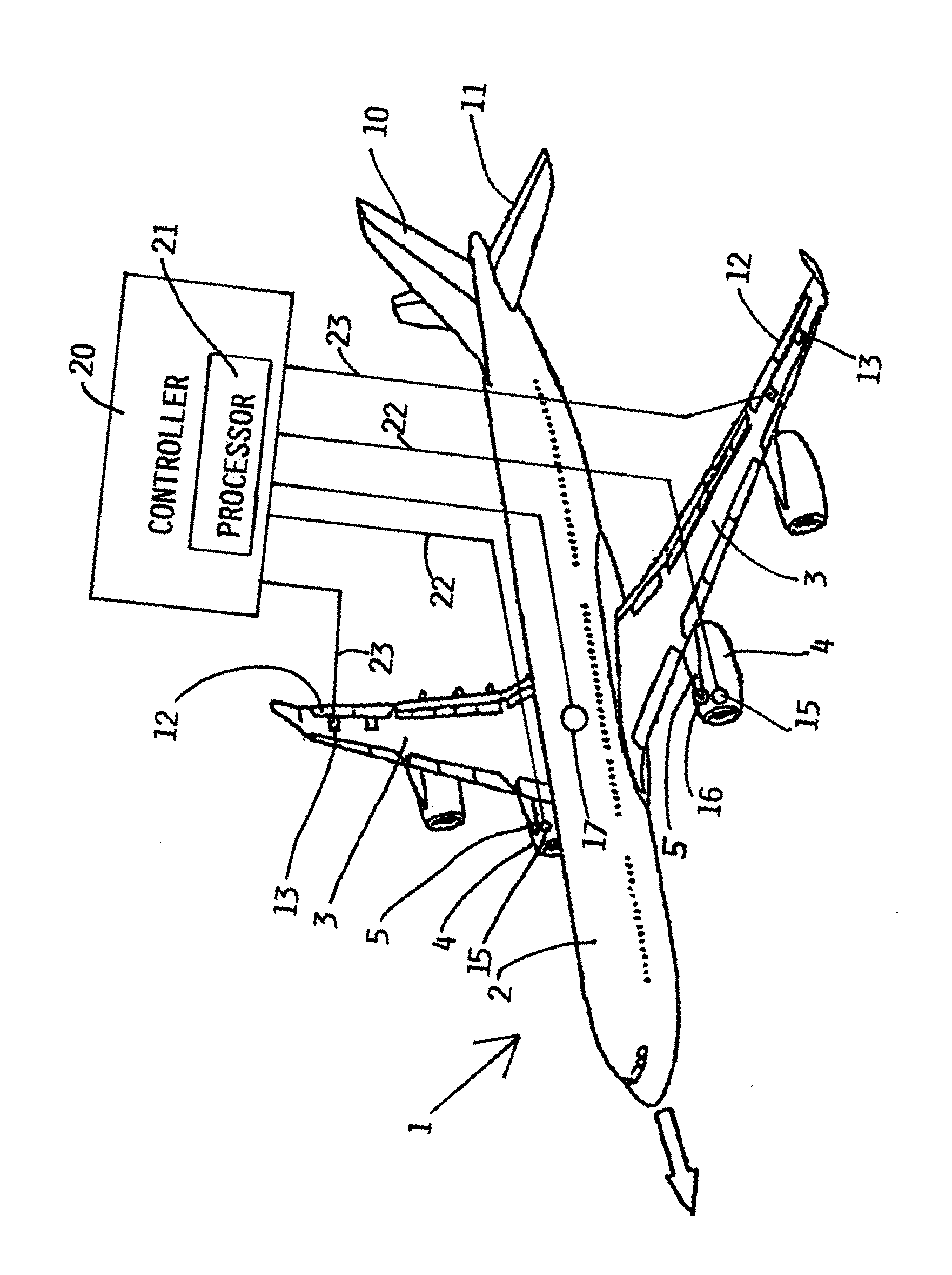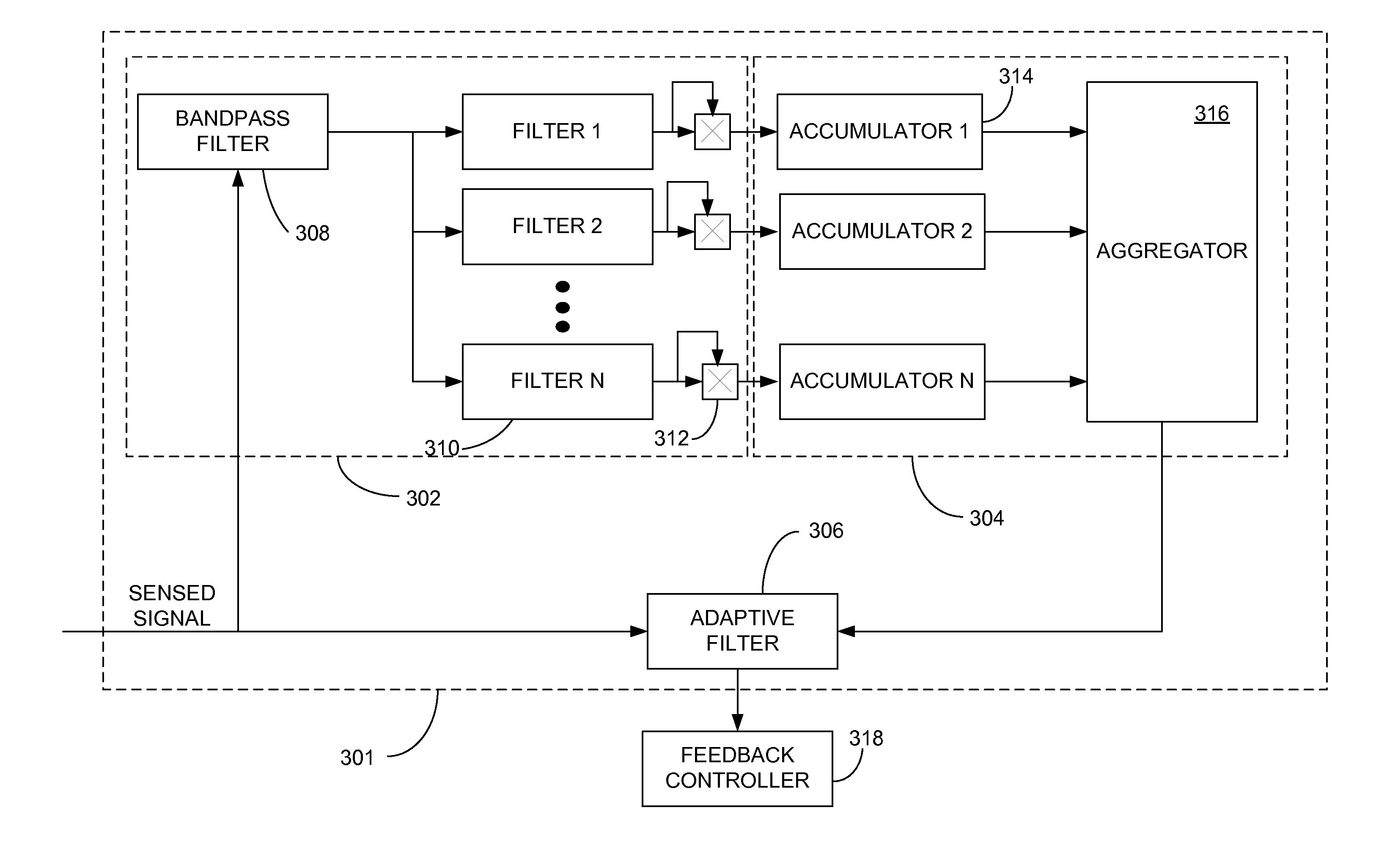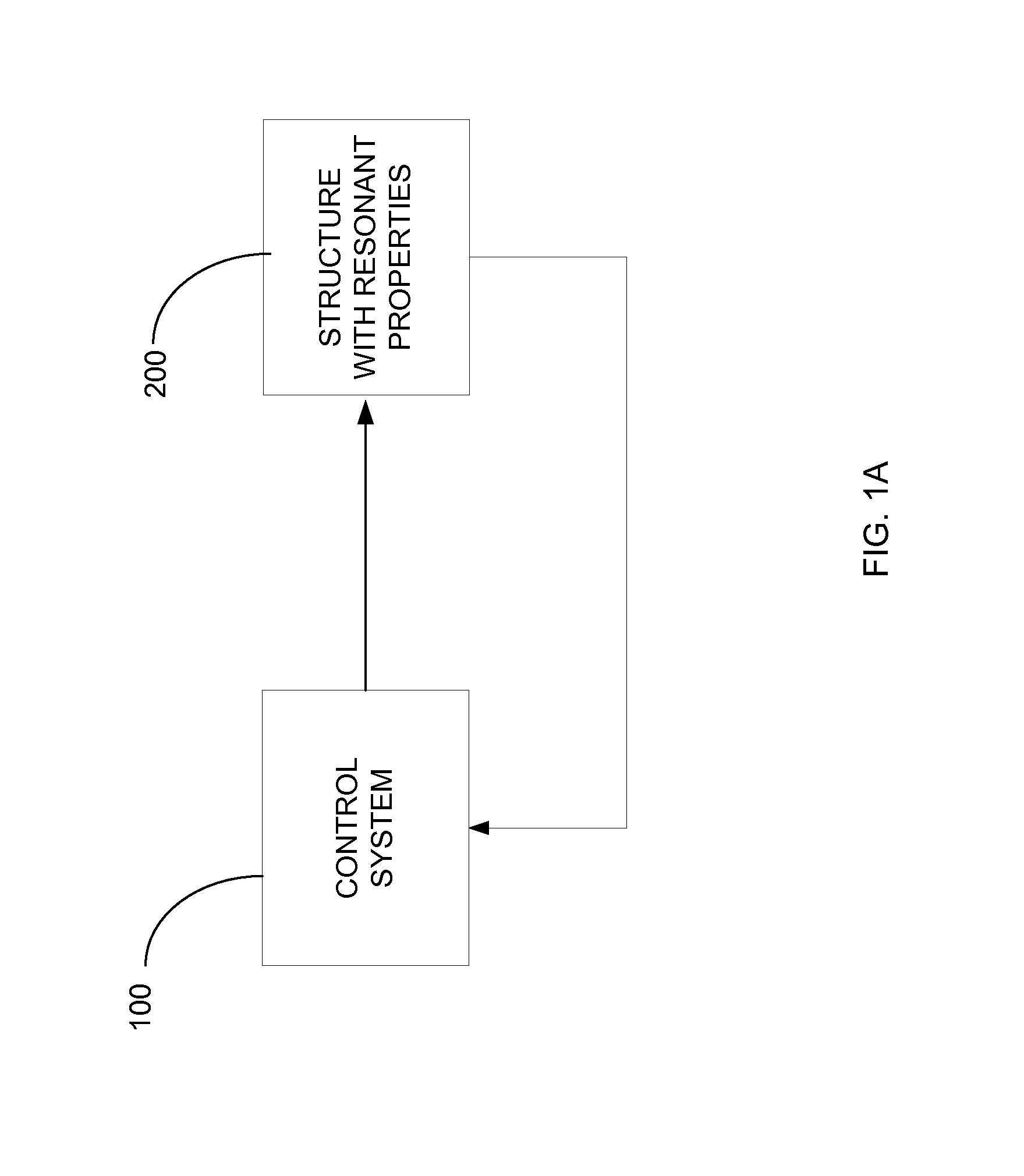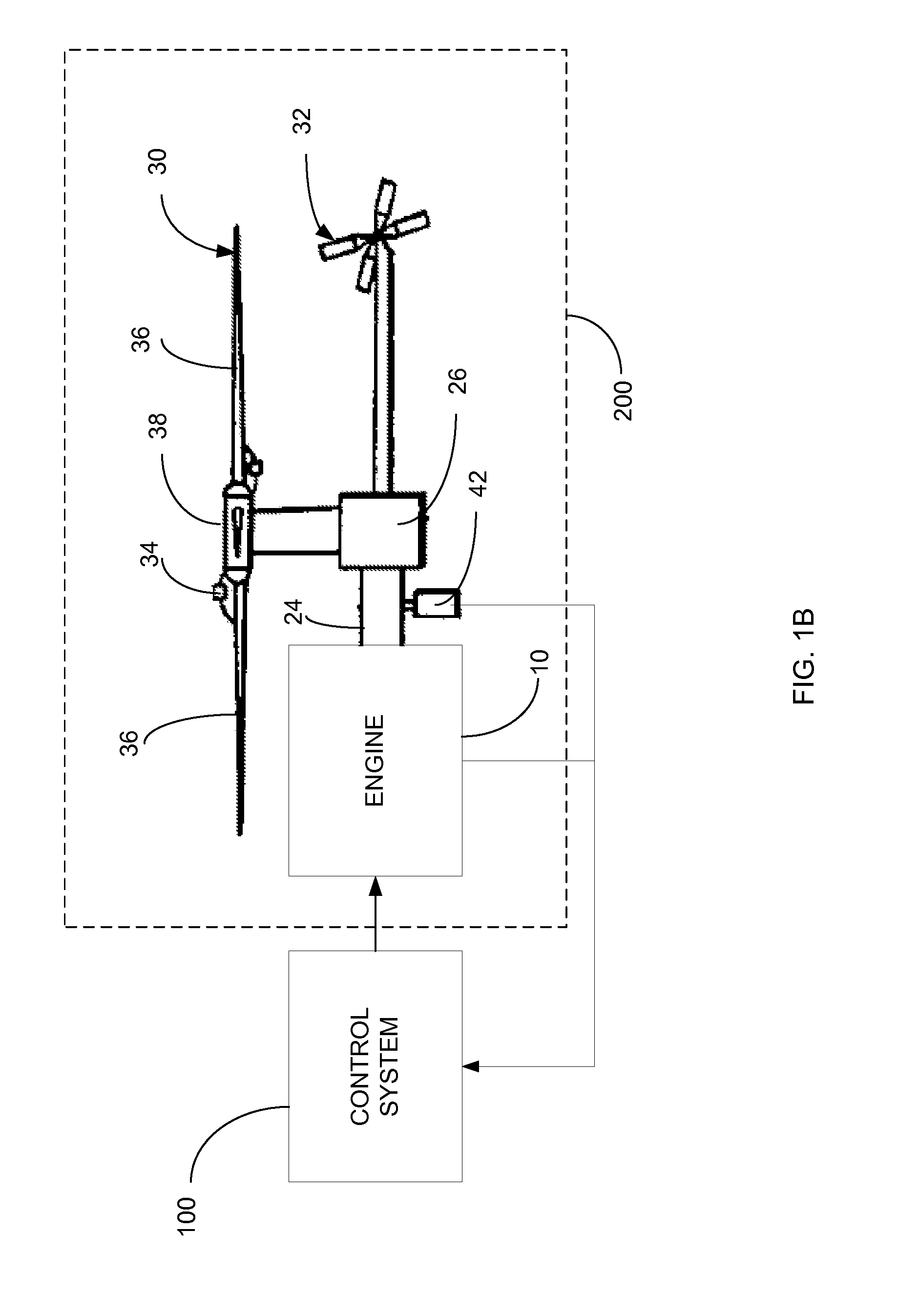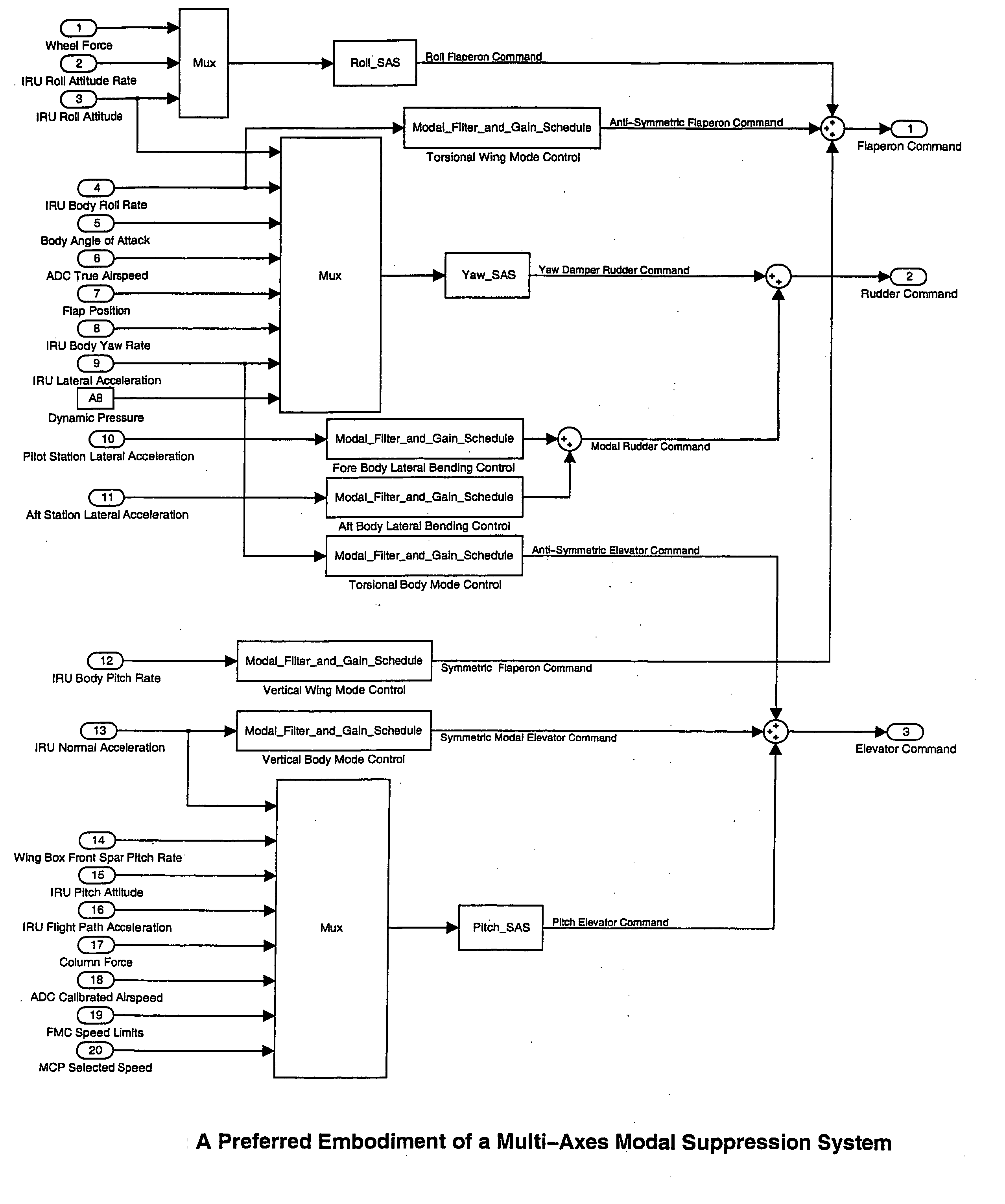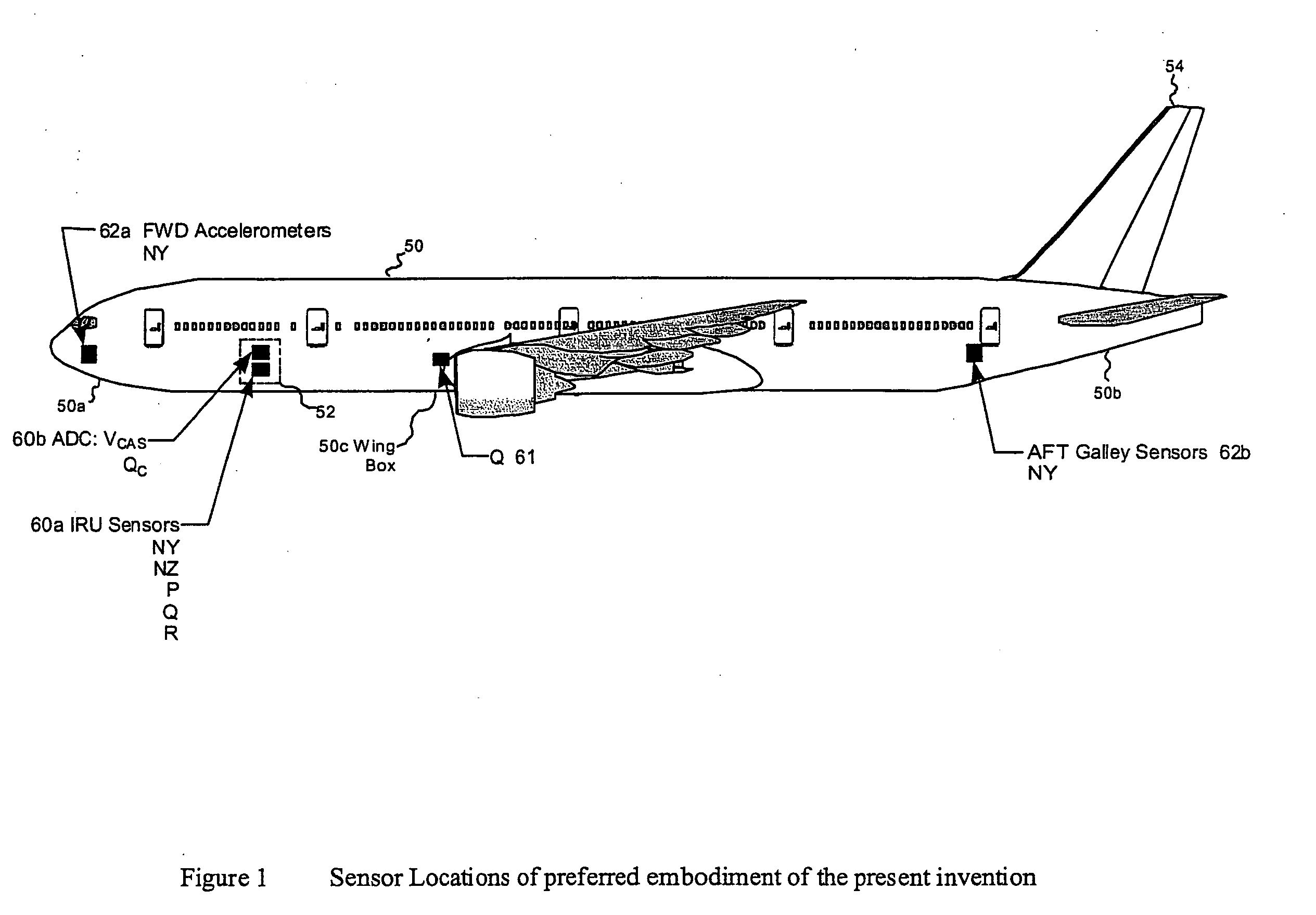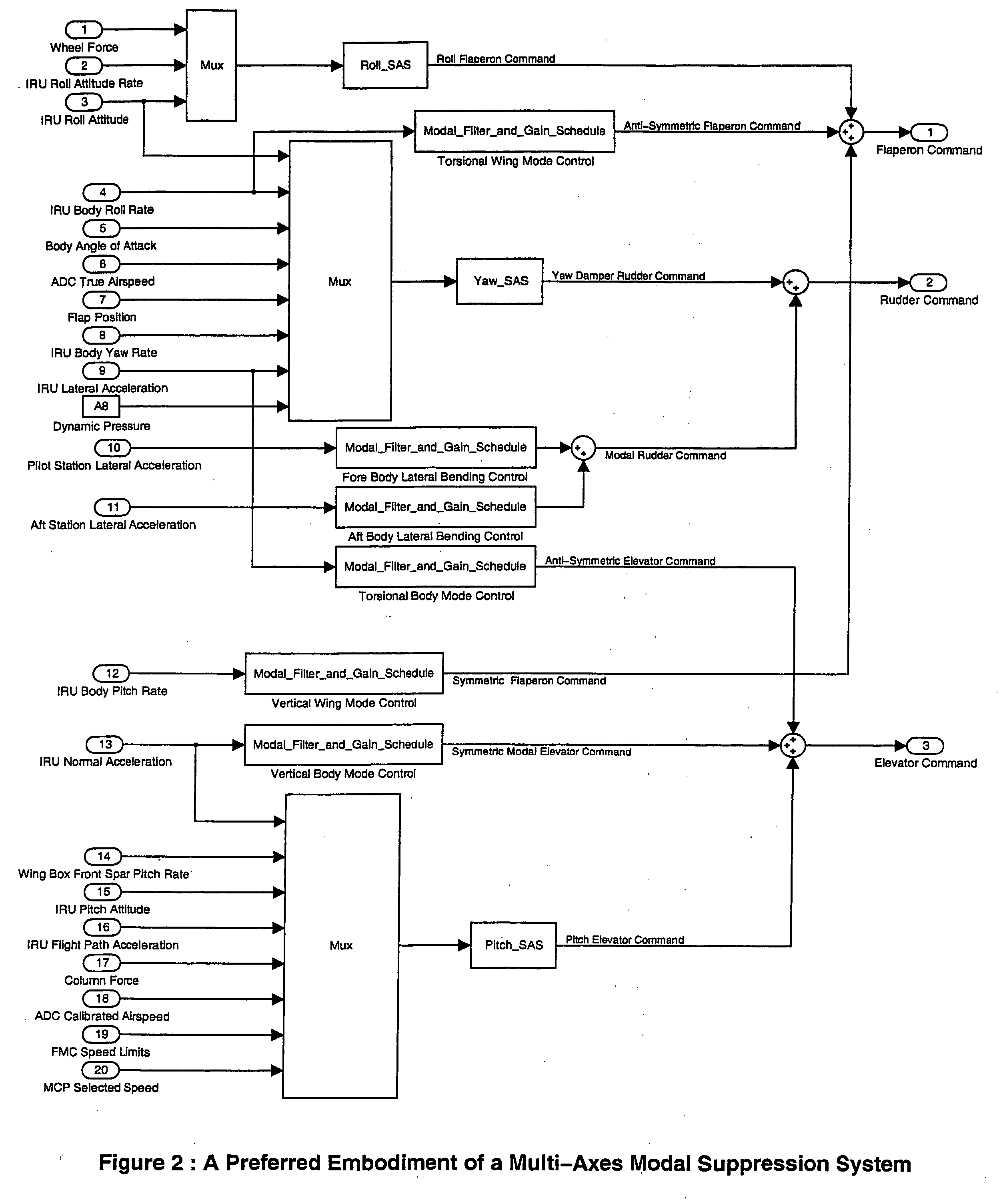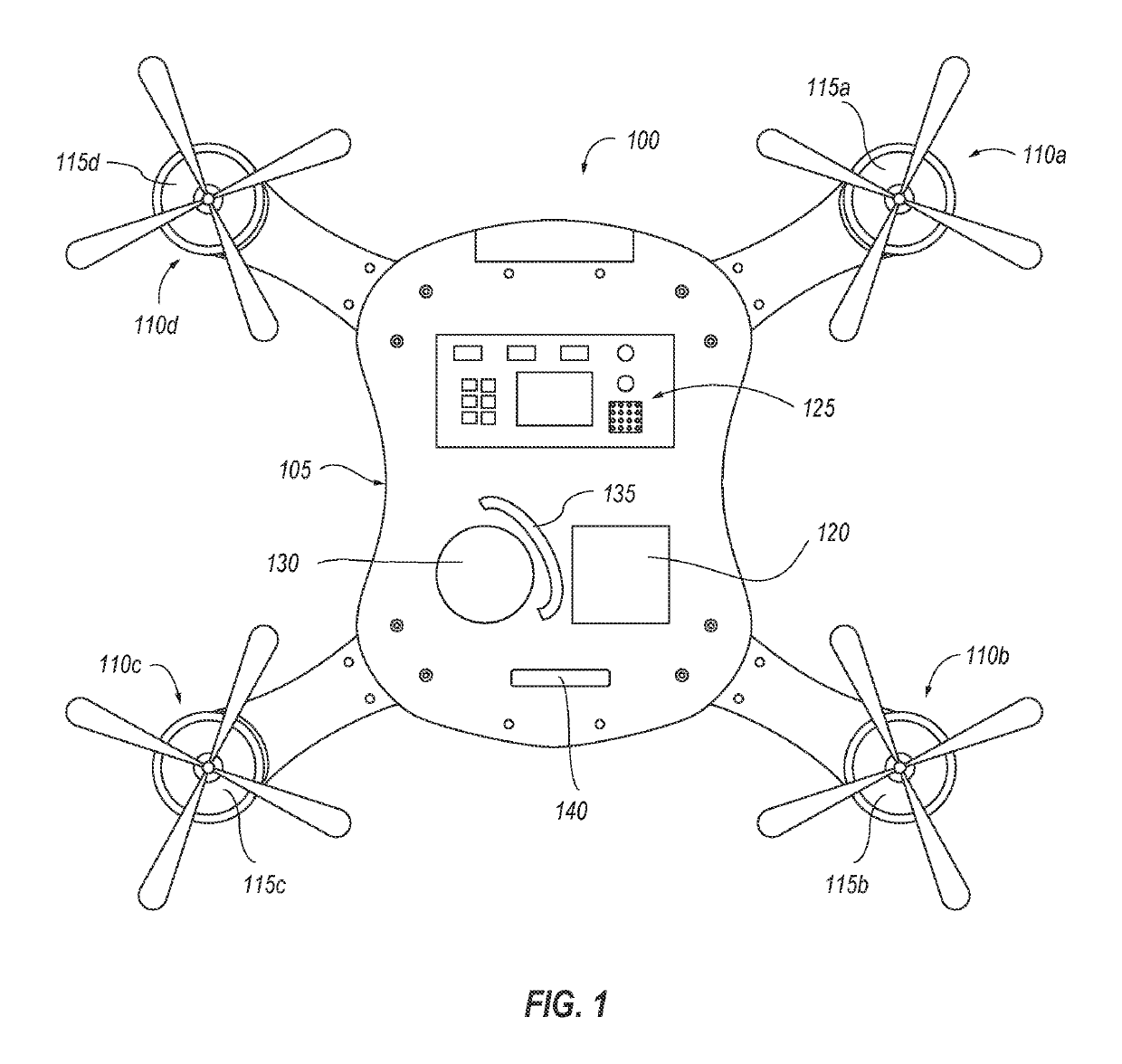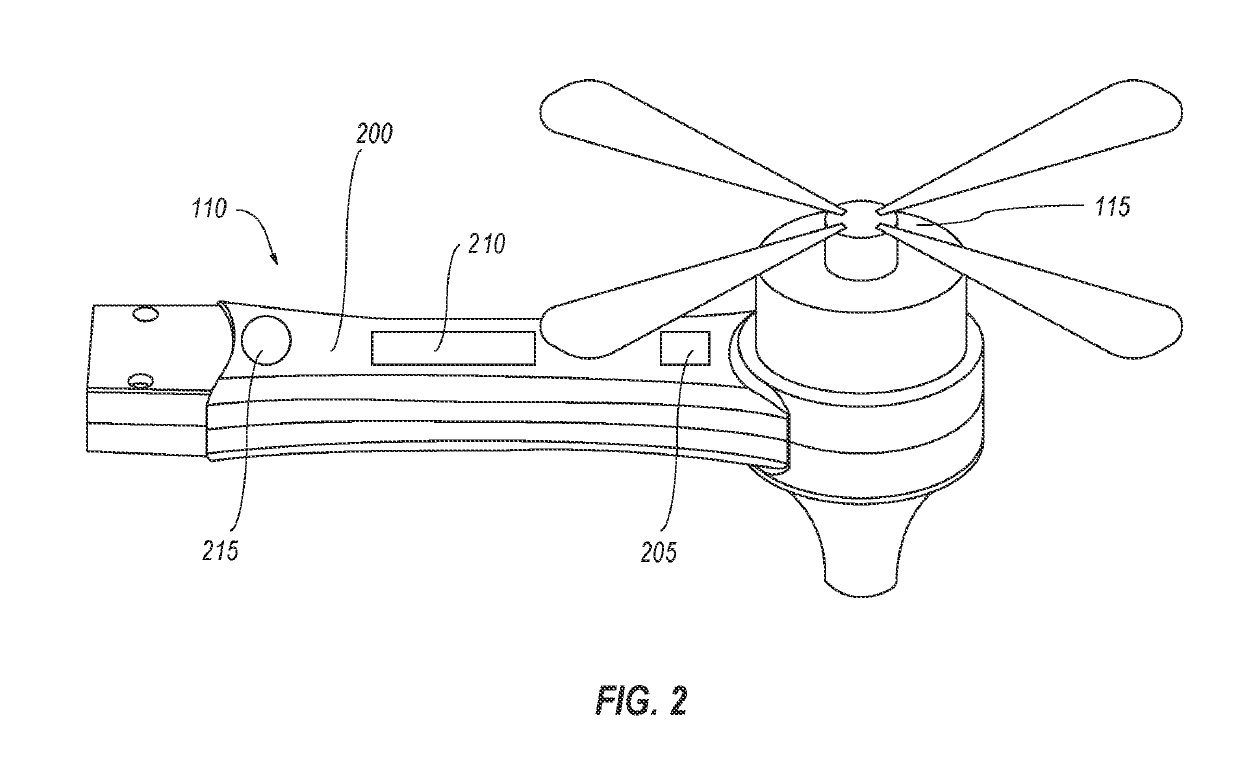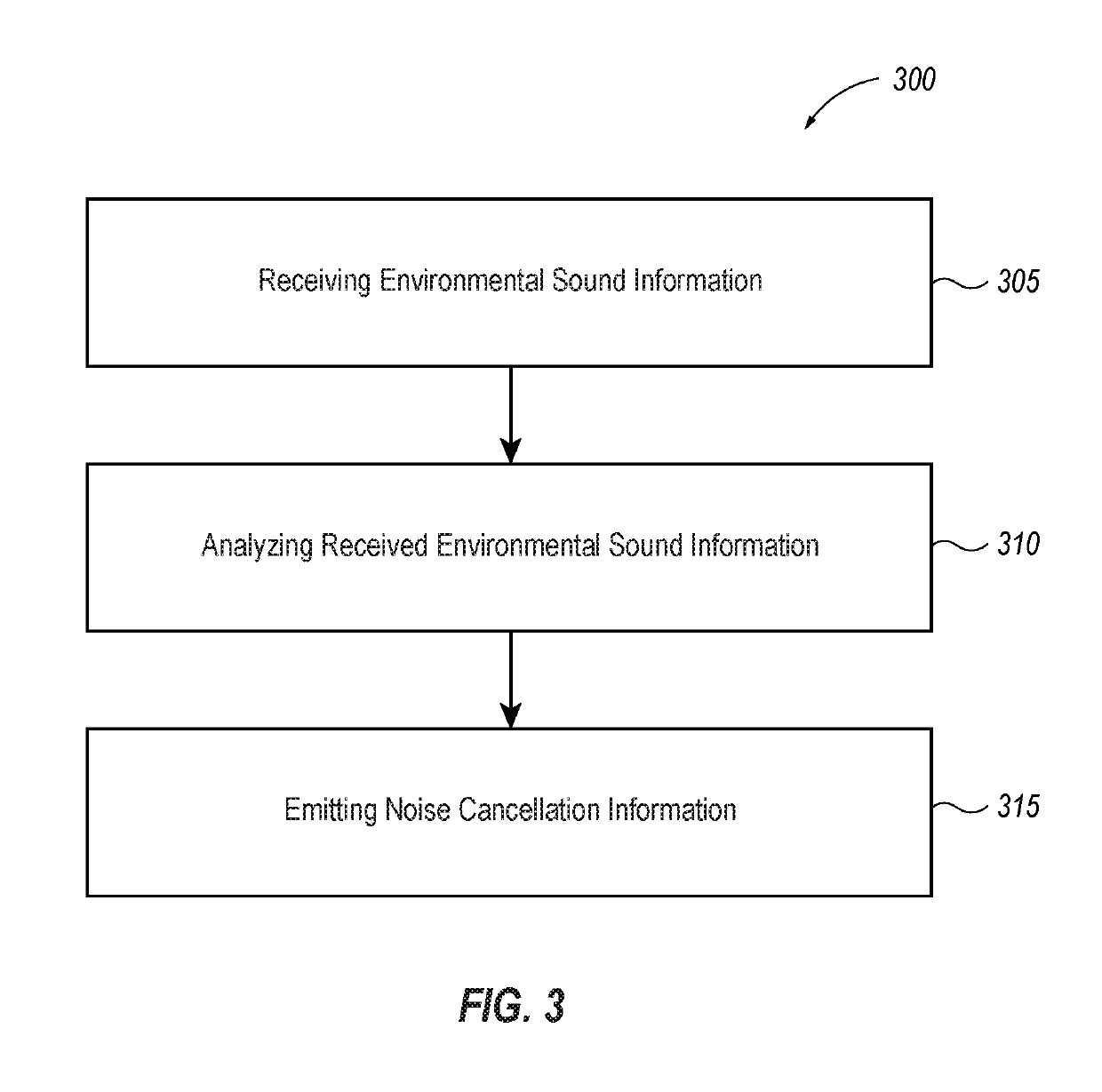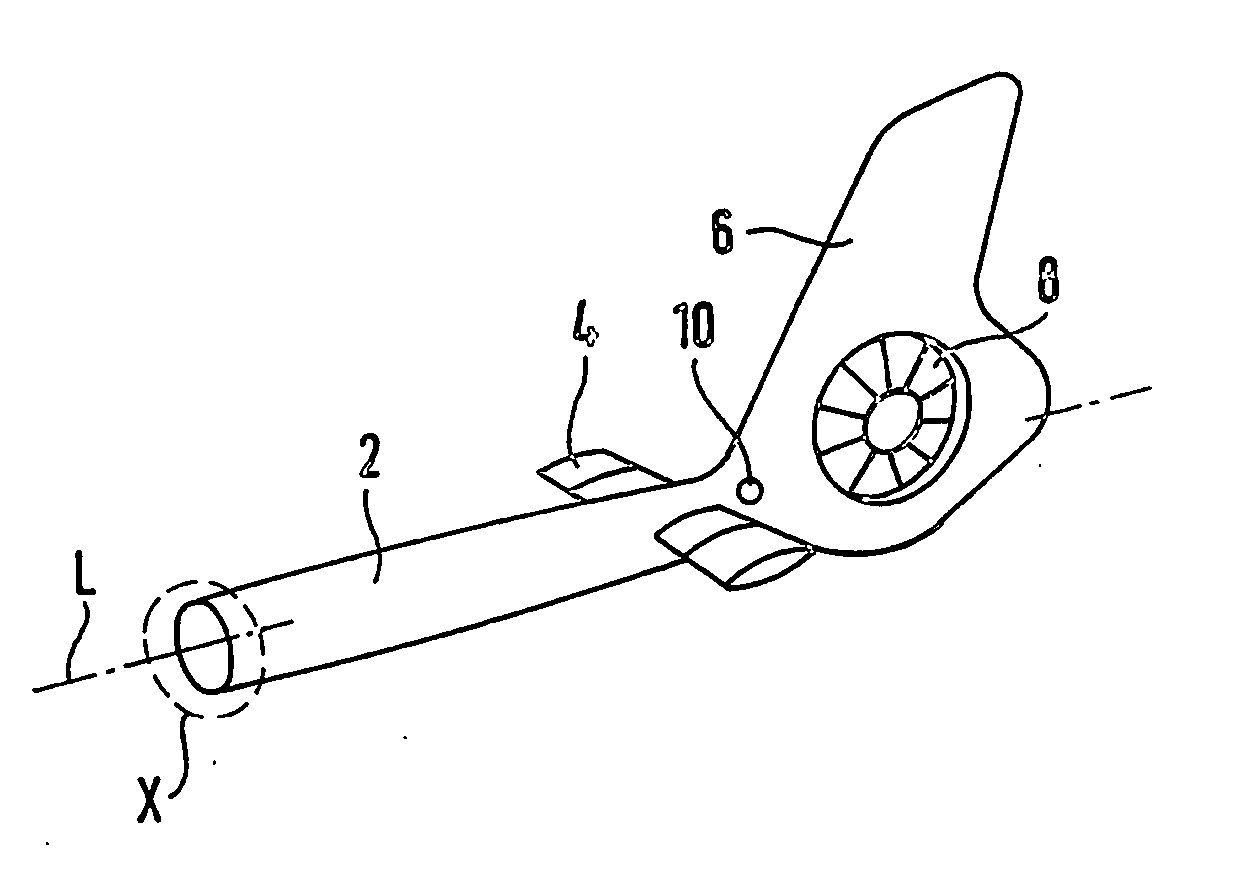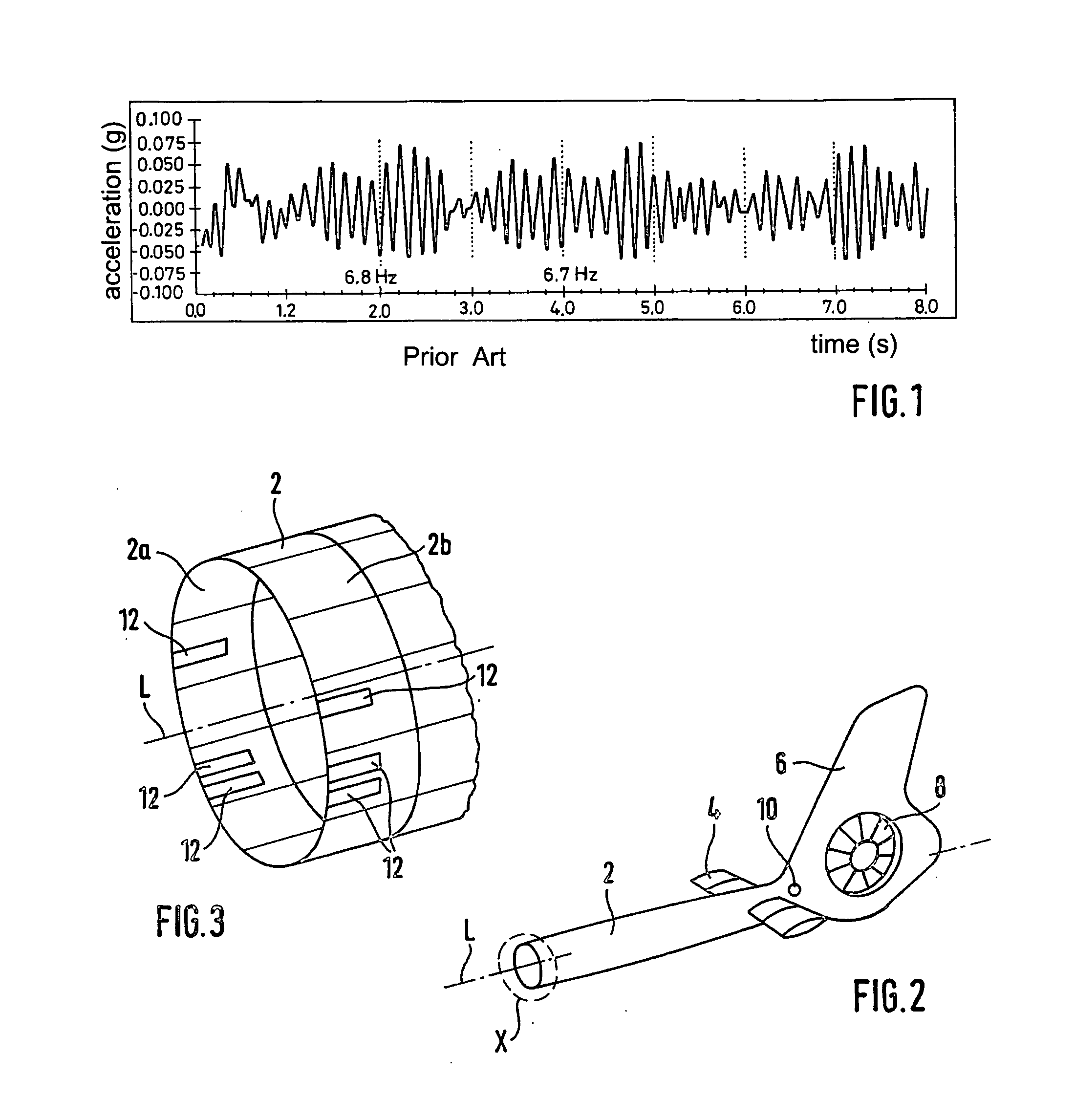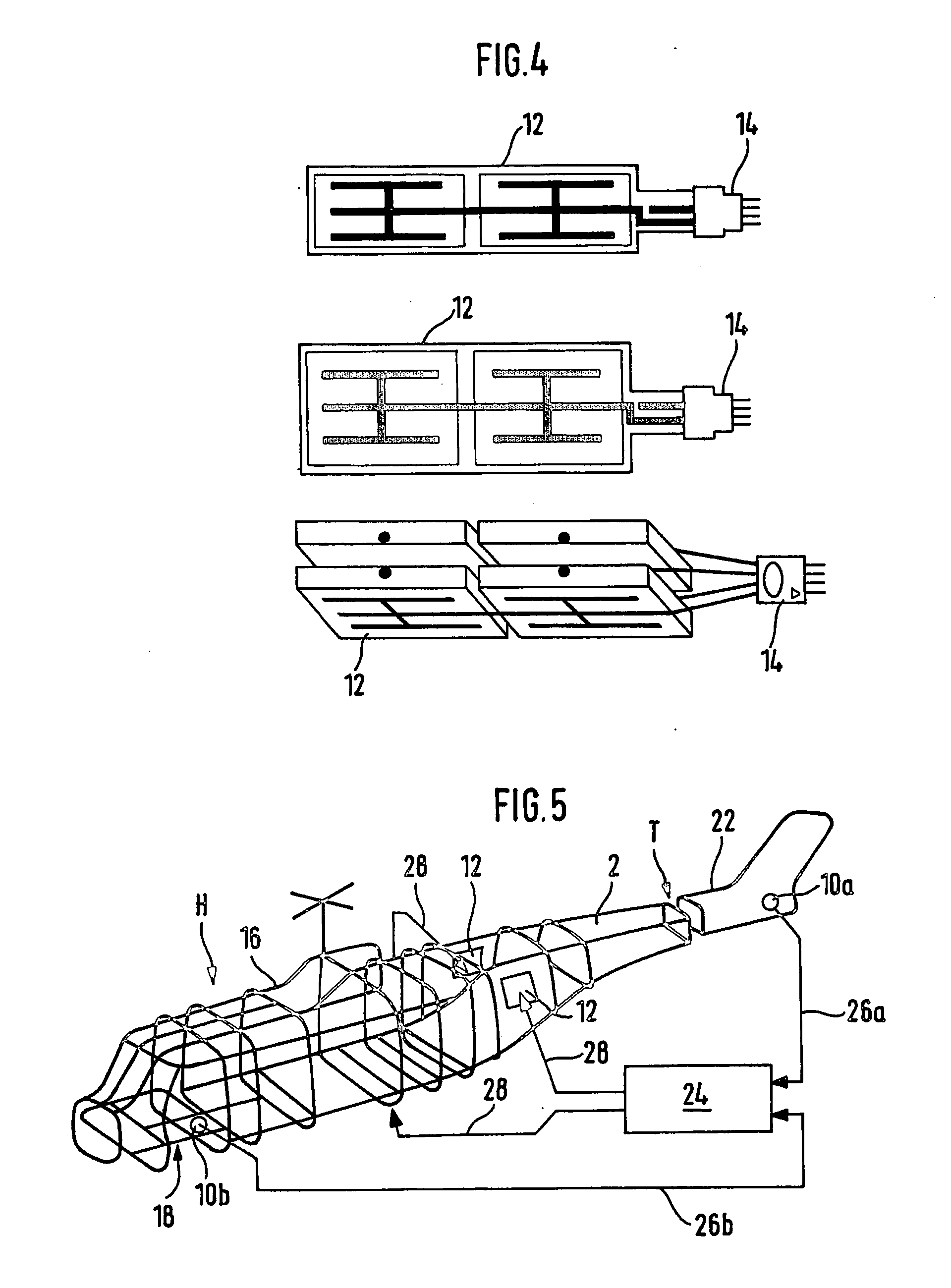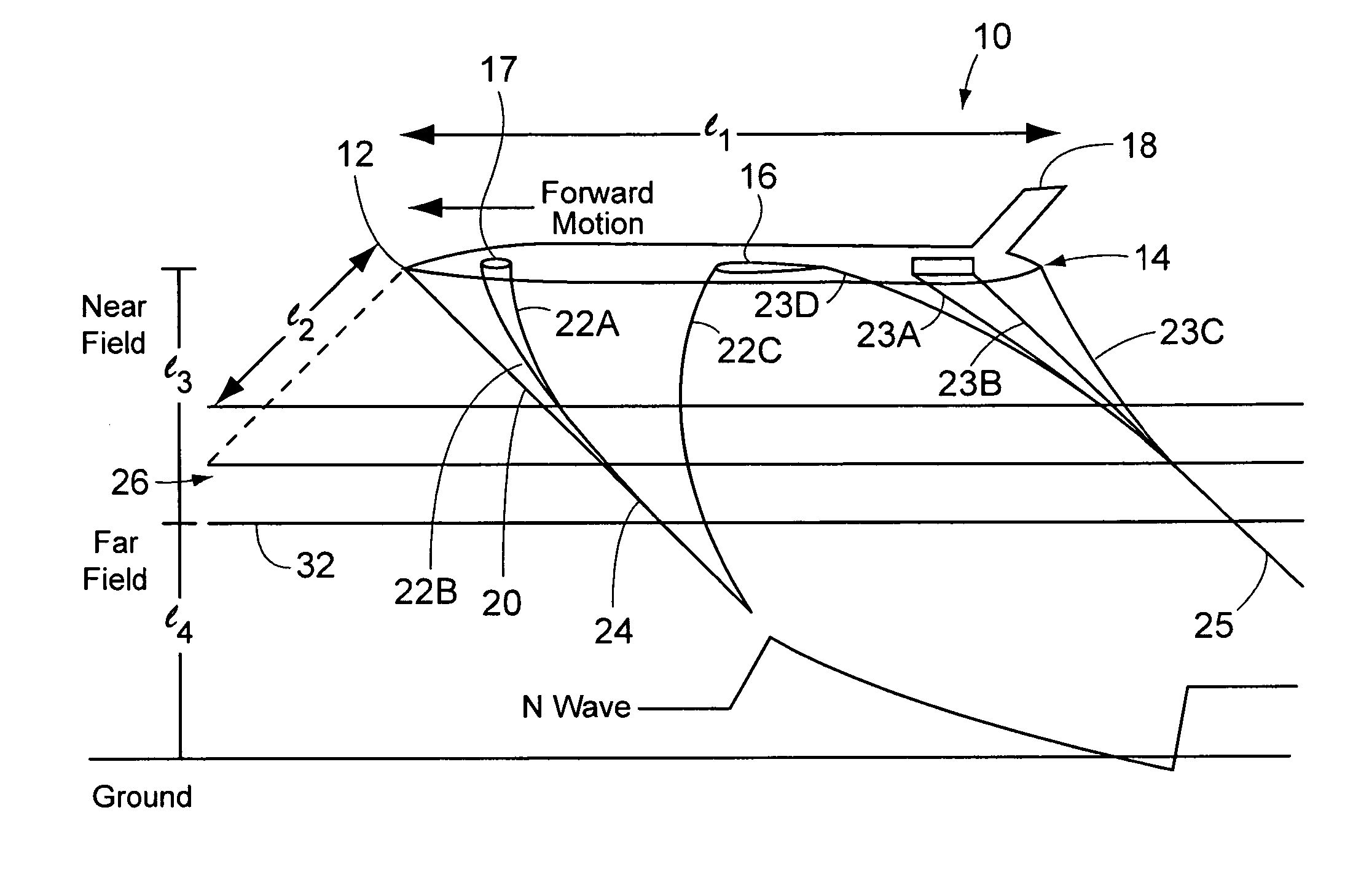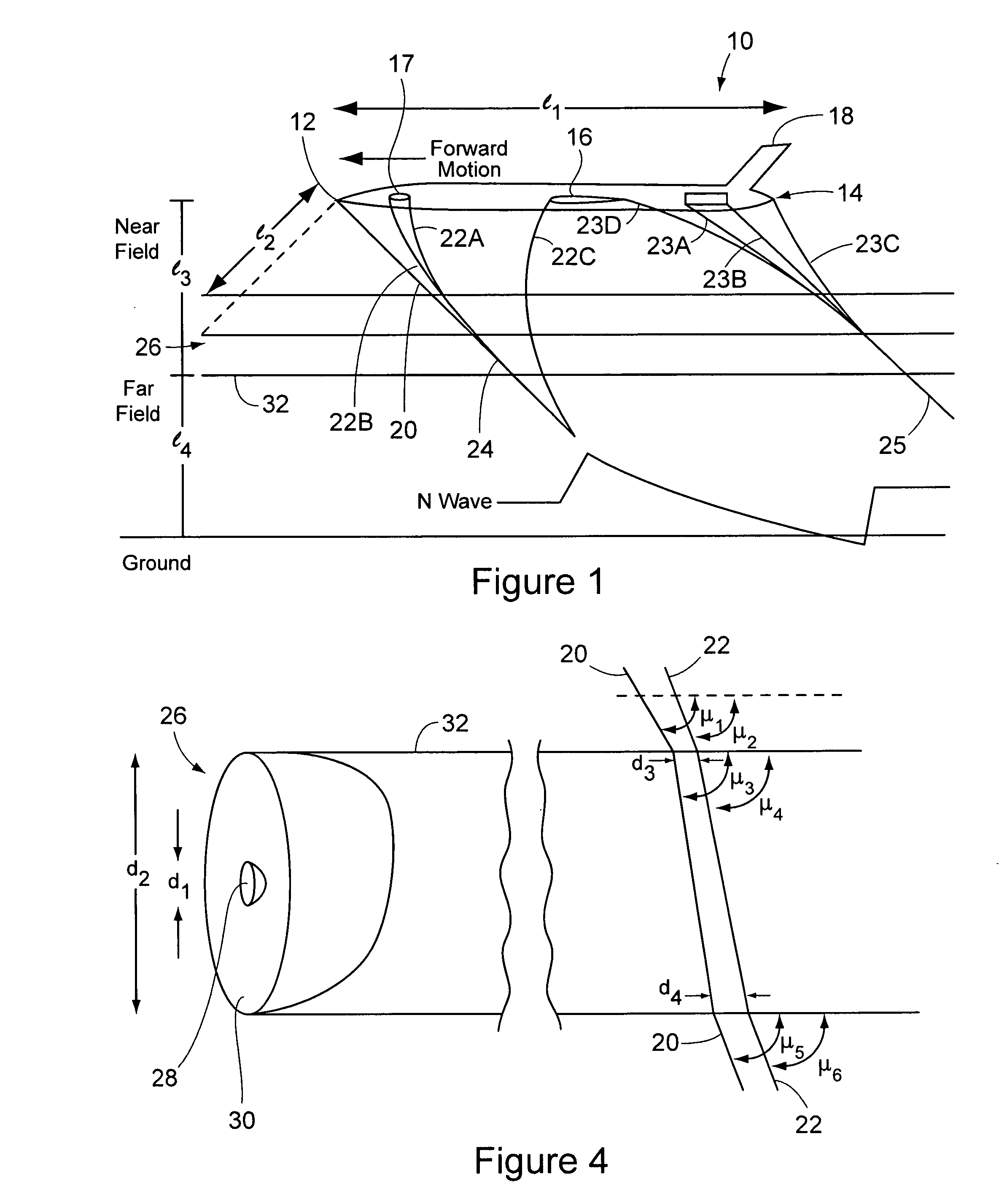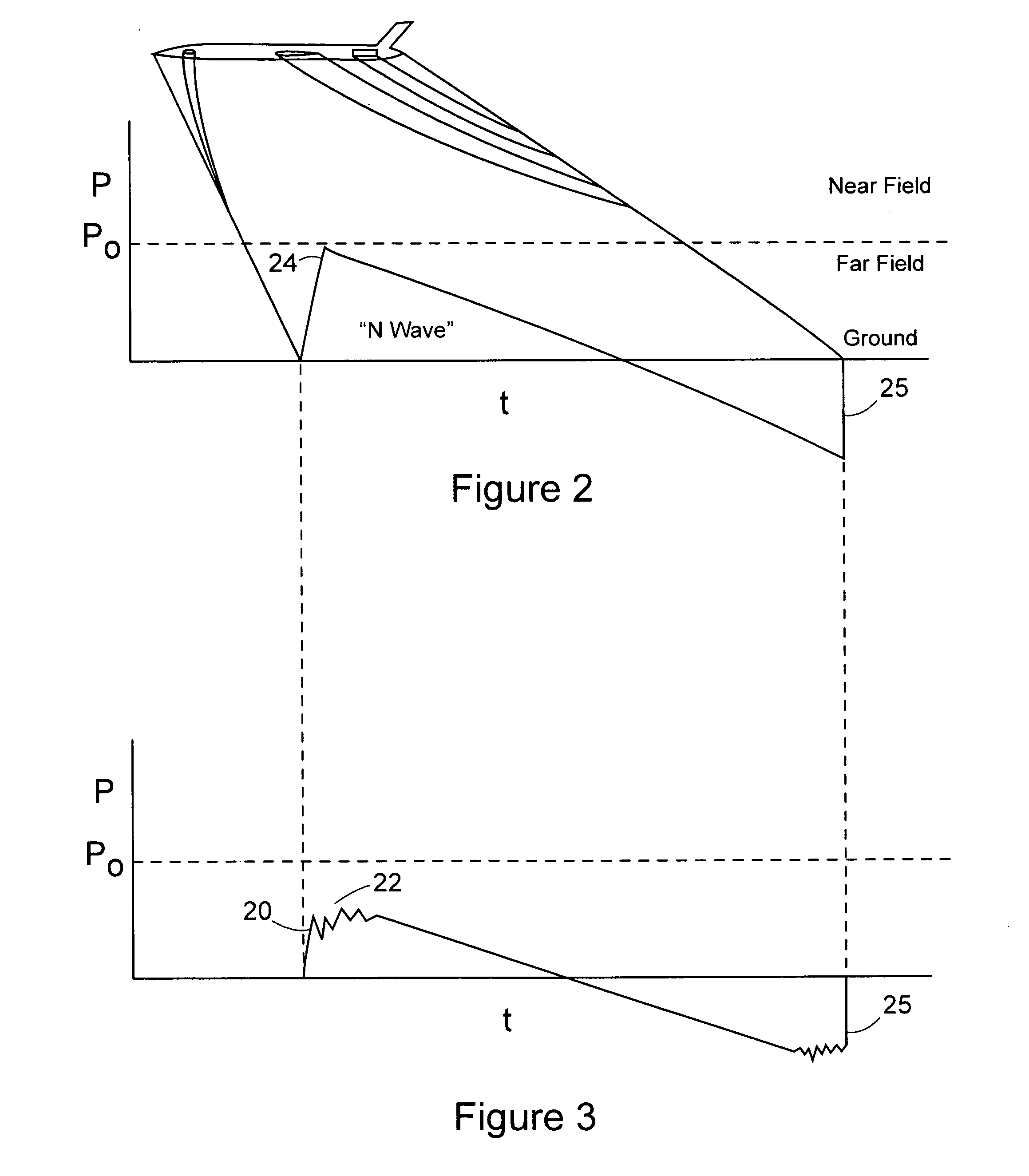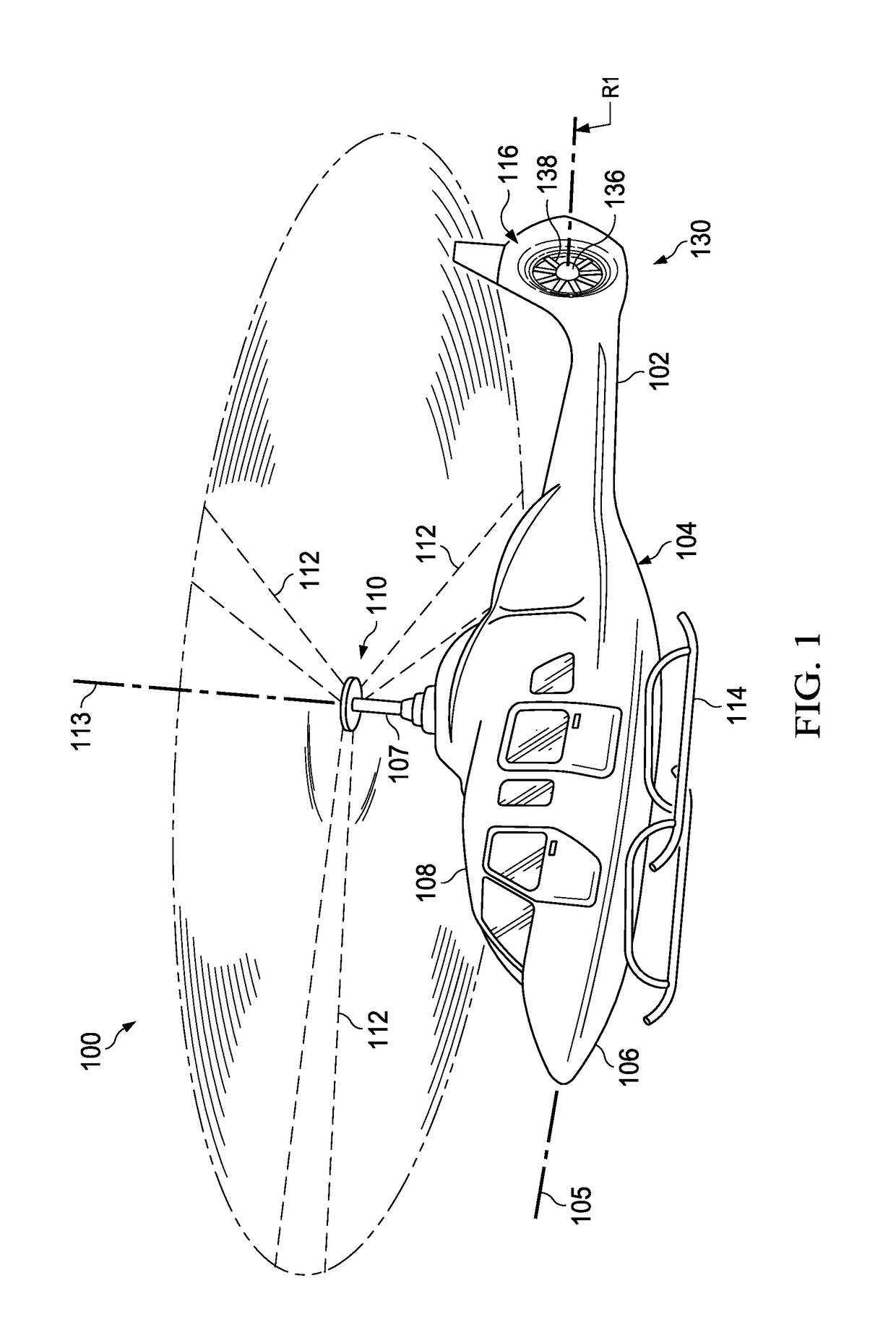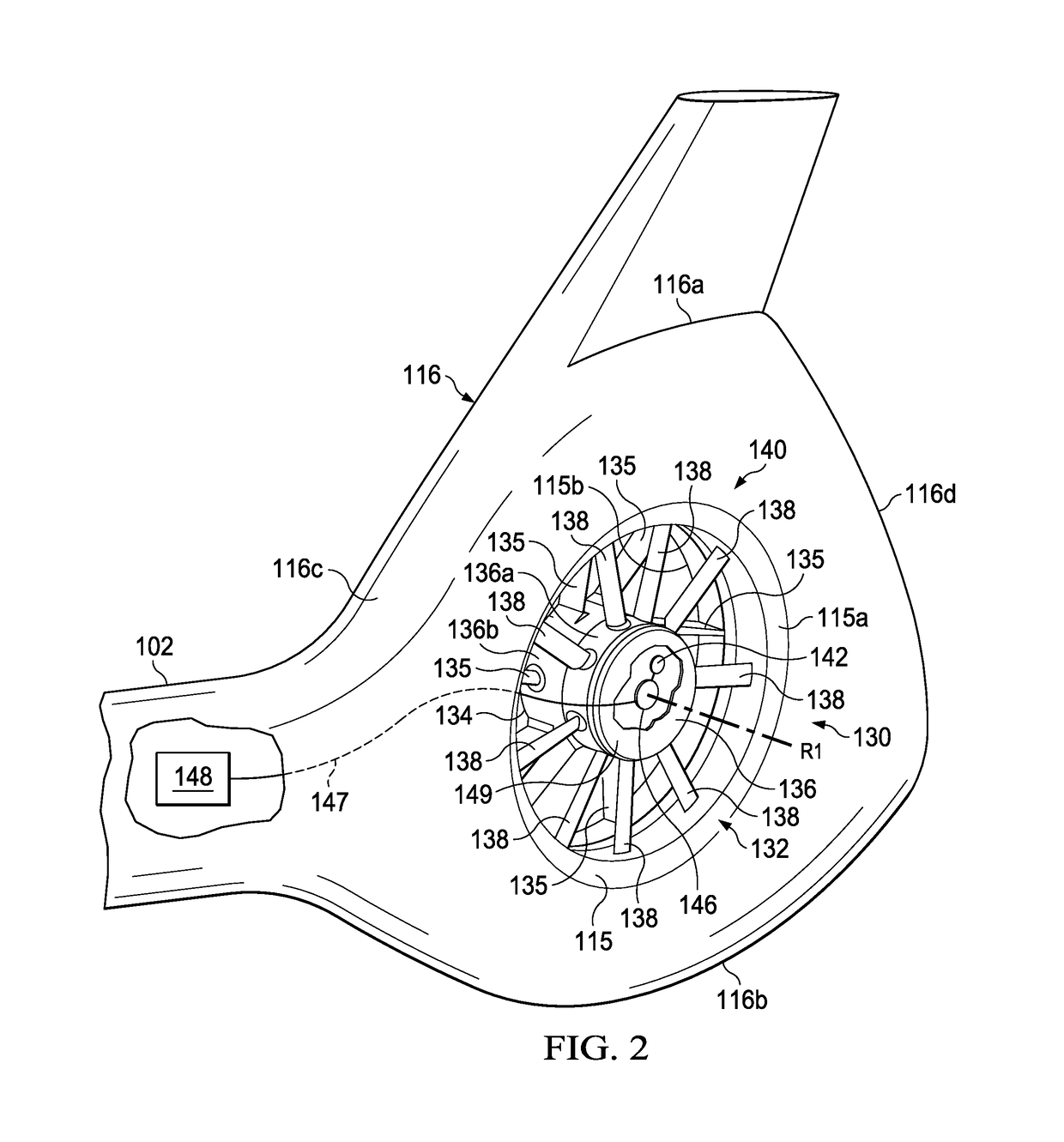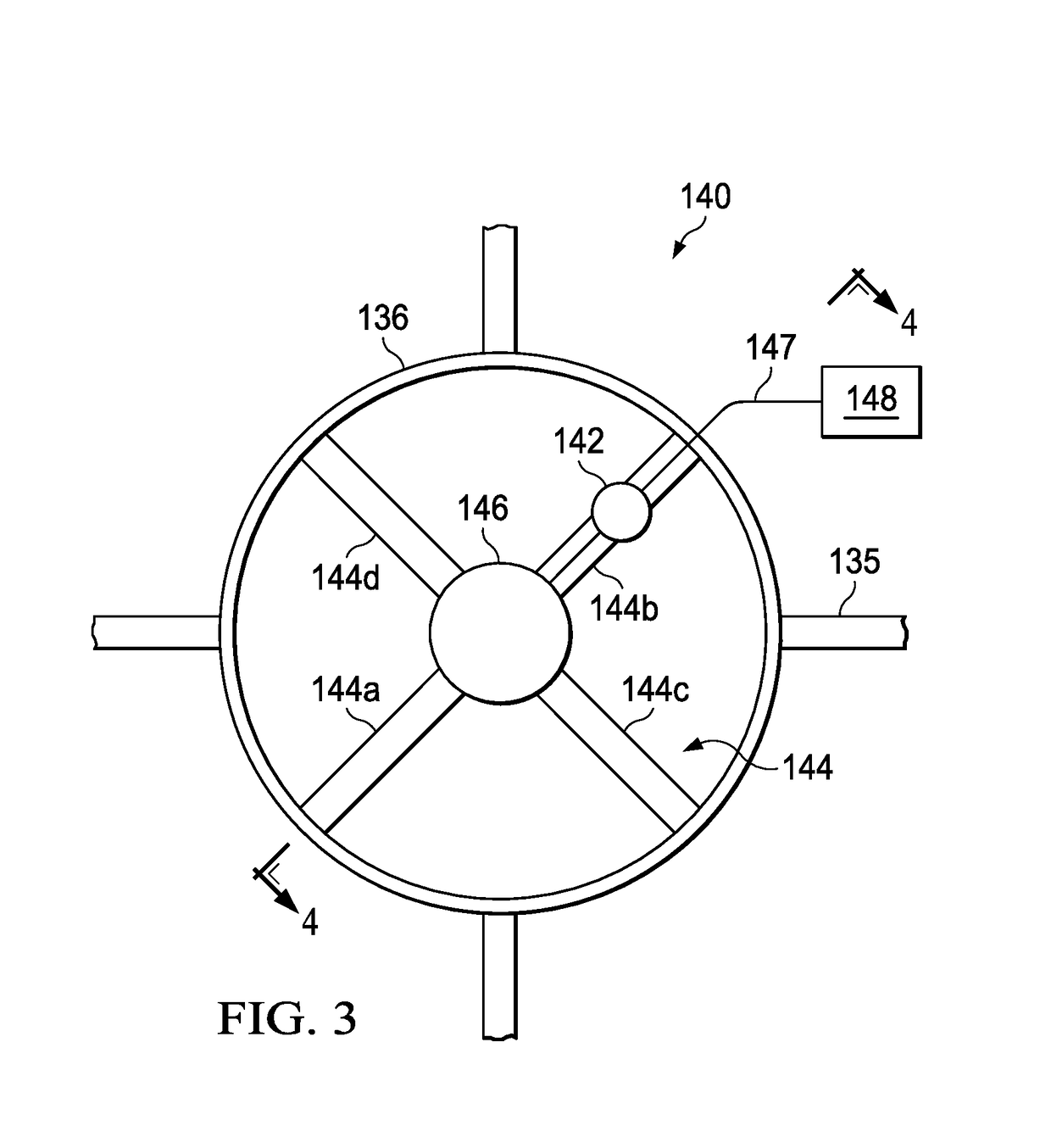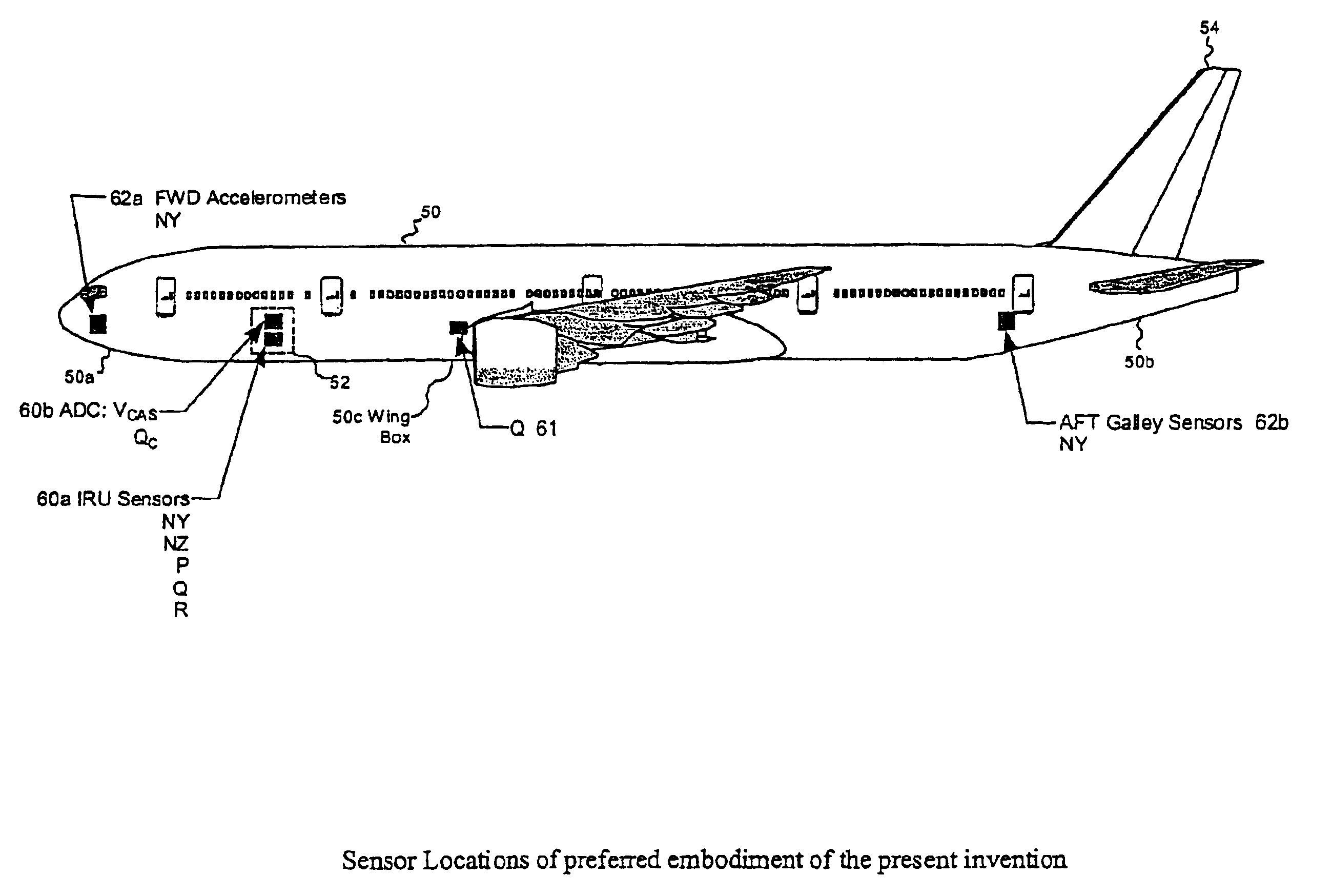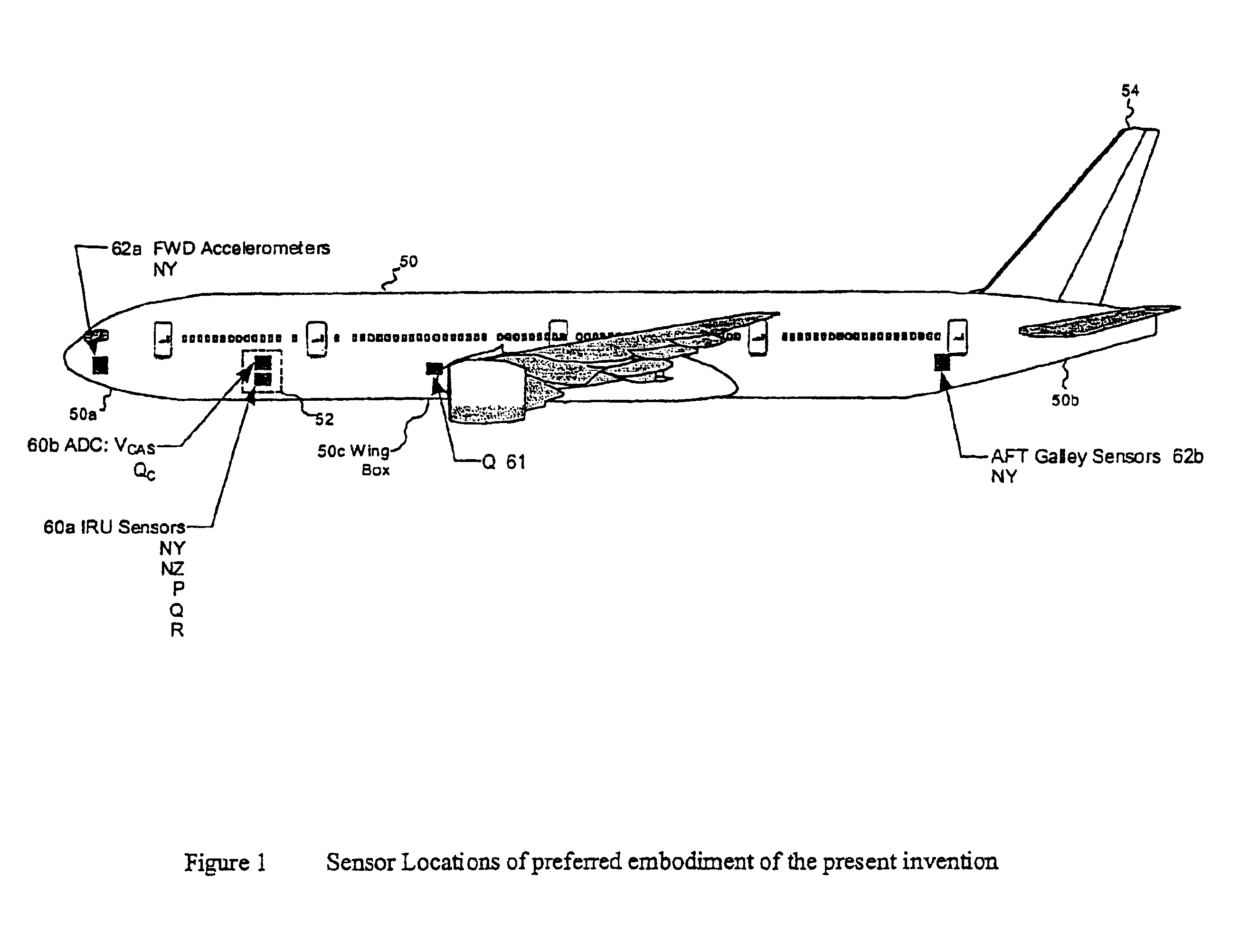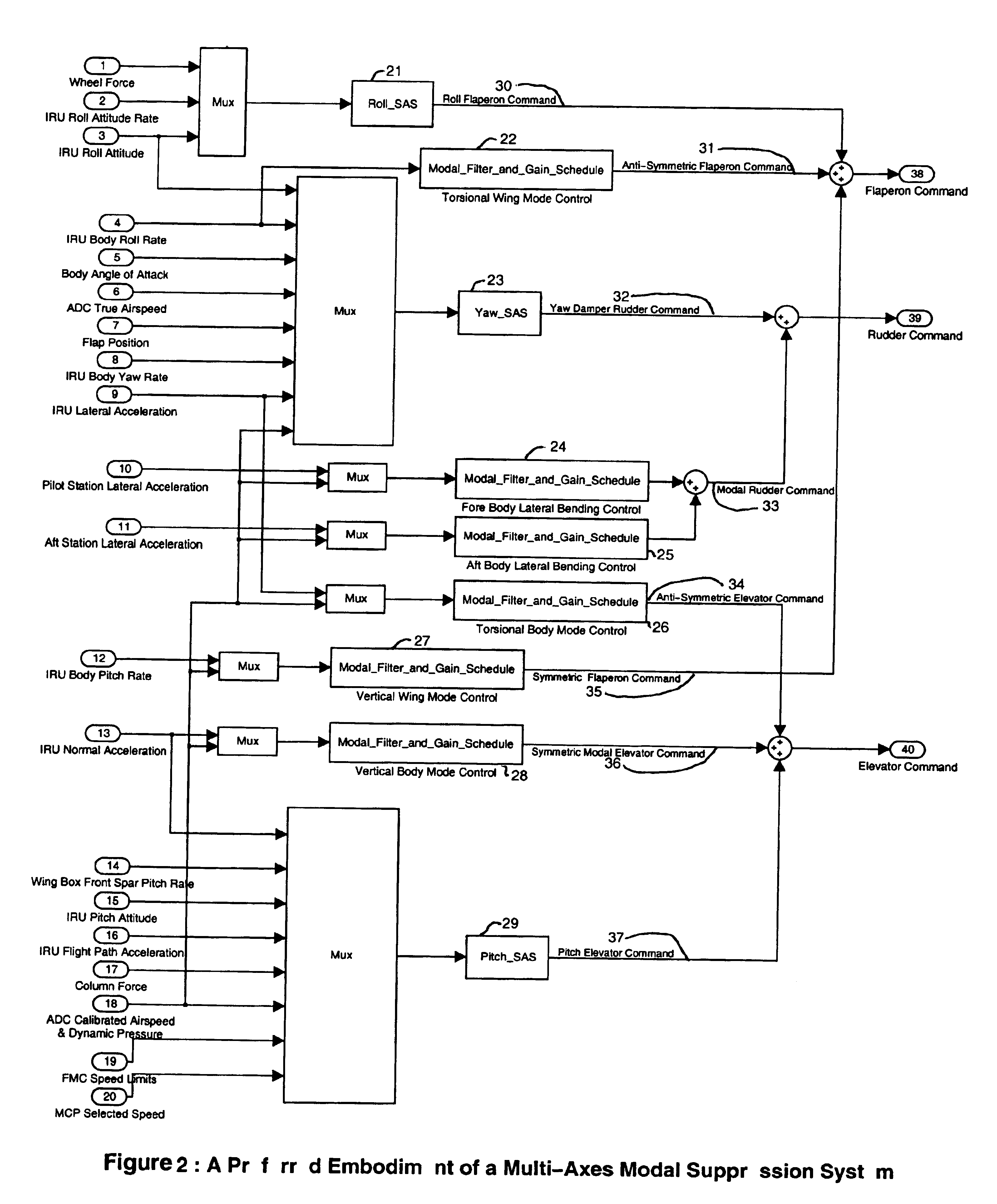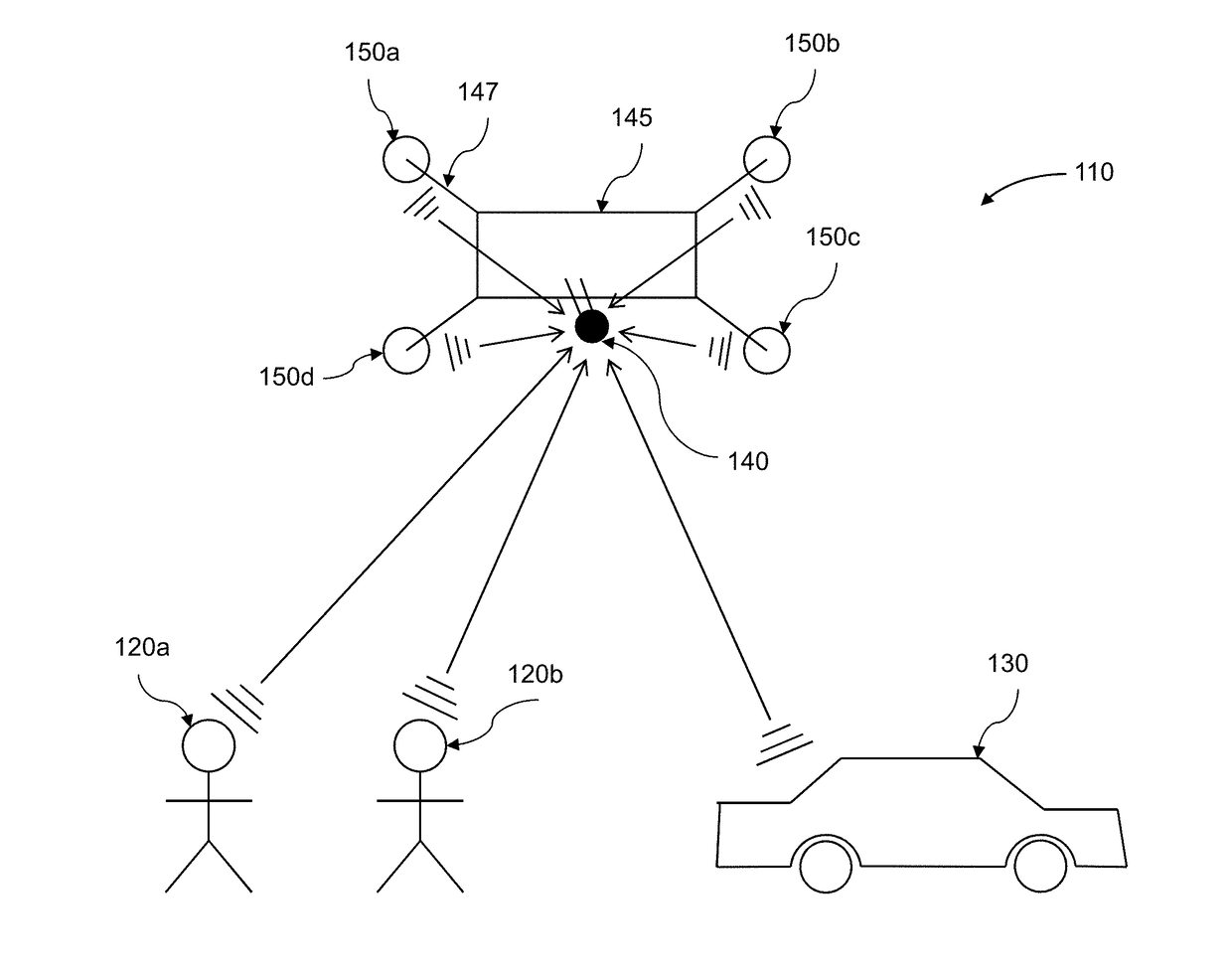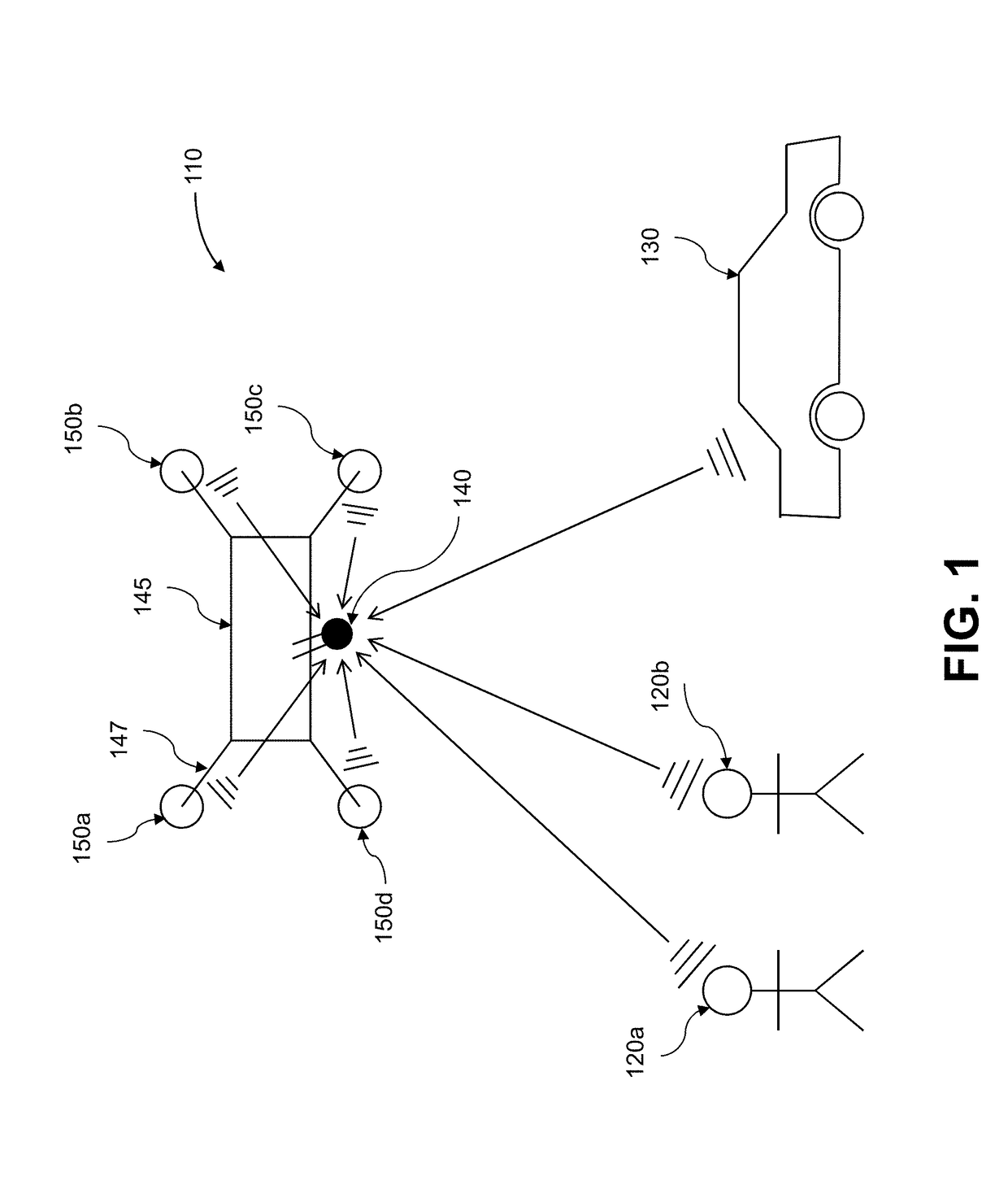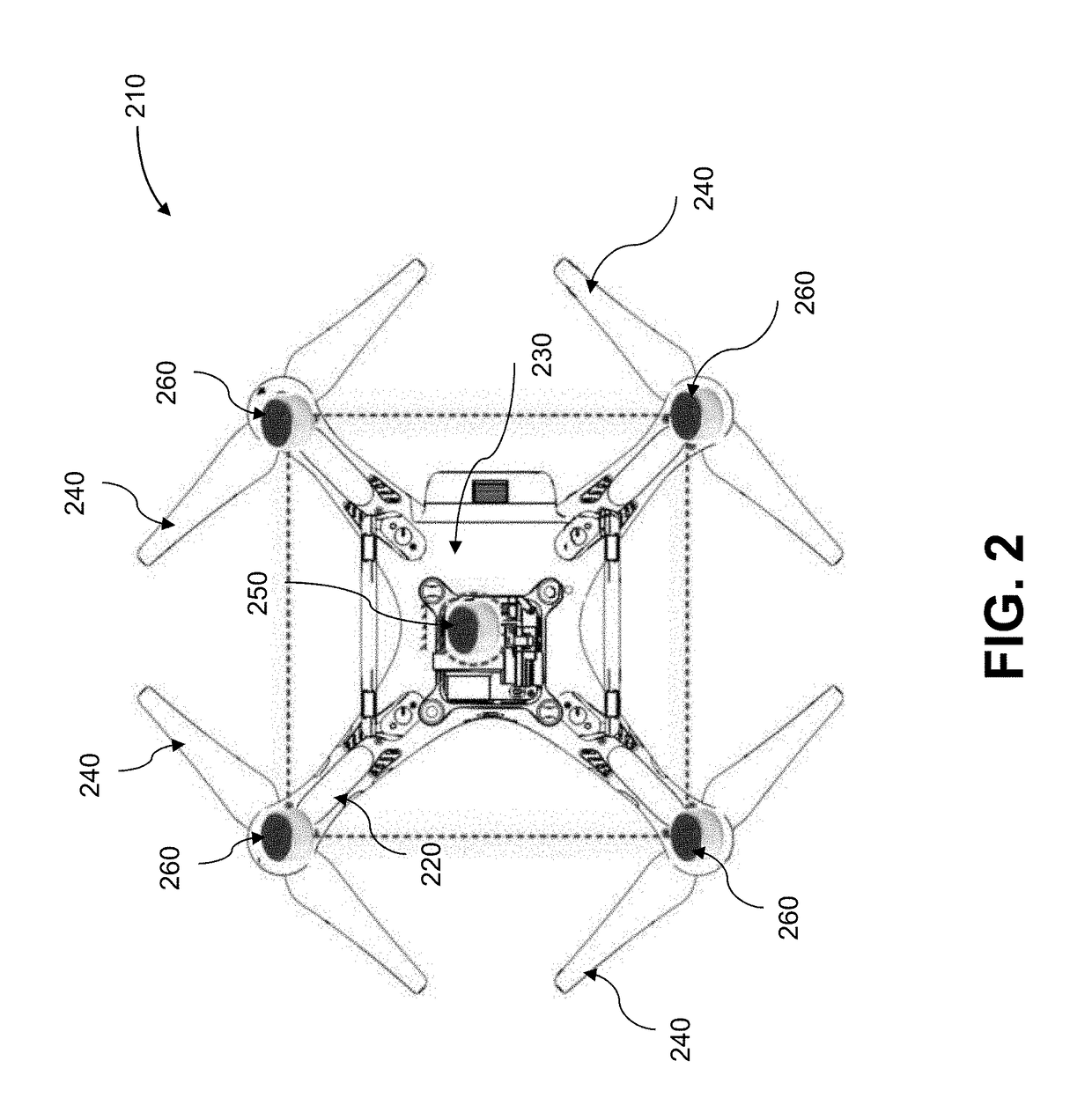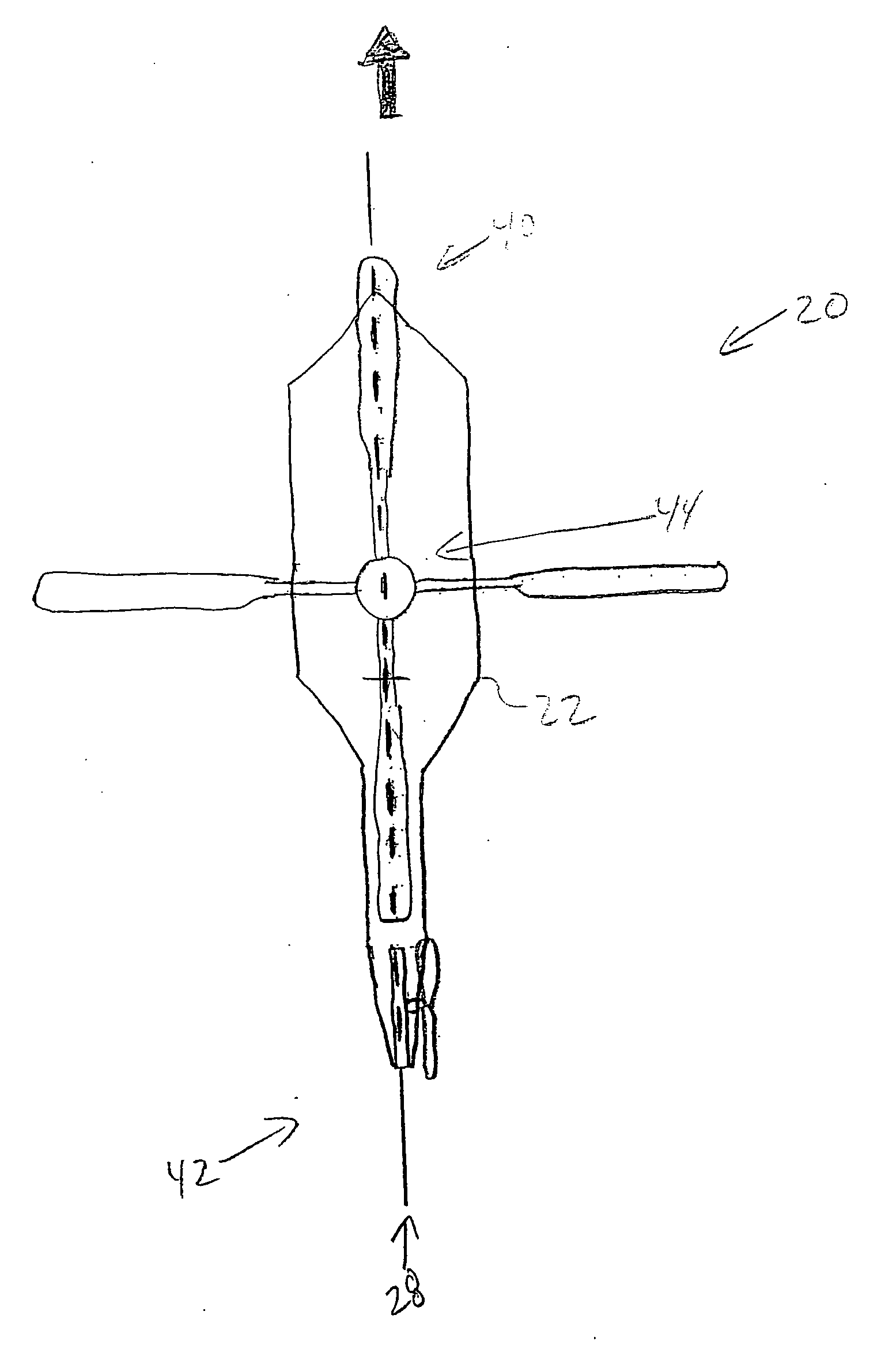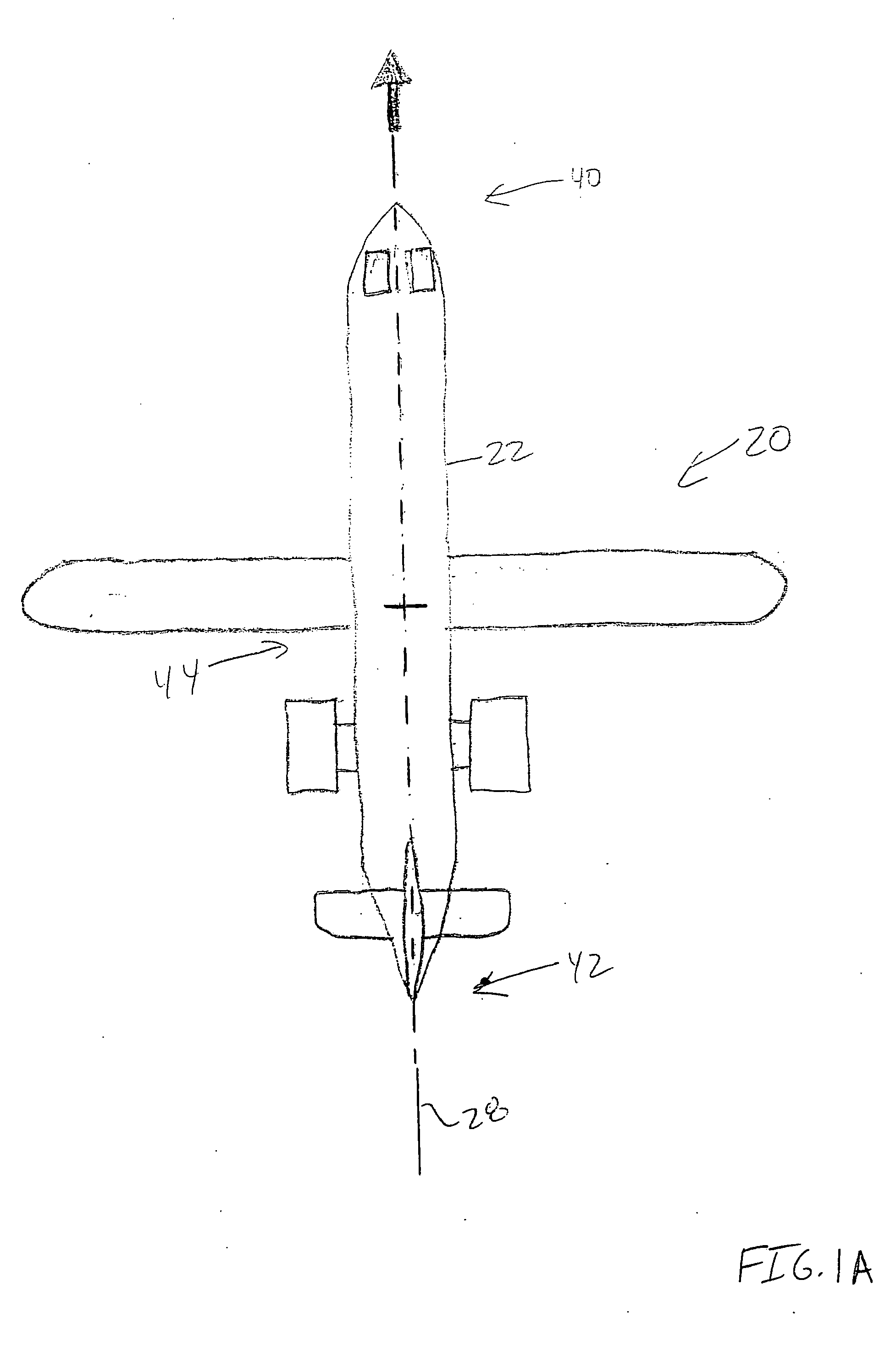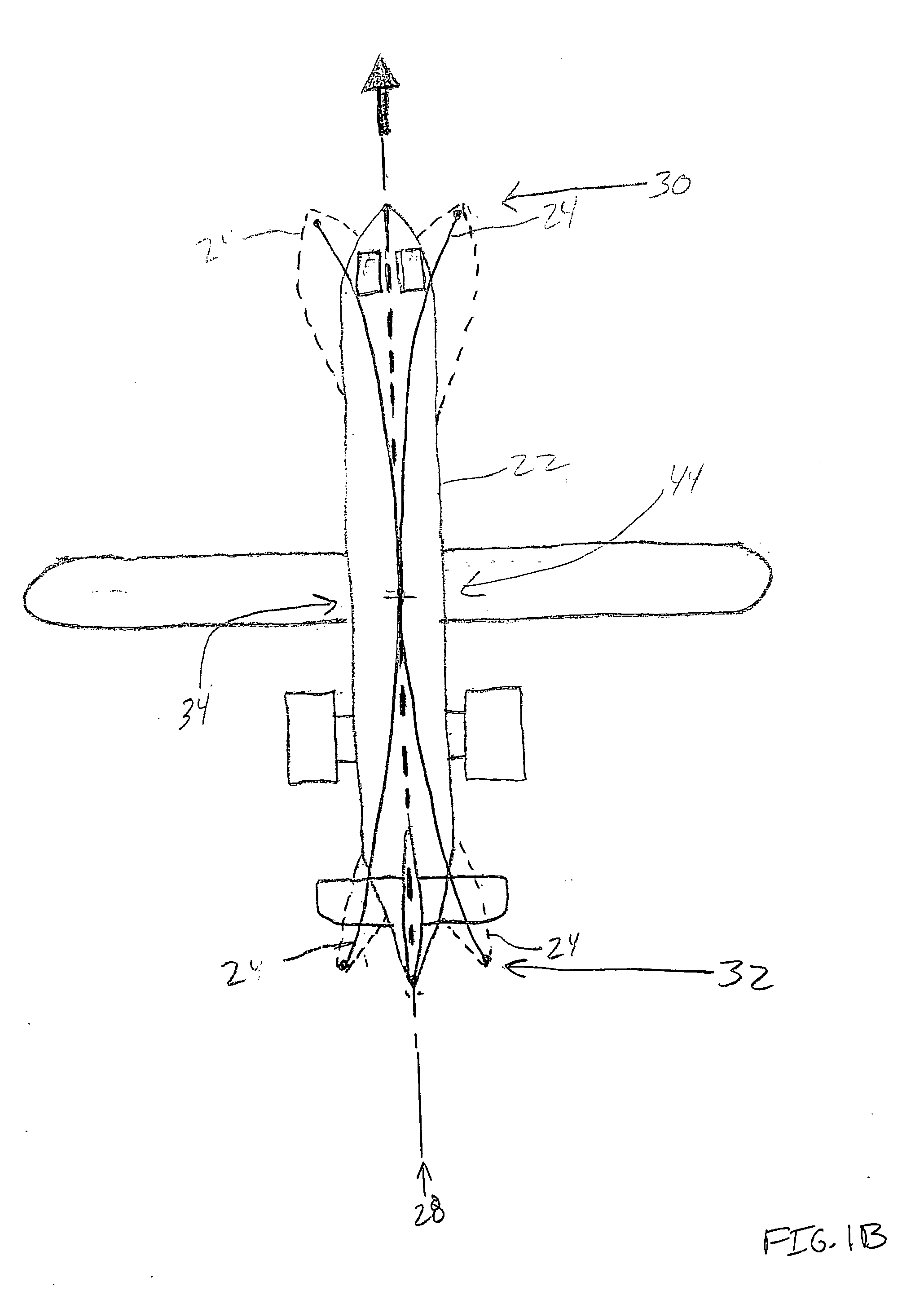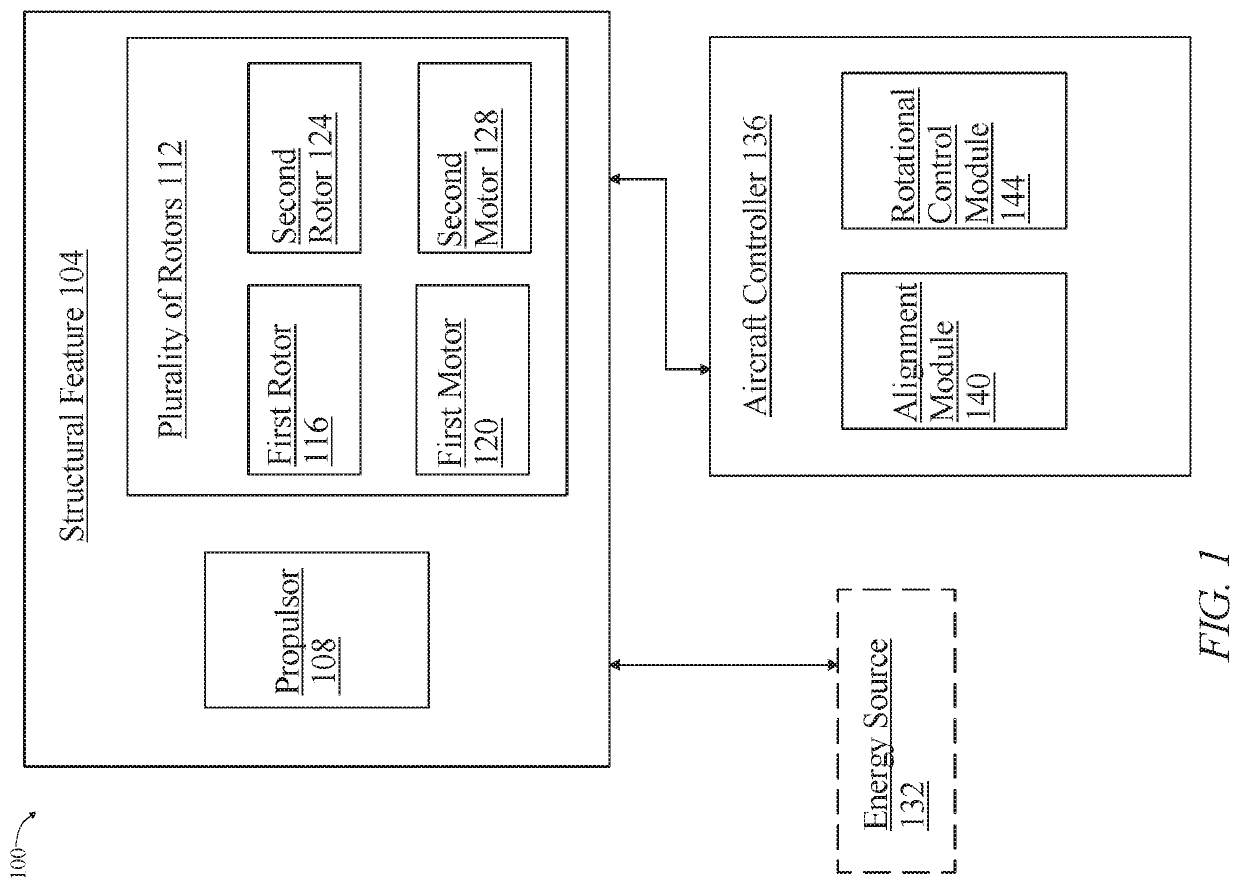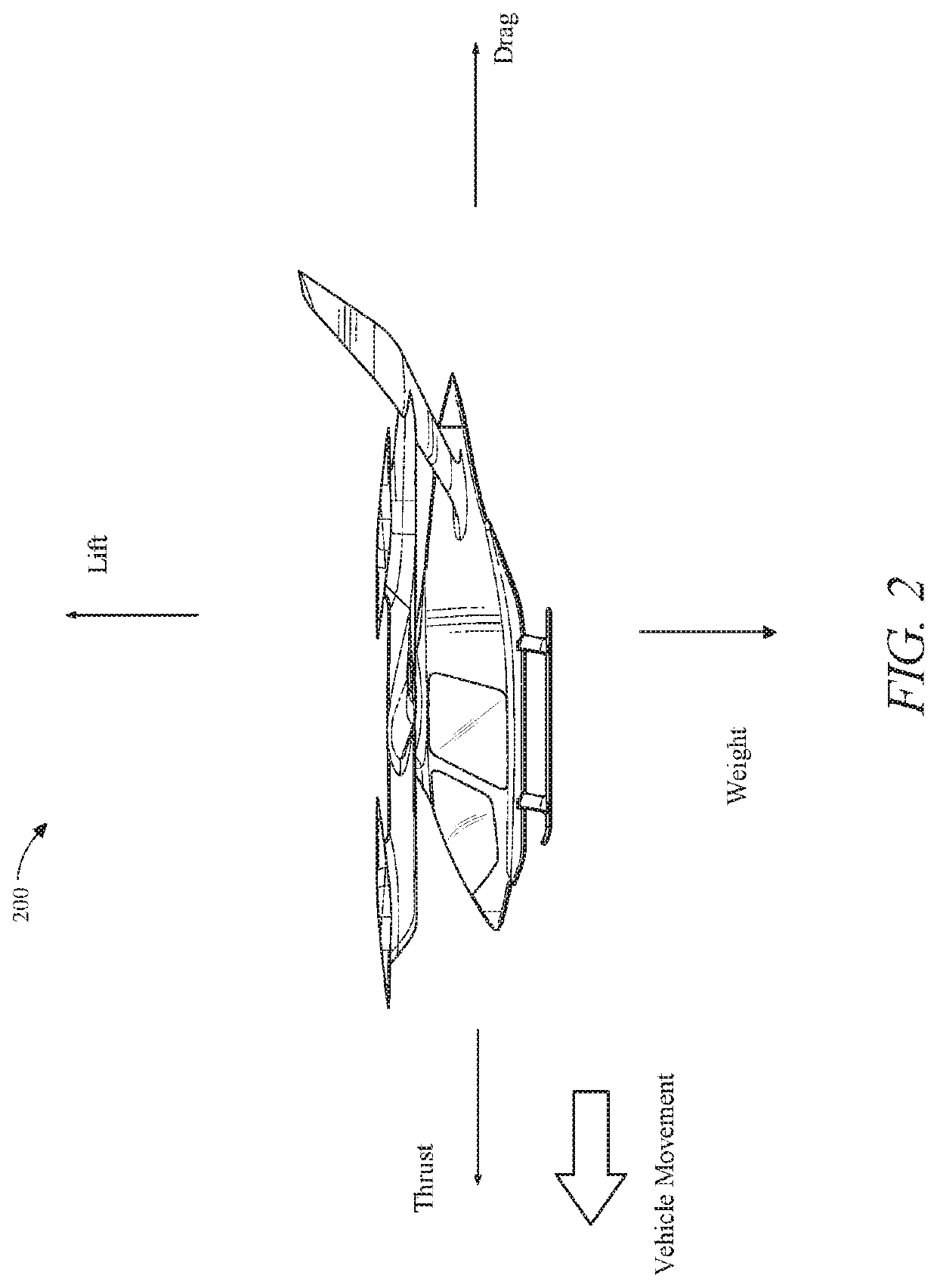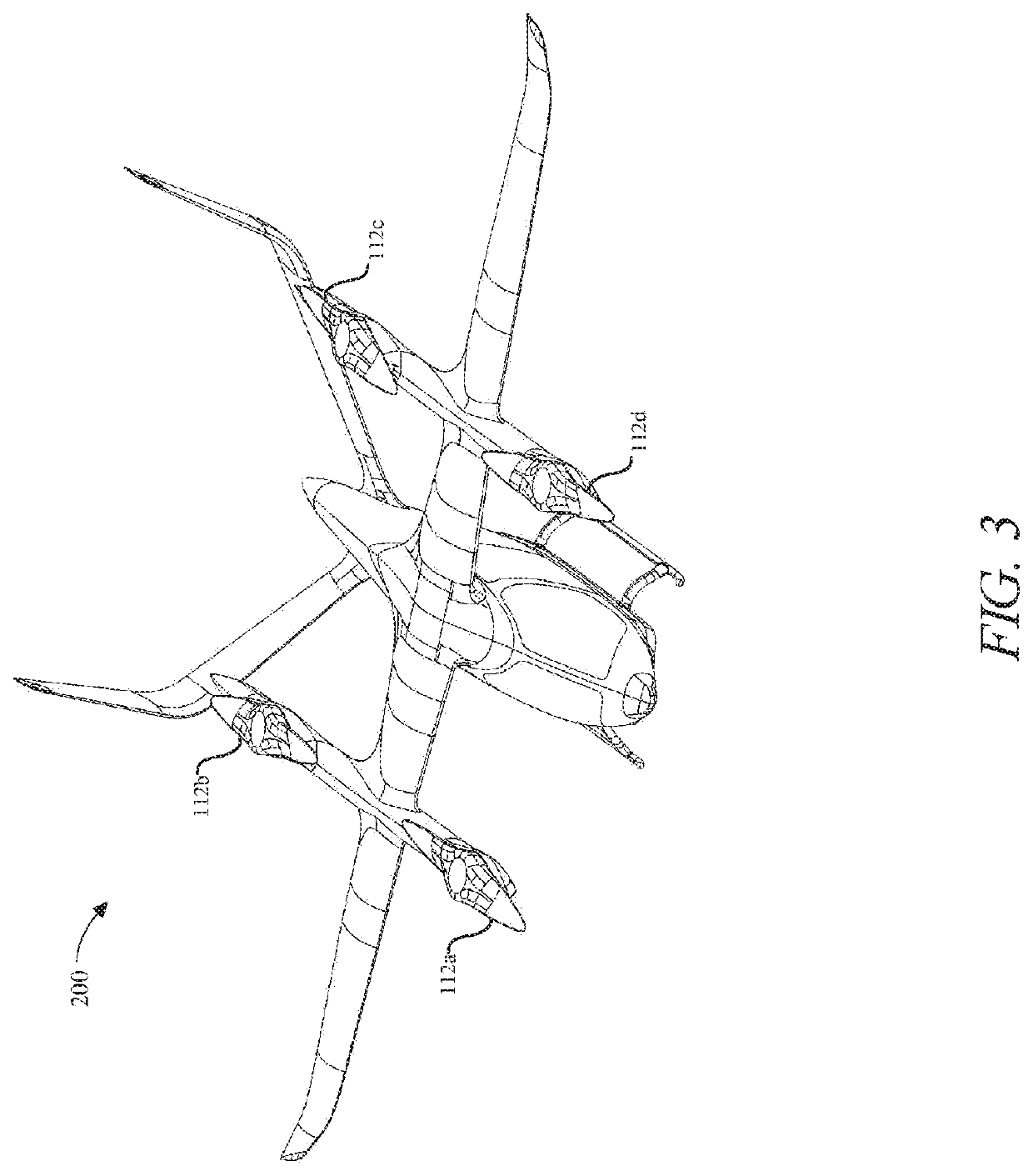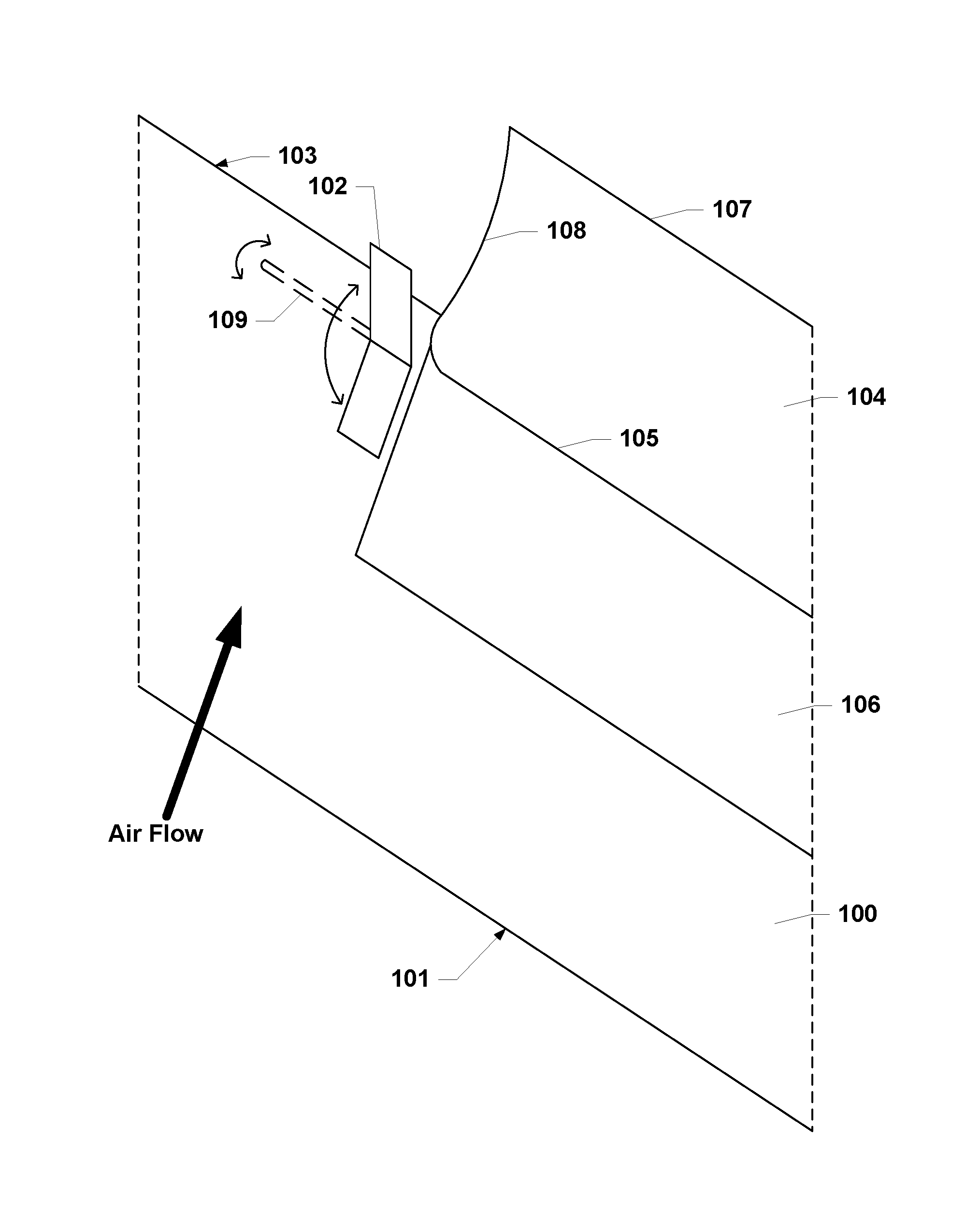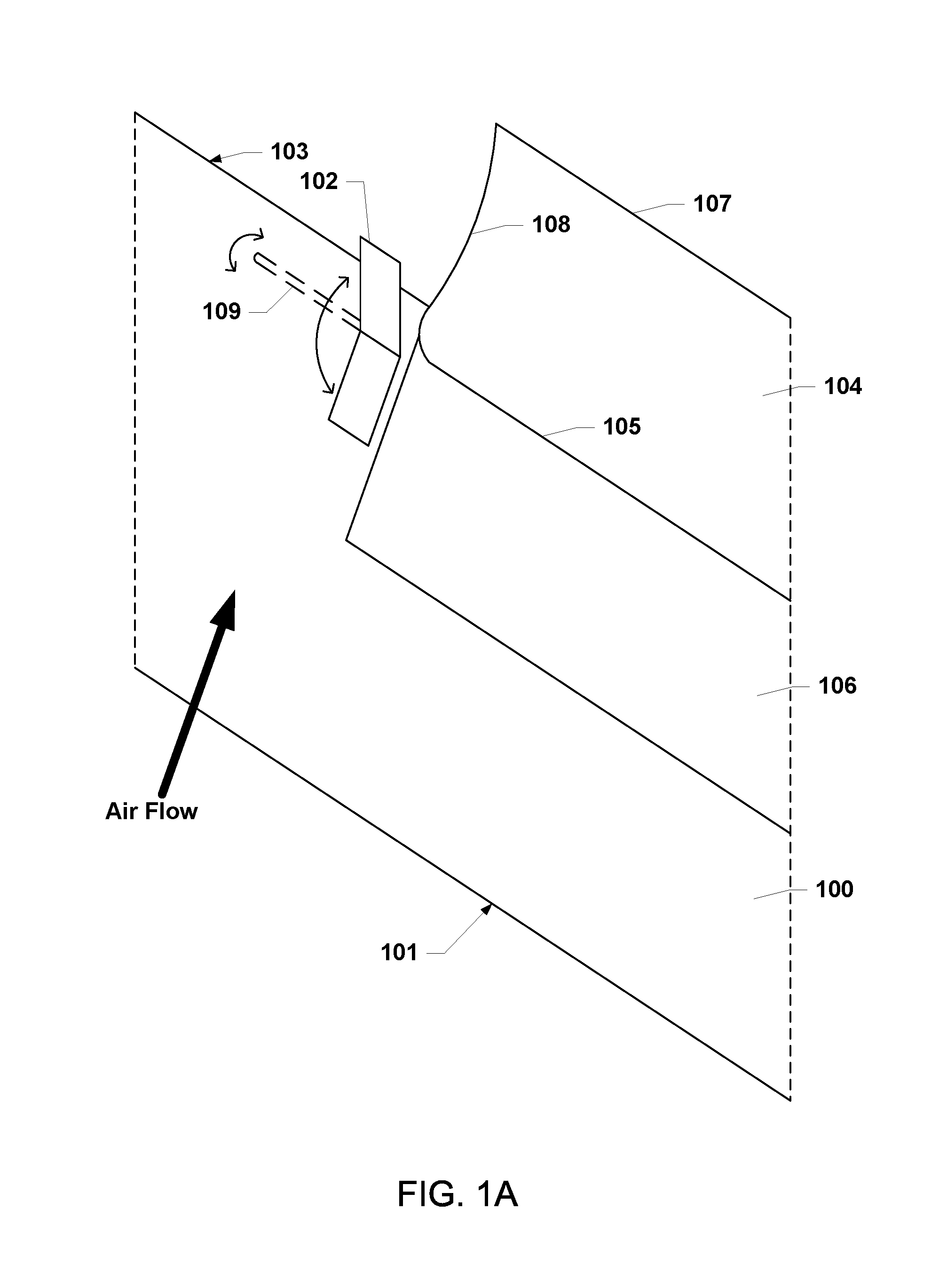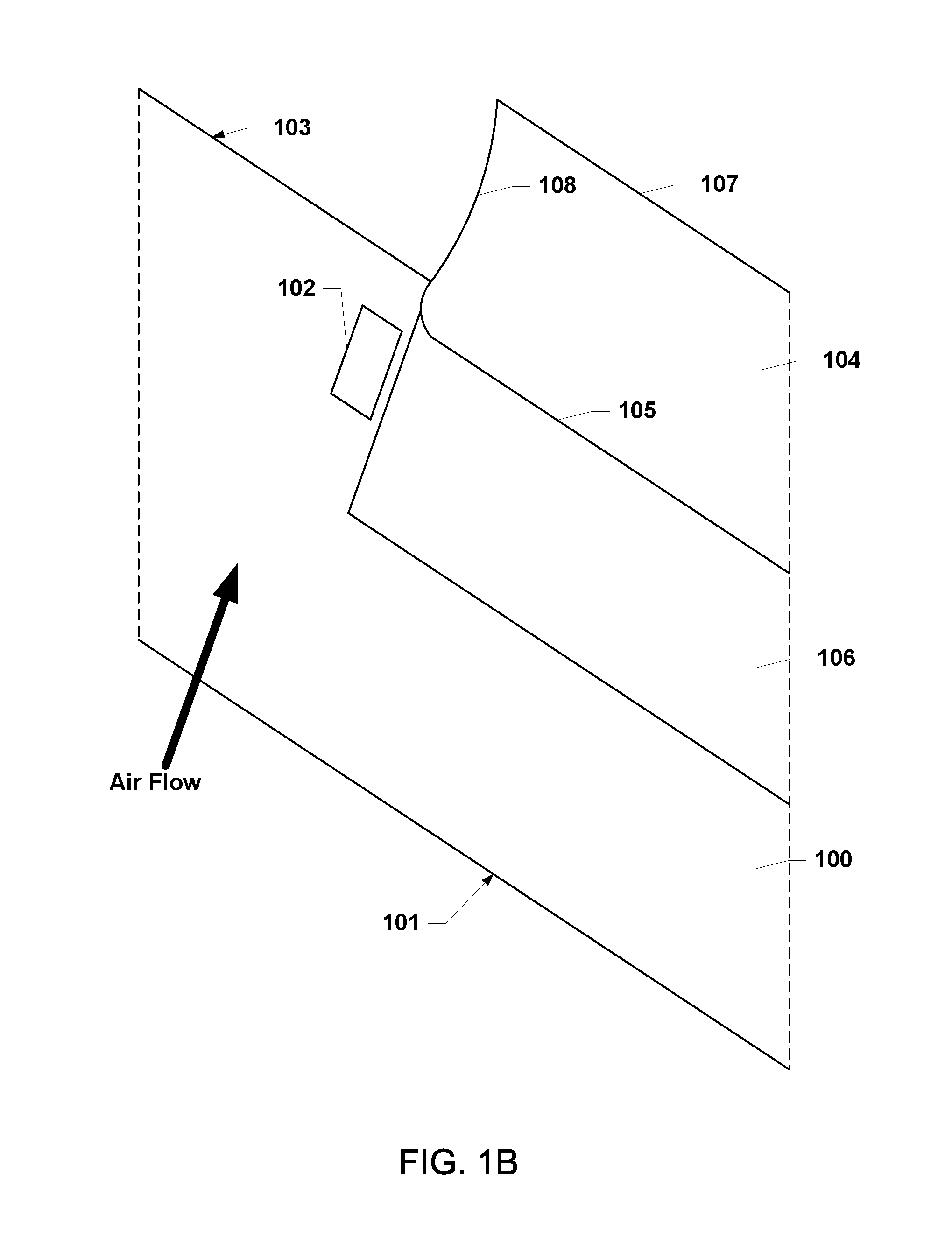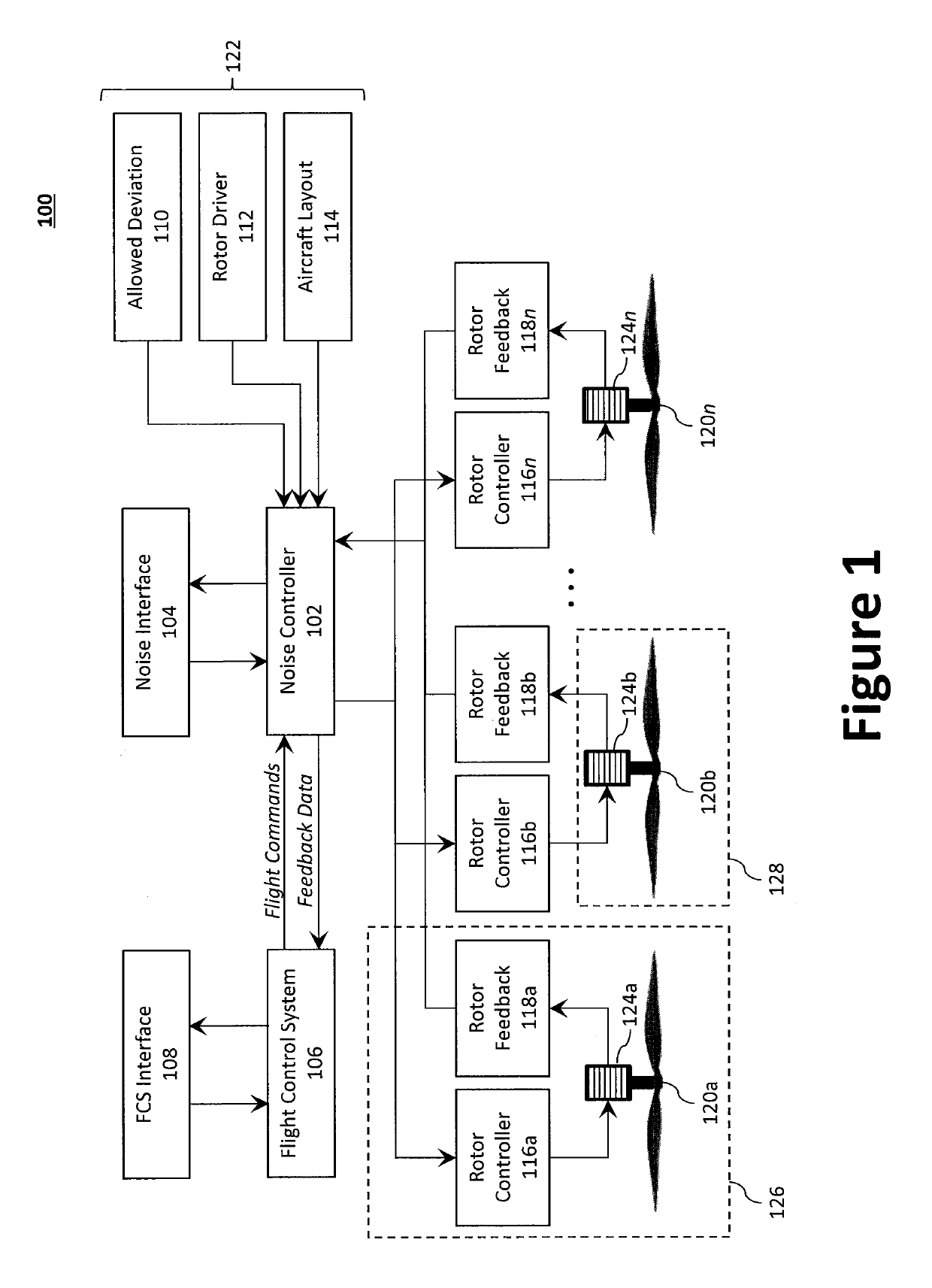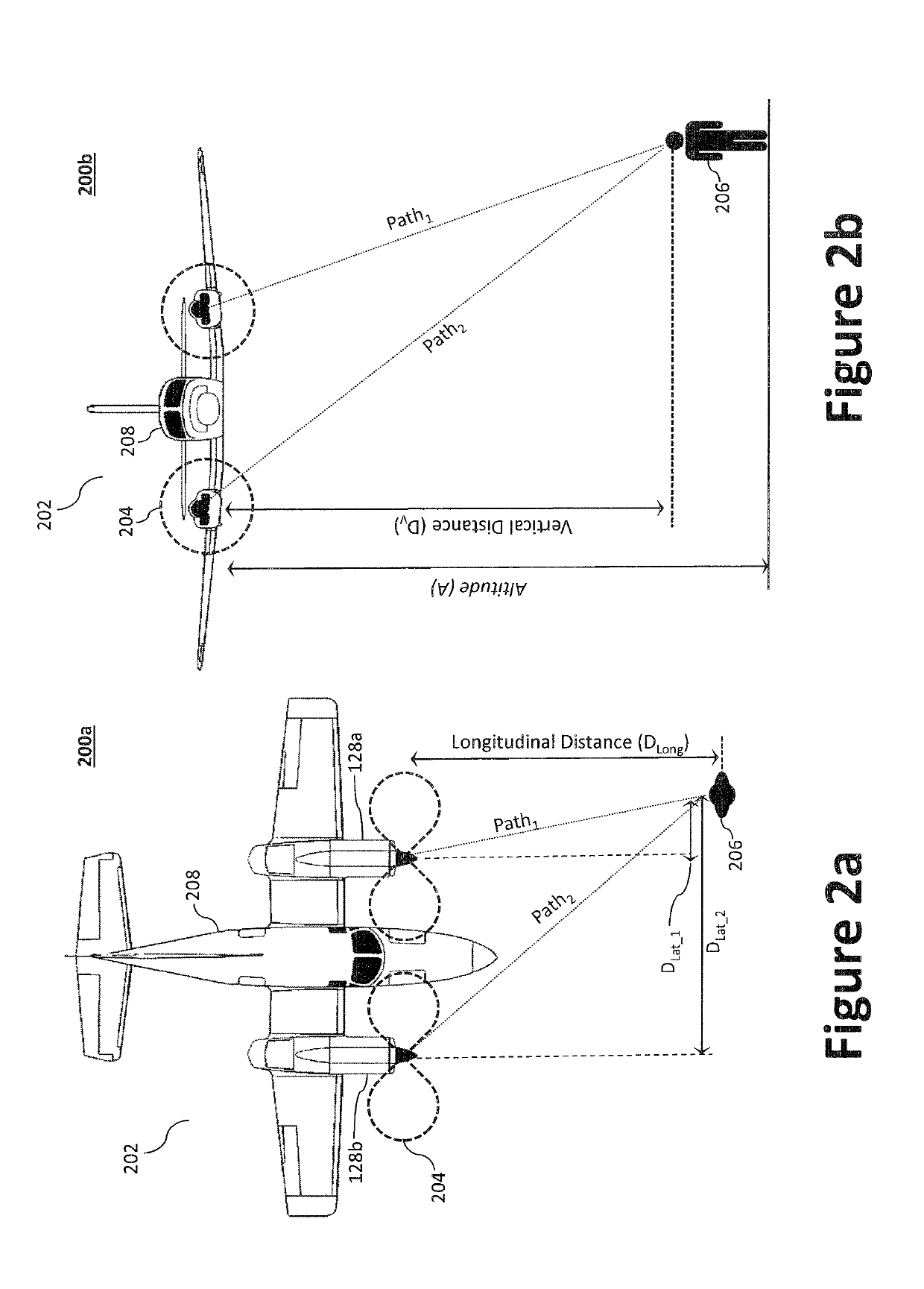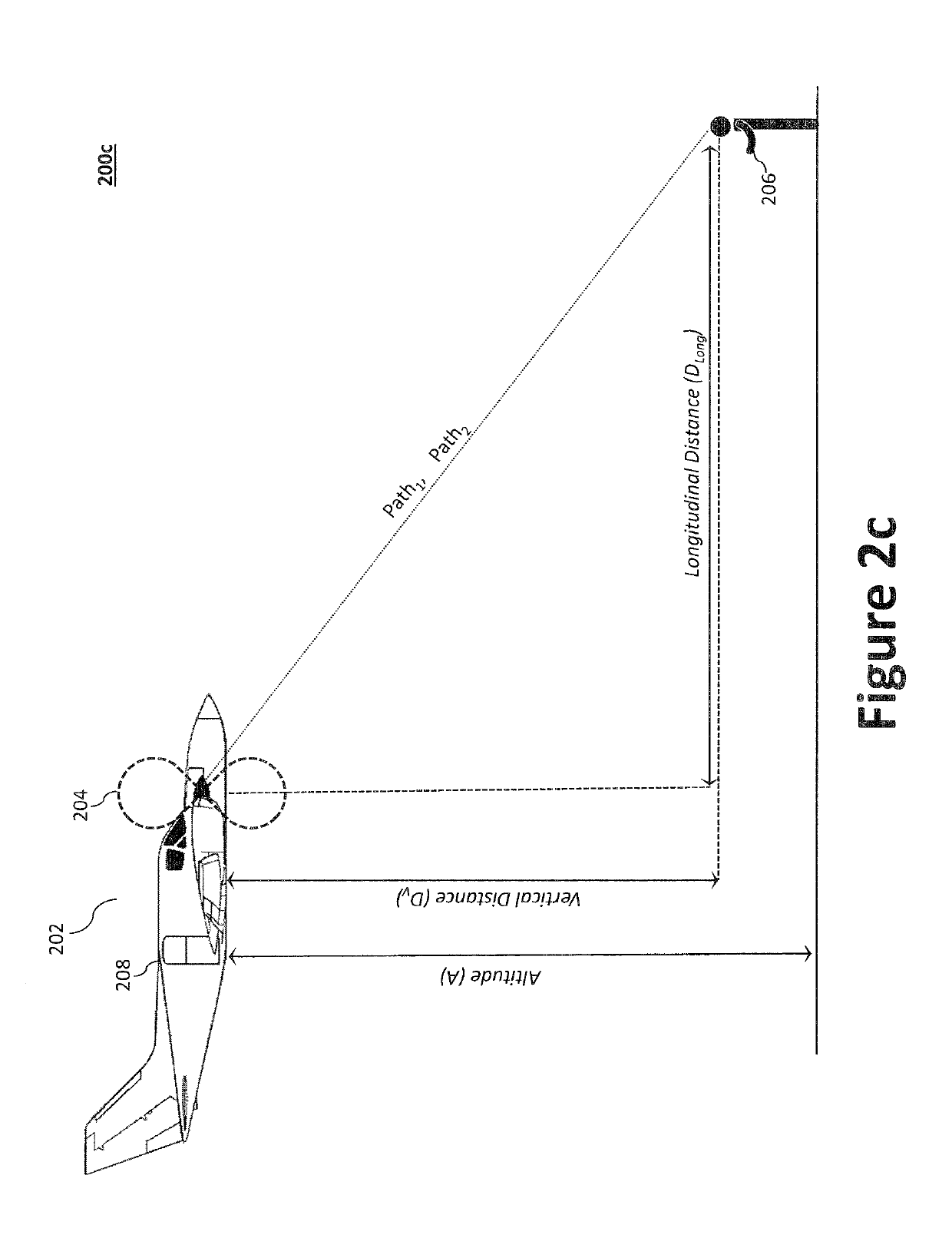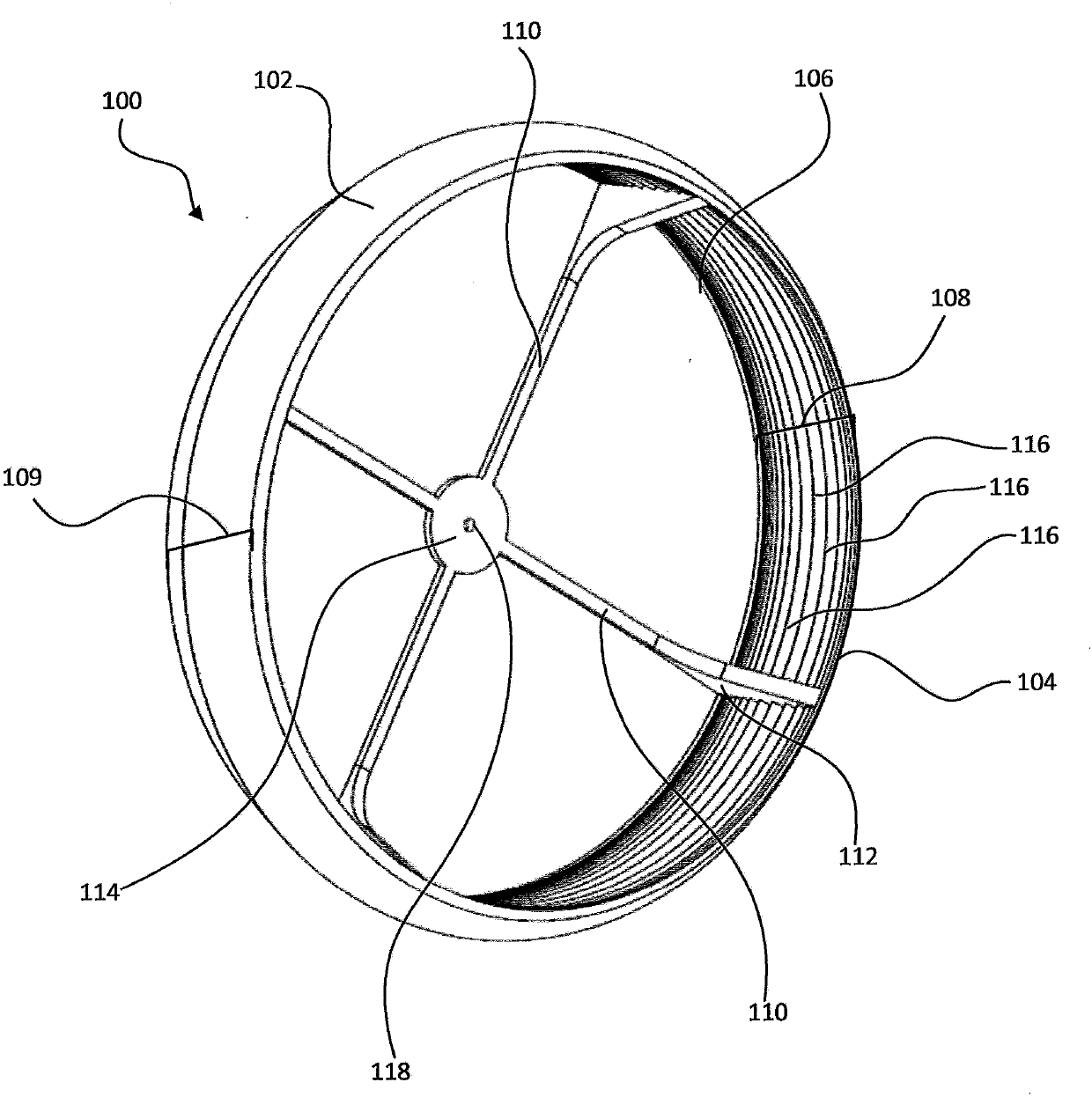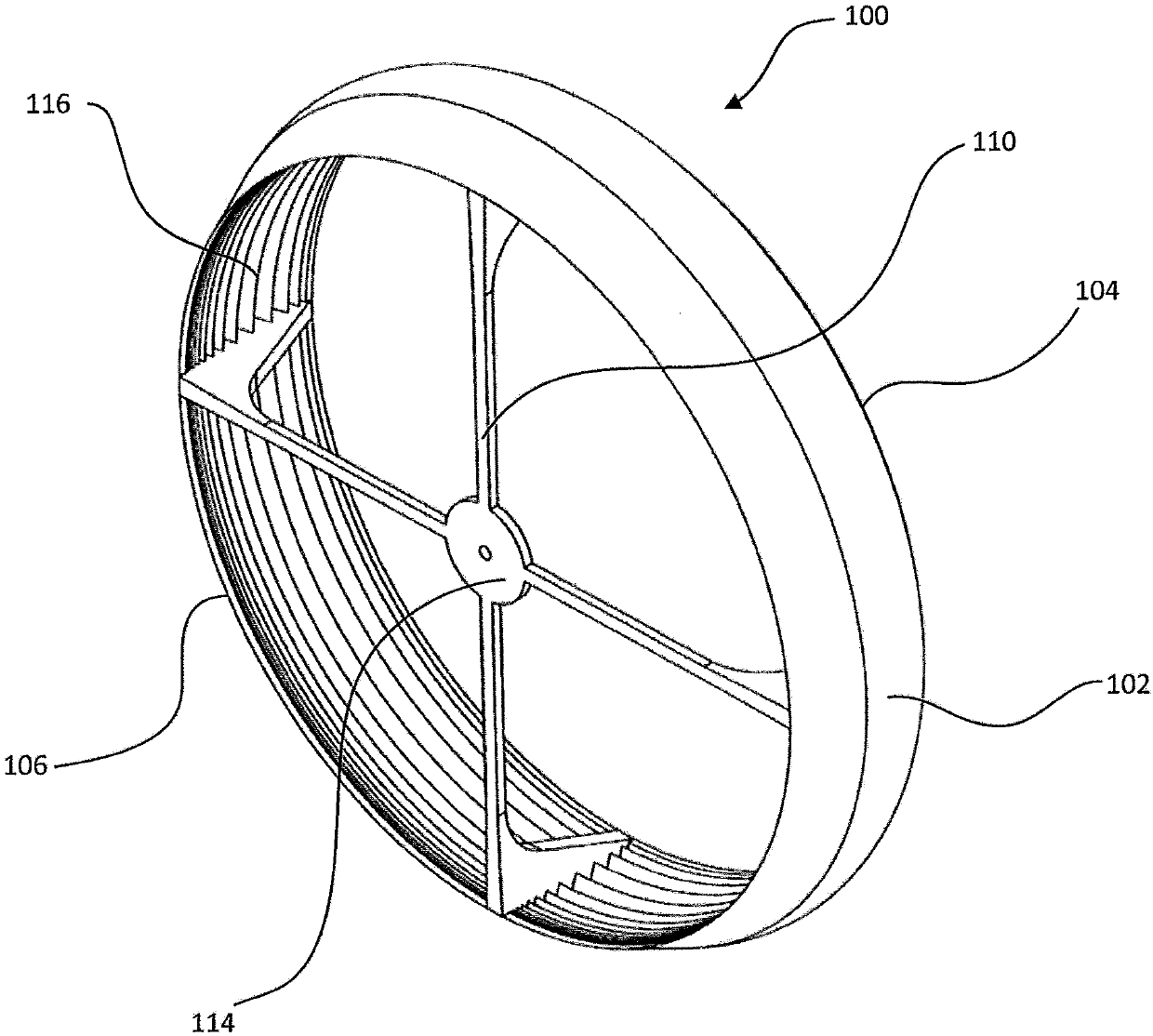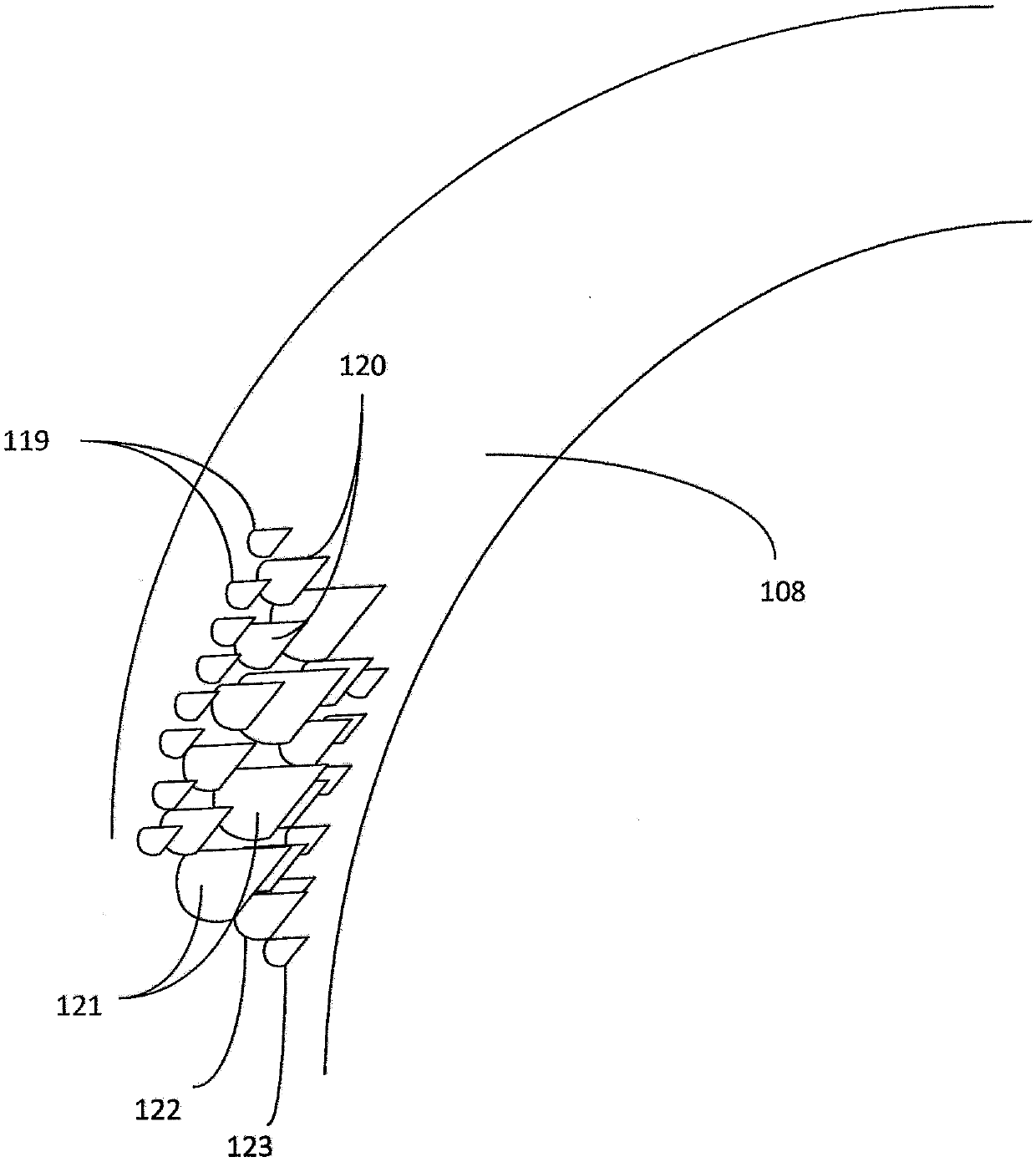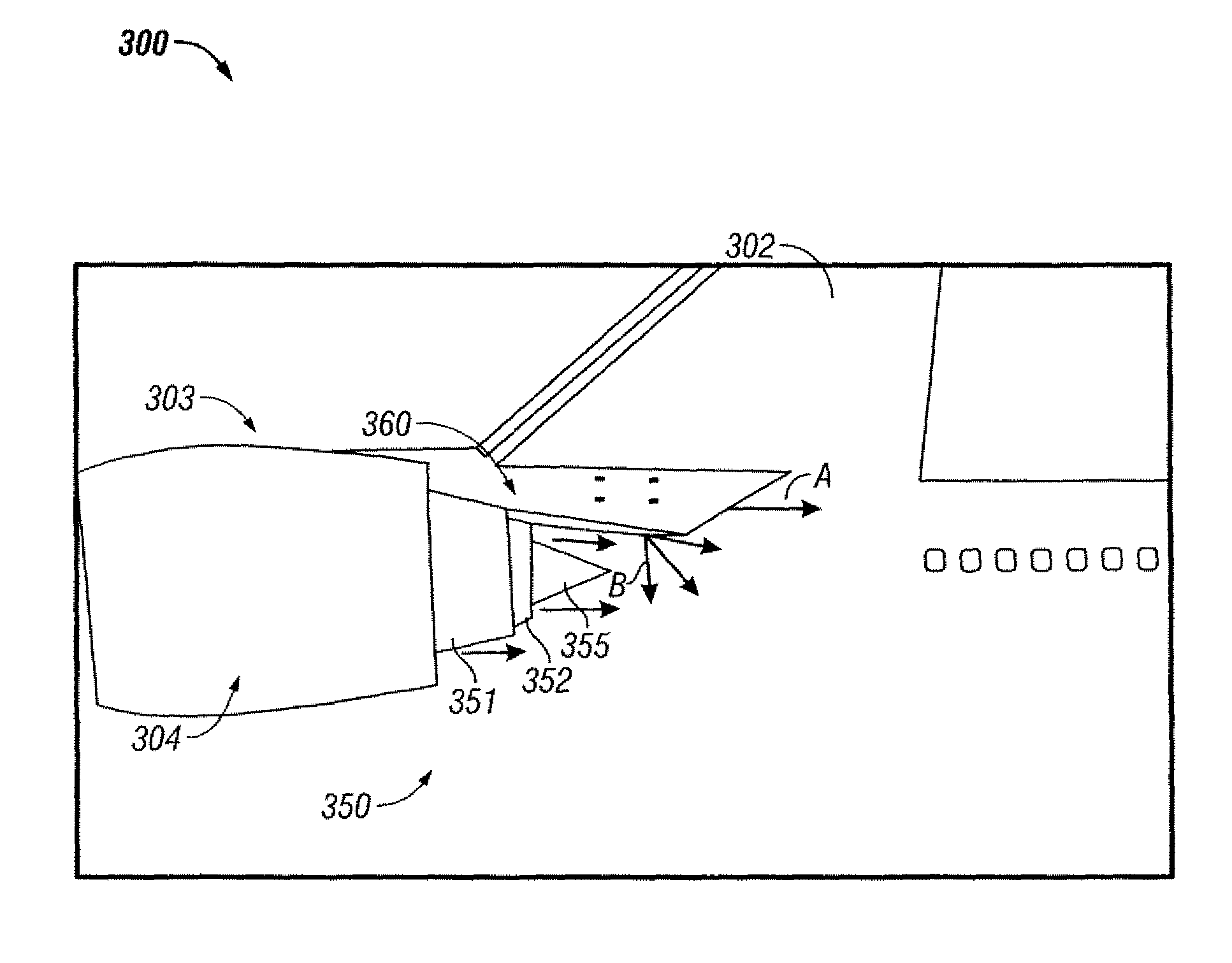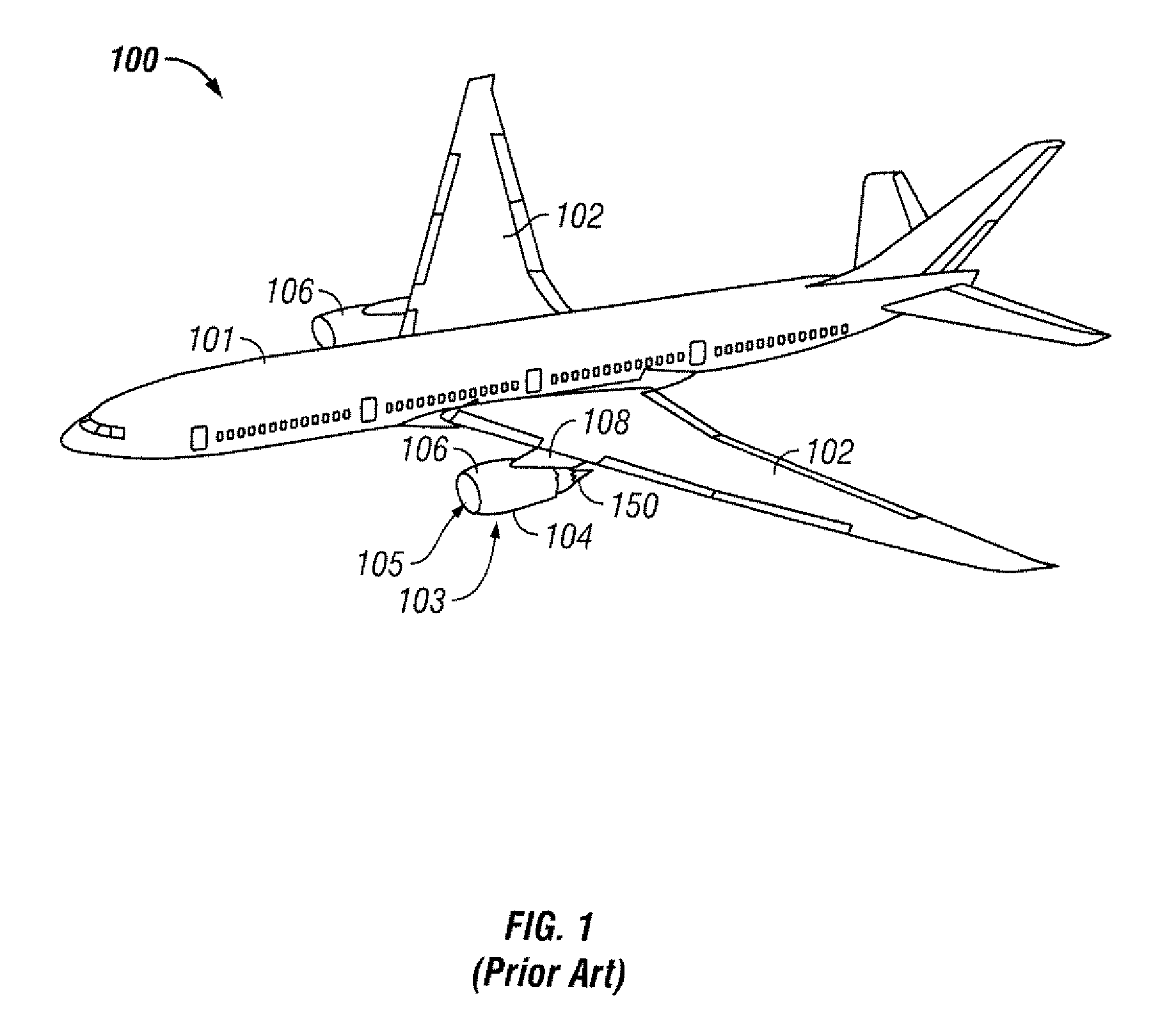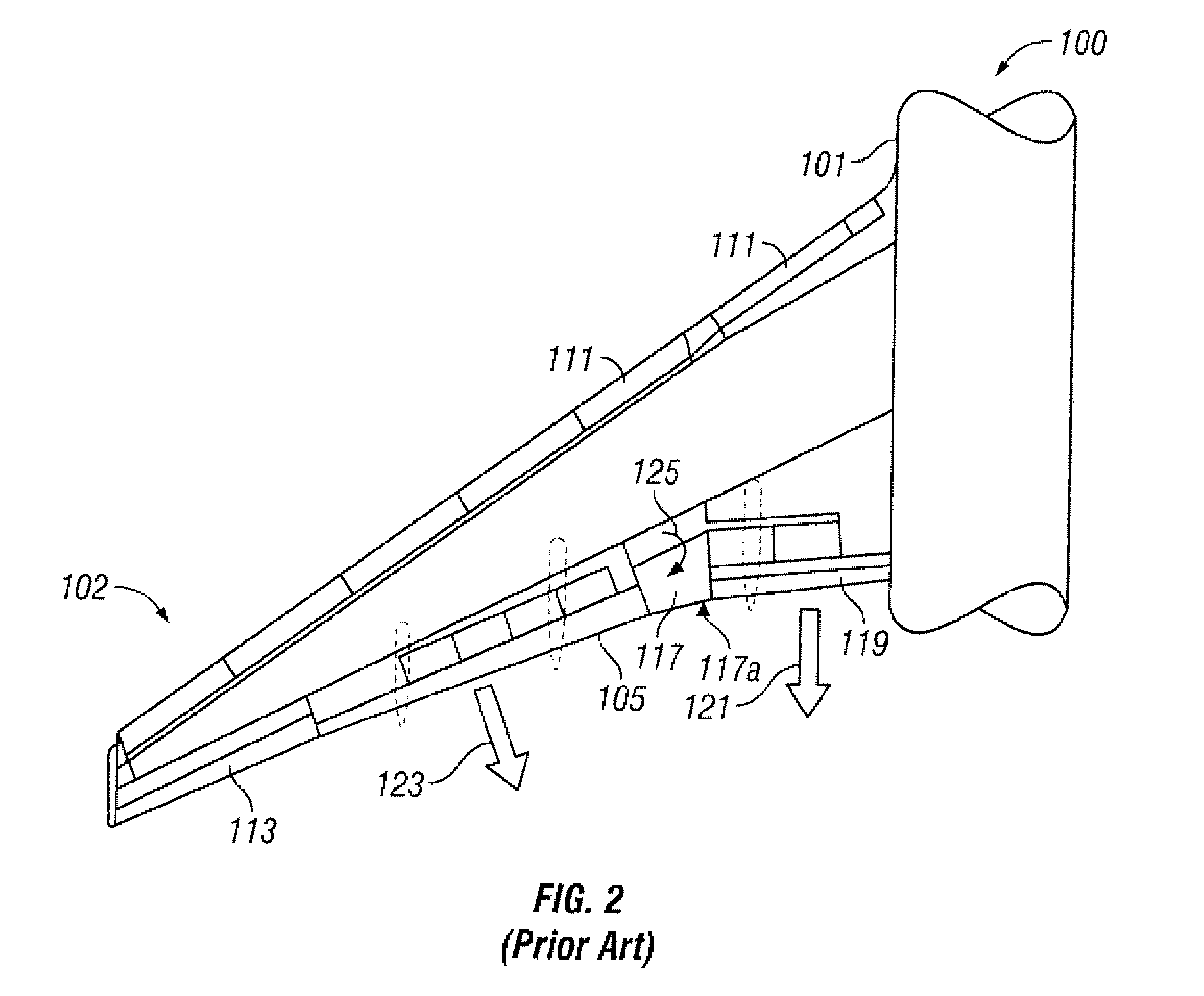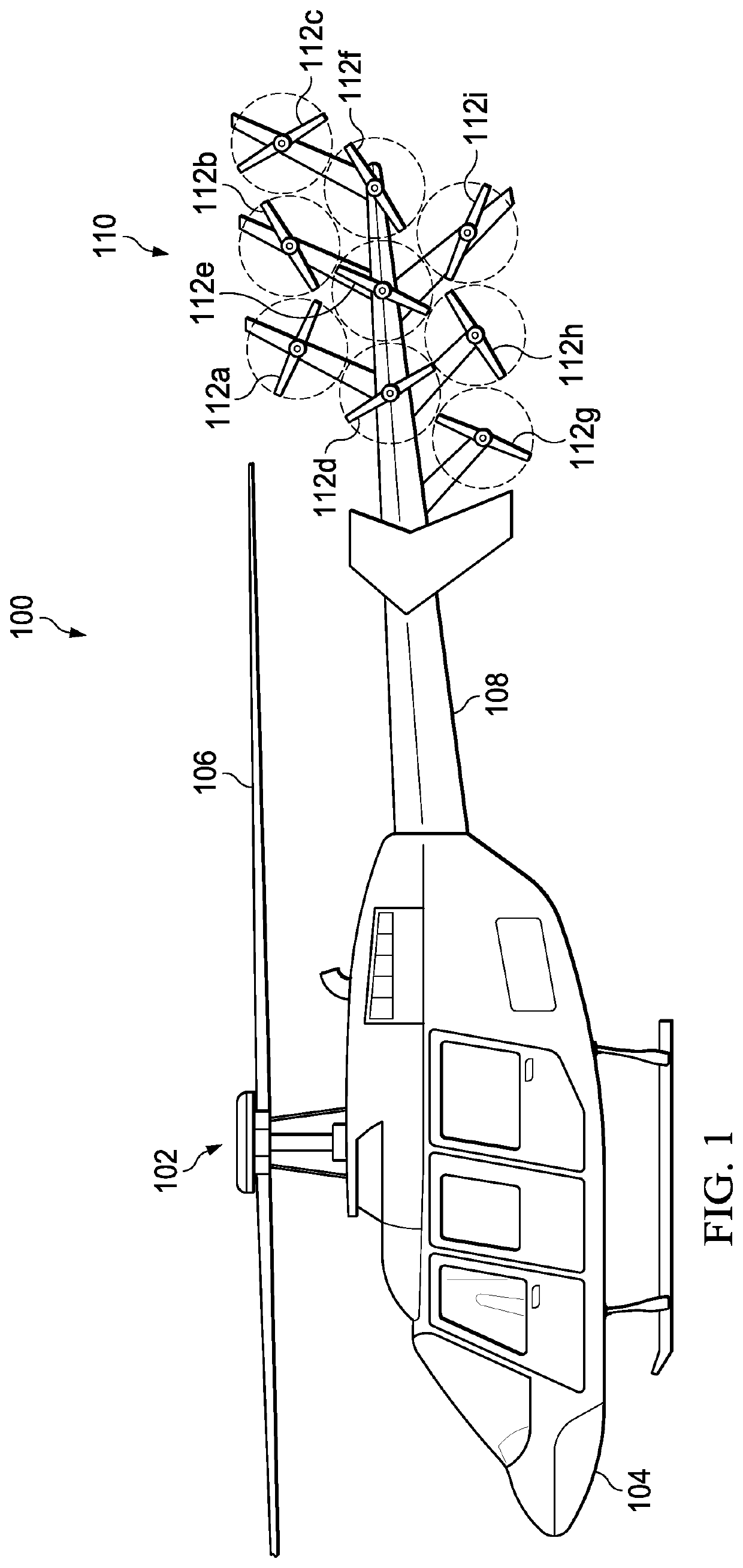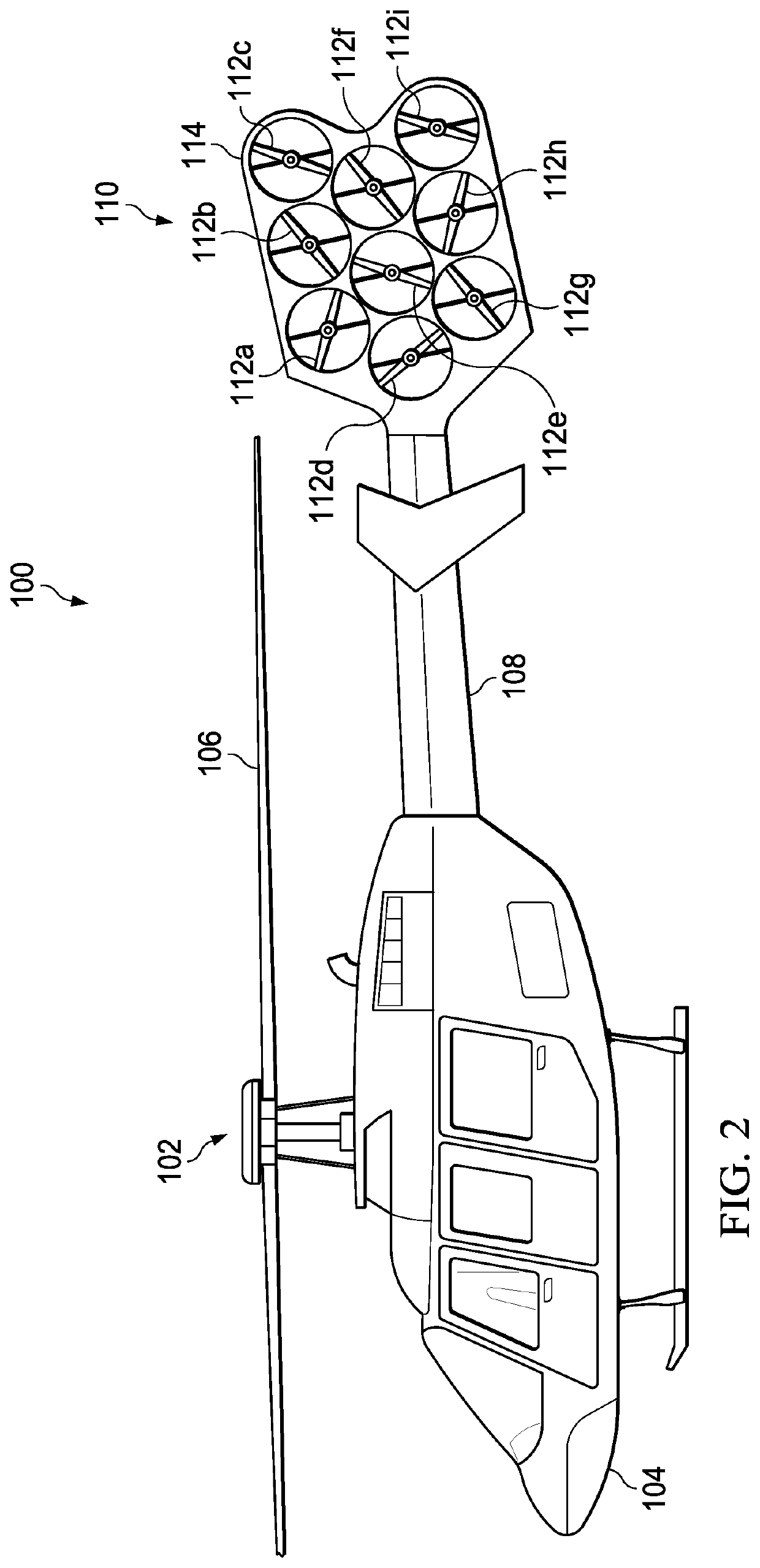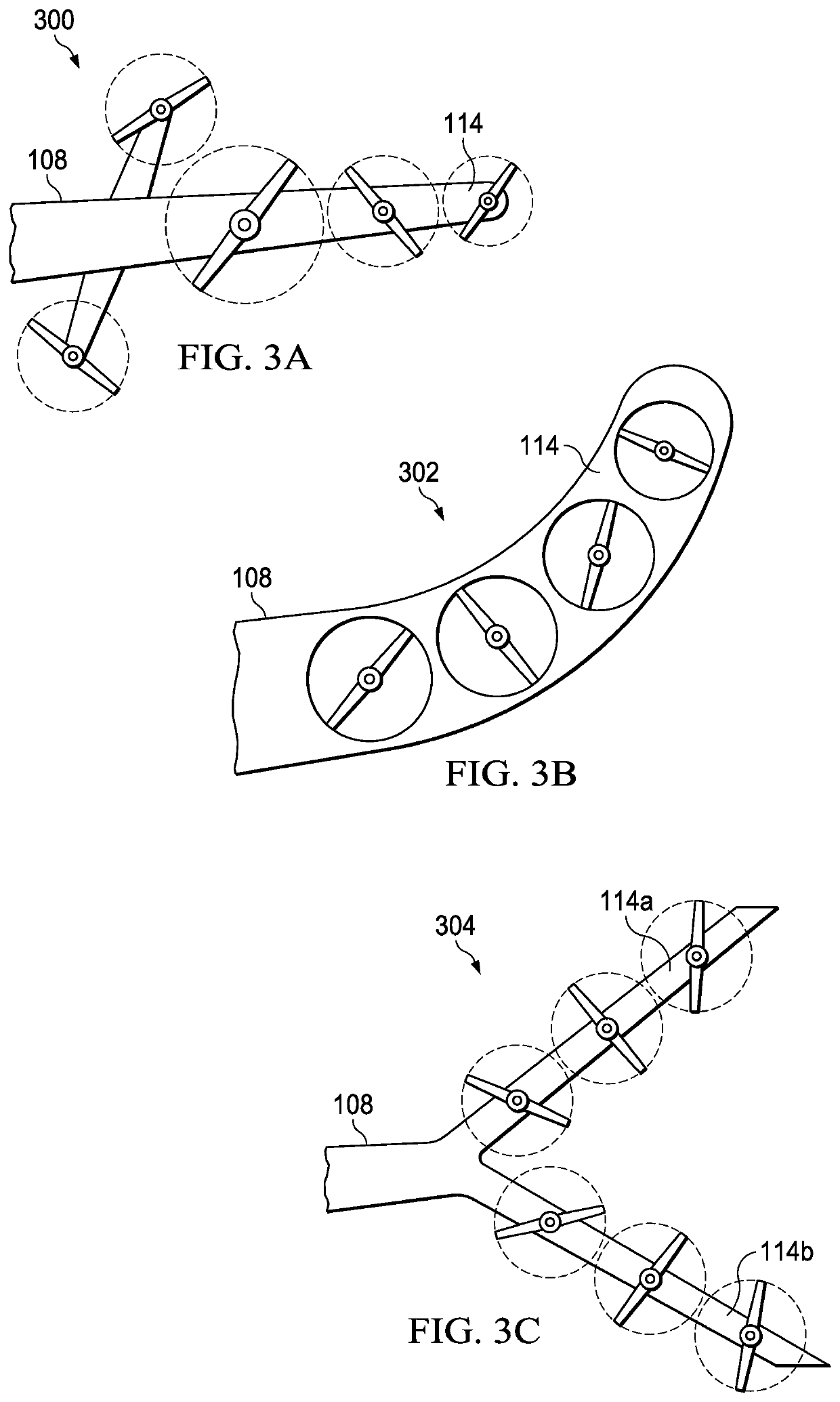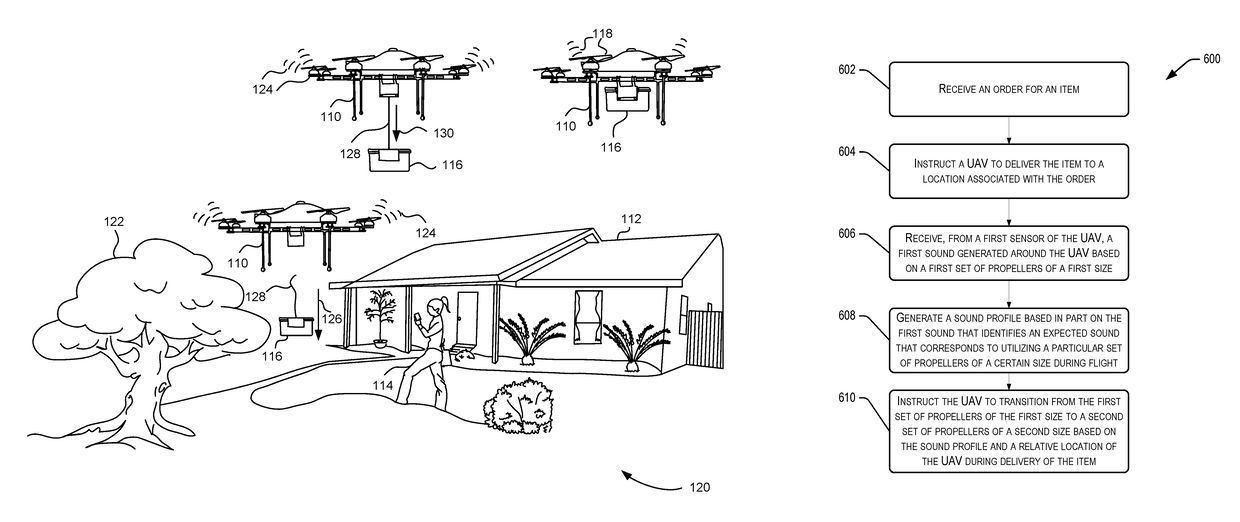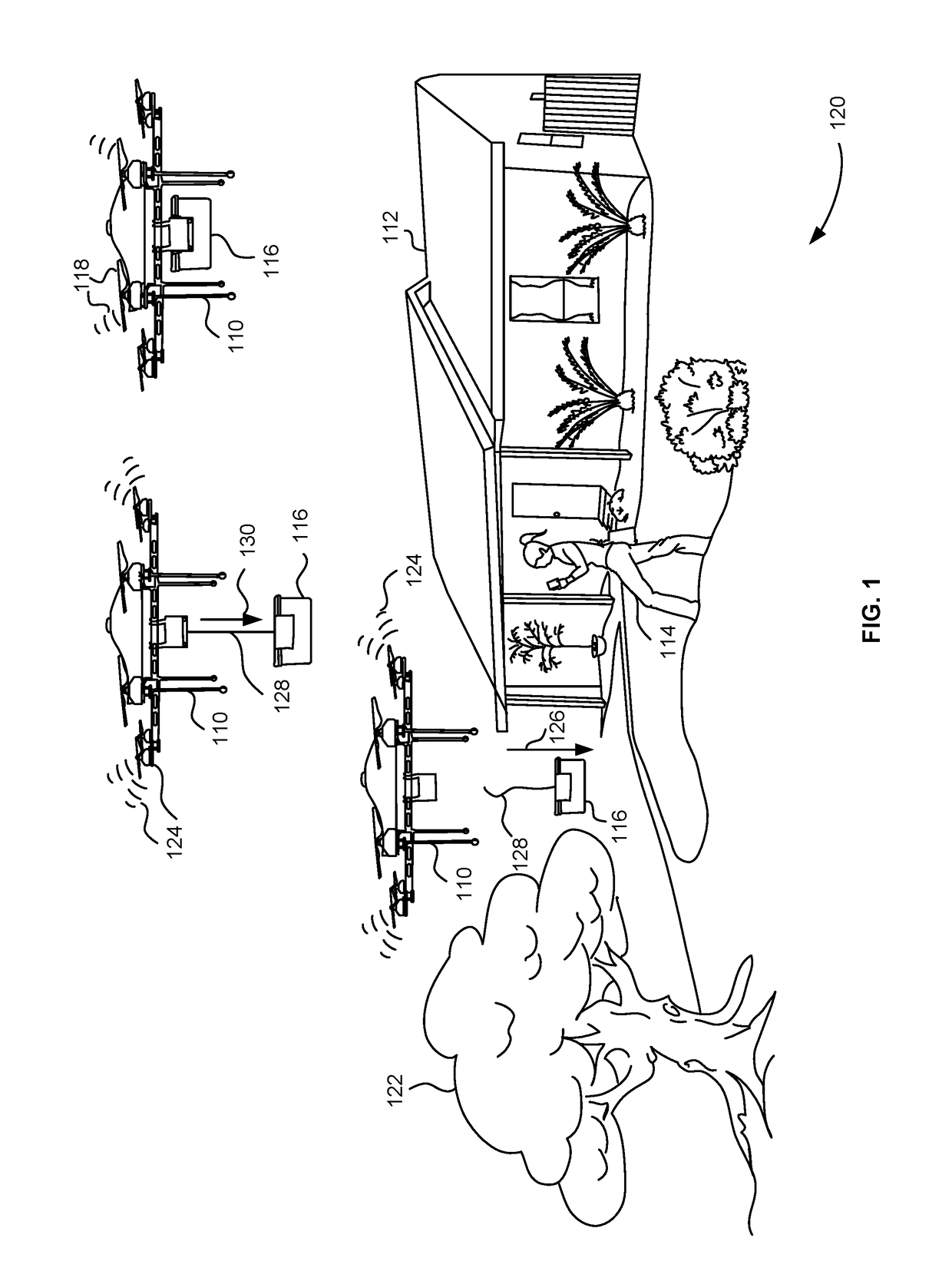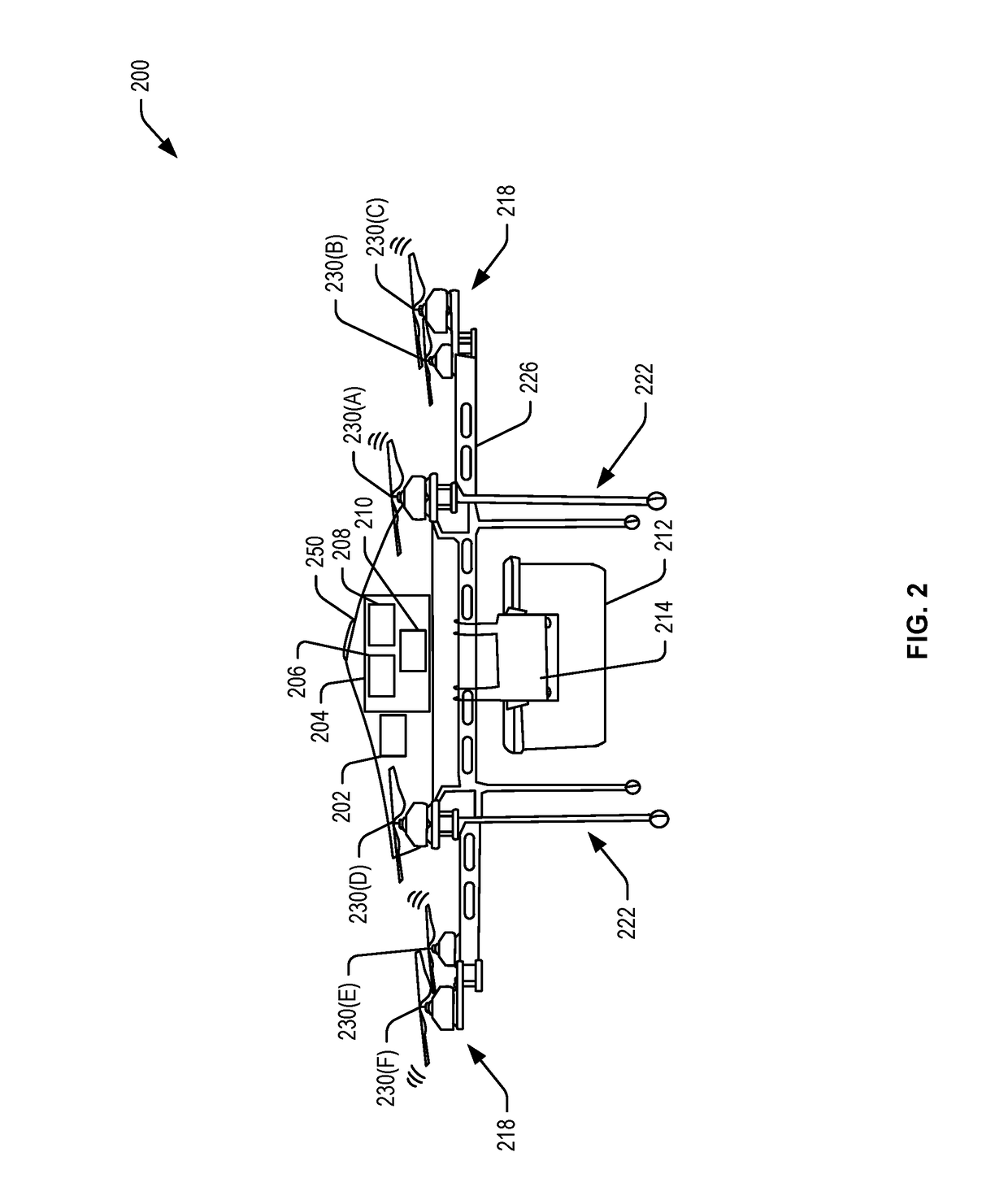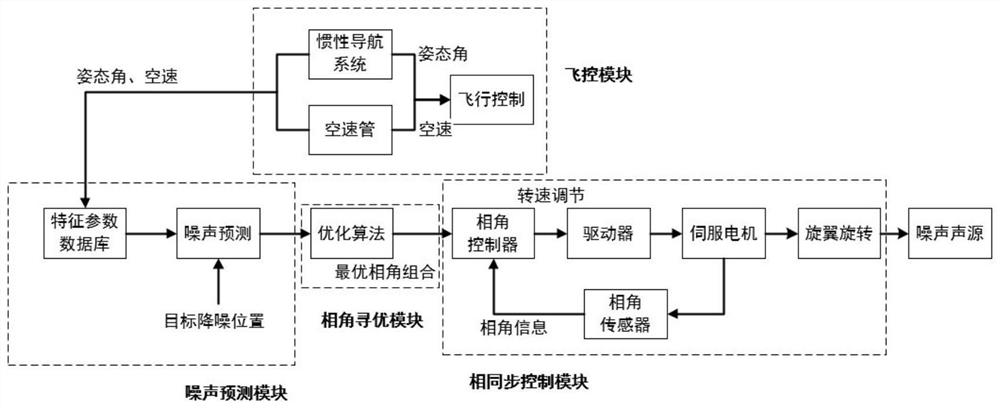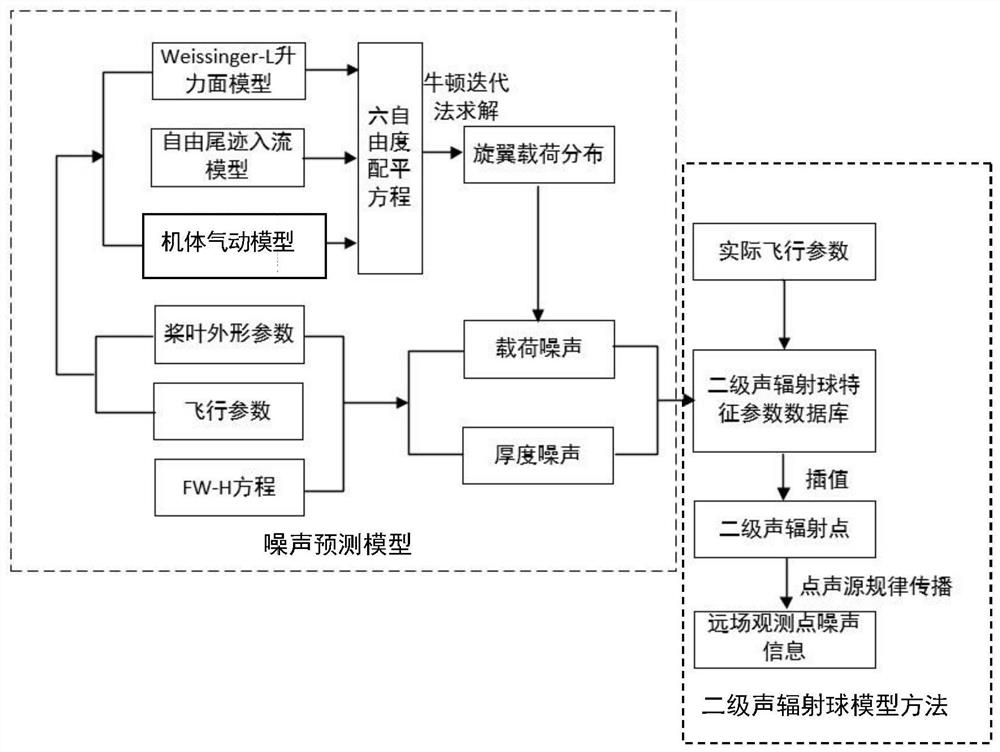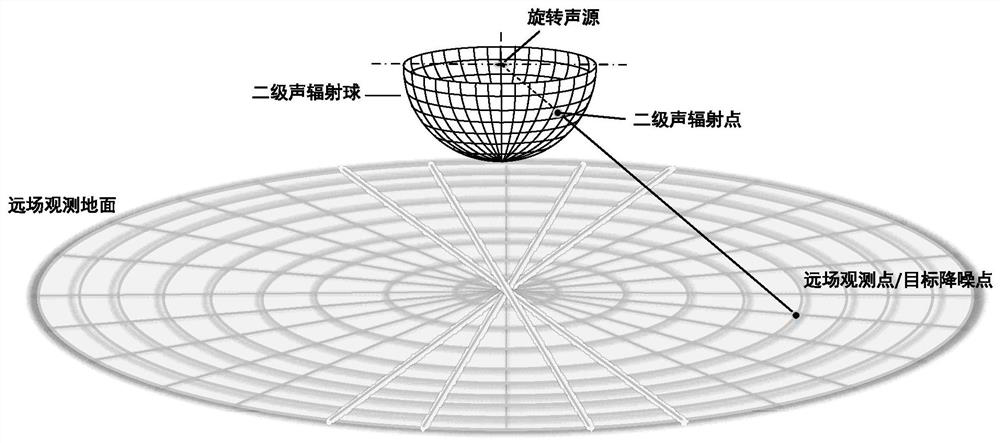Patents
Literature
83results about "Active noise reduction system" patented technology
Efficacy Topic
Property
Owner
Technical Advancement
Application Domain
Technology Topic
Technology Field Word
Patent Country/Region
Patent Type
Patent Status
Application Year
Inventor
Unmanned aerial vehicle (UAV) for collecting audio data
ActiveUS20160063987A1Reduce background noiseMicrophonesSignal processingAudio frequencyBackground noise
A UAV is provided to cancel background noise from audio data collected by the UAV. The UAV is provided with one or more background microphones in a proximity of one or more background noise-producing components. The UAV is also provided with one or more audio source collecting microphones. The audio data collected by the background microphones may be used to reduce or cancel interfering background noise from the audio signal detected by the audio source collecting microphone. The target audio may be captured or recorded with little or no background noise.
Owner:SZ DJI TECH CO LTD
Active airborne noise abatement
ActiveUS9442496B1Mechanical oscillations controlEnergy saving arrangementsSound pressureComputer science
Owner:AMAZON TECH INC
Anti-torque control using matrix of fixed blade pitch motor modules
ActiveUS20170349274A1Eliminate torqueReduce torqueActive noise reduction systemAttitude controlElectric machineComputer module
The present invention includes an a plurality of first variable speed motors arranged in a first matrix pattern and mounted on a tail boom of the helicopter; one or more fixed pitch blades attached to each of the plurality of first variable speed motors; and wherein a speed of one or more of the plurality of first variable speed motors is varied to provide an anti-torque thrust.
Owner:TEXTRON INNOVATIONS
Flap side edge liners for airframe noise reduction
InactiveUS8695915B1Reduce the amount requiredReduce volatilityBoundary layer controlsWingsBroadband noiseAbsorbed energy
One or more acoustic liners comprising internal chambers or passageways that absorb energy from a noise source on the aircraft are disclosed. The acoustic liners may be positioned at the ends of flaps of an aircraft wing to provide broadband noise absorption and / or dampen the noise producing unsteady flow features, and to reduce the amount of noise generated due to unsteady flow at the inboard and / or outboard end edges of a flap.
Owner:NASA
Delivery sound masking and sound emission
An unmanned aerial vehicle (UAV) may emit masking sounds during operation of the UAV to mask other sounds generated by the UAV during operation. The UAV may be used to deliver items to a residence or other location associated with a customer. The UAV may emit sounds that mask the conventional sounds generated by the propellers and / or motors to cause the UAV to emit sounds that are pleasing to bystanders or do not annoy the bystanders. The UAV may emit sounds using speakers or other sound generating devices, such as fins, reeds, whistles, or other devices which may cause sound to be emitted from the UAV. Noise canceling algorithms may be used to cancel at least some of the conventional noise generated by operation of the UAV using inverted sounds, while additional sound may be emitted by the UAV, which may not be subject to noise cancelation.
Owner:AMAZON TECH INC
Systems and Methods for Acoustic Radiation Control
ActiveUS20180319491A1Diminishing detectabilityPropellersUnmanned aerial vehiclesAuditory radiationNoise control
Disclosed is a system for controlling acoustic radiation from an aircraft. The system comprising a plurality of rotor systems (one or more) and a noise controller configured to regulate acoustic radiation from the plurality of rotor systems. The noise controller can be configured to regulate a commanded flight setting from the flight control system and to output a regulated flight setting to the plurality of rotor systems. Based on the regulated flight setting, the plurality of rotor systems are configured to generate, individually and in aggregate, acoustic radiation having a target acoustic behavior. The target acoustic behavior may be achieved using beamforming techniques to, for example, change the directionality of acoustic radiation from the plurality of rotor systems, or otherwise tune the acoustic radiation to reduce detectability and / or annoyance.
Owner:AURORA FLIGHT SCI CORP
Propeller sound field modification systems and methods
A propeller system for an aircraft includes an assembly for modifying a sound field of the propeller system. The propeller system includes a rotor supported for rotation about a rotor axis. The rotor has a central hub and a plurality of blades each extending outwardly from the hub to a tip. The rotor and blades are operable to propel an aircraft to travel in a direction. The rotor blades define a rotor plane perpendicular to the rotor axis. The blade tips define a circumferential rotational path as the blades are rotated by the rotor. The propeller system includes an acoustic resonator or multiple resonators having openings disposed within a distance to the propeller blade tip that is small compared to the wavelength of the propeller's fundamental blade tone and proximate to the rotor plane. The resonators are excited by tip flow of the blade as it passes the opening. The acoustic resonators are configured and positioned so as to direct acoustic energy to modify the sound field of the propeller system at blade pass or higher harmonic frequency tones in a desired direction relative to the aircraft.
Owner:KCF TECHNOLOGIES
Active Aircraft Pylon Noise Control System
An active pylon noise control system for an aircraft includes a pylon structure connecting an engine system with an airframe surface of the aircraft and having at least one aperture to supply a gas or fluid therethrough, an intake portion attached to the pylon structure to intake a gas or fluid, a regulator connected with the intake portion via a plurality of pipes, to regulate a pressure of the gas or fluid, a plenum chamber formed within the pylon structure and connected with the regulator, and configured to receive the gas or fluid as regulated by the regulator, and a plurality of injectors in communication with the plenum chamber to actively inject the gas or fluid through the plurality of apertures of the pylon structure.
Owner:NASA
Directed energy off-body heating for supersonic vehicle shockwave and sonic boom control
InactiveUS7641153B2Suppress noiseReduce the numberWingsActive noise reduction systemMicrowaveEngineering
Methods and apparatus for suppressing noise. The present invention provides a method that includes directing a laser at a first volume of gas and directing microwave radiation to a second volume. The method includes selecting the location of the second volume so that it is overrun by a shockwave system of a supersonic vehicle. Preferably, the directing of the radiation is from a vehicle that flies at high altitude and is of practical length (e.g., 100-400 feet or more). The radiation may be pulsed and steered. The present invention also provides a system including a laser and microwave antenna for controlling the noise of a supersonic vehicle. The laser is directed at a first volume while the antenna is pointed at a second volume that envelops the first volume. The location of the second volume is such that it will be overrun by the shockwave system of the vehicle.
Owner:THE BOEING CO
Method for damping rear extension arm vibrations of rotorcraft and rotorcraft with a rear extension arm vibration damping device
InactiveUS20080173754A1Improved tail boom vibration propertyGreat flight comfortPropellersNon-rotating vibration suppressionEngineeringActuator
A method for damping vibrations in a tail boom of a rotary-wing aircraft includes the steps of detecting tail boom vibrations induced by external vibration excitation, and generating and introducing strains into the tail boom based on the detected tail boom vibrations. The strains are applied over a surface area and are out-of-phase with respect to the detected tail boom vibrations so as to damp the externally excited induced tail boom vibrations. In addition, a rotary-wing aircraft, includes a fuselage, a cockpit area integrated into the fuselage, a tail boom arranged on the fuselage and a tail boom vibration-damping device. The vibration-damping device has at least one sensor element configured to detect tail boom vibrations induced by external vibration excitation and at least one actuator configured to generate and introduce strains into the tail boom that are out-of-phase with respect to the induced tail boom vibrations, the actuator being functionally coupled to the sensor element, engaging with a tail boom structure at one side of the tail boom, and forming a flat-surfaced bond with the tail boom.
Owner:AIRBUS OPERATIONS GMBH
Landing gear door liners for airframe noise reduction
A landing gear door for retractable landing gear of aircraft includes an acoustic liner. The acoustic liner includes one or more internal cavities or chambers having one or more openings that inhibit the generation of sound at the surface and / or absorb sound generated during operation of the aircraft. The landing gear door may include a plurality of internal chambers having different geometries to thereby absorb broadband noise.
Owner:GULFSTREAM AEROSPACE CORP +1
Active cancellation and vibration isolation with feedback and feedforward control for an aircraft engine mount
ActiveUS8439299B2Hinders its propagationDissipate energyMechanical oscillations controlPower plant arrangements/mountingSensing dataControl signal
An engine mount structure is provided with active vibration mechanisms which are attached in the vicinity of the engine mount to prevent engine vibrations from propagating into the engine mounting structure, for example, the wing or fuselage structure of an aircraft. Additionally, sensors are provided on the engine and / or wing / fuselage structure to provide control signals to the active vibration mechanisms so that the active vibration mechanism react to the sensed data to minimize the vibration transmissibility from the engine into the wing / fuselage.
Owner:GENERAL ELECTRIC CO
Method and system for reducing engine induced vibration amplitudes in an aircraft fuselage
InactiveUS20040104302A1Improved passenger comfortEasy to movePower plant arrangements/mountingNon-rotating vibration suppressionVibration amplitudeControl signal
Vertical and / or lateral acceleration sensors are mounted in or on the engines or pylons of an aircraft to measure the vibrations induced by the operating dynamics of the engines. The sensors provide measured vibration signals to a controller that generates control signals in response to and dependent on the measured vibration signals. The control signals are provided to the aileron actuators, so as to actuate the ailerons appropriately to counteract and thereby reduce the engine-induced vibrations. Thus, the engine-induced vibrations acting on the fuselage are diminished and the passenger flight comfort is significantly improved.
Owner:SCHIERENBECK DETLEF
Dynamically detecting resonating frequencies of resonating structures
ActiveUS20140327489A1Sampled-variable control systemsMultiple-port networksUltrasound attenuationEngineering
There is described herein a real-time scheme, implementable in software, hardware, or a combination thereof, to detect a resonating frequency of a structure from a sensed signal and dynamically set the center frequency of an adaptive compensator for effective attenuation of the resonating frequency.
Owner:PRATT & WHITNEY CANADA CORP
Aircraft multi-axis modal suppression system
InactiveUS20060237594A1Accurate inductionActuated automaticallyActive noise reduction systemControl signalEngineering
Vibrations due to excitation of the natural modes of an aircraft's body are suppressed by an active multi-axis modal suppression system. Dedicated sensors are positioned in the aircraft at optimal locations for sensing modal induced vibrations. The sensor produced signals are processed through control logic which, in response thereto, and in response to aircraft inertial, velocity and altitude related signals produces output control signals. The control signals effect control surface deployment creating forces to suppress the natural mode induced vibrations on multiple geometric axis's. More particularly, symmetric and anti-symmetric control surface deployments are used on one or more geometric axis's to damp lateral, longitudinal, vertical and most importantly torsional vibrational modes.
Owner:THE BOEING CO
Drone-based interactive and active audio system
InactiveUS20190130889A1Improve acousticsMicrophonesTransducer detailsEnvironmental soundsEngineering
A drone-based audio system comprising a microphone mounted to a drone body for receiving environmental sound information. The drone-based audio system additionally comprising a processing unit configured to analyze the environmental sound information and calculate active noise cancellation information. The drone-based audio system further comprising a speaker mounted to the drone body for emitting the active noise cancellation information.
Owner:UAVPATENT CORP
Method for damping rear extension arm vibrations of rotorcrafts and rotorcraft with a rear extension arm vibration damping device
InactiveUS20070001052A1Improved tail boom vibration propertyGreat flight comfortAircraft stabilisationNon-rotating vibration suppressionEngineeringActuator
A method for damping vibrations in a tail boom of a rotary-wing aircraft includes the steps of detecting tail boom vibrations induced by external vibration excitation, and generating and introducing strains into the tail boom based on the detected tail boom vibrations. The strains are applied over a surface area and are out-of-phase with respect to the detected tail boom vibrations so as to damp the externally excited induced tail boom vibrations. In addition, a rotary-wing aircraft, includes a fuselage, a cockpit area integrated into the fuselage, a tail boom arranged on the fuselage and a tail boom vibration-damping device. The vibration-damping device has at least one sensor element configured to detect tail boom vibrations induced by external vibration excitation and at least one actuator configured to generate and introduce strains into the tail boom that are out-of-phase with respect to the induced tail boom vibrations, the actuator being functionally coupled to the sensor element, engaging with a tail boom structure at one side of the tail boom, and forming a flat-surfaced bond with the tail boom.
Owner:EUROCOPTER DEUT GMBH
Directed energy off-body heating for supersonic vehicle shockwave and sonic boom control
InactiveUS20070114322A1Improved overall vehicle design flexibilitySuppress noiseWingsFuselage insulationEngineeringMicrowave irradiation
Methods and apparatus for suppressing noise. The present invention provides a method that includes directing a laser at a first volume of gas and directing microwave radiation to a second volume. The method includes selecting the location of the second volume so that it is overrun by a shockwave system of a supersonic vehicle. Preferably, the directing of the radiation is from a vehicle that flies at high altitude and is of practical length (e.g., 100-400 feet or more). The radiation may be pulsed and steered. The present invention also provides a system including a laser and microwave antenna for controlling the noise of a supersonic vehicle. The laser is directed at a first volume while the antenna is pointed at a second volume that envelops the first volume. The location of the second volume is such that it will be overrun by the shockwave system of the vehicle.
Owner:THE BOEING CO
Noise control system for a ducted rotor assembly
ActiveUS10210856B1Reduce acoustic signatureReducing an acoustic signatureMicrophonesLoudspeakersNoise controlControl system
A noise control system for a ducted rotor assembly, the ducted rotor assembly including a hub, a duct, and two or more blades coupled to the hub and supported by the duct. The noise control system including a microphone configured to receive a sound input generated by the ducted rotor assembly, the microphone configured for association with the hub; a speaker unit configured to generate a cancellation noise, the speaker configured for association with the hub; and a controller operably connected to the microphone and the speaker unit, the controller configured to selectively adjust harmonics of the cancellation noise to reduce an acoustic signature of the ducted rotor assembly. In another aspect, there is provided a rotorcraft with a ducted rotor assembly in a tail portion including a noise control system. In a third aspect, there is a method of reducing an acoustic signature of a ducted rotor assembly.
Owner:BELL HELICOPTER TEXTRON INC
Aircraft multi-axis modal suppression system
InactiveUS6915989B2Accurate inductionActuated automaticallyActive noise reduction systemFlight vehicleControl signal
Vibrations due to excitation of the natural modes of an aircraft's body are suppressed by an active multi-axis modal suppression system. Dedicated sensors are positioned in the aircraft at optimal locations for sensing modal induced vibrations. The sensor produced signals are processed through control logic which, in response thereto, and in response to aircraft inertial, velocity and altitude related signals produces output control signals. The control signals effect control surface deployment creating forces to suppress the natural mode induced vibrations on multiple geometric axis's. More particularly, symmetric and anti-symmetric control surface deployments are used on one or more geometric axis's to damp lateral, longitudinal, vertical and most importantly torsional vibrational modes.
Owner:THE BOEING CO
Unmanned aerial vehicle (UAV) for collecting audio data
A UAV is provided to cancel background noise from audio data collected by the UAV. The UAV is provided with one or more background microphones in a proximity of one or more background noise-producing components. The UAV is also provided with one or more audio source collecting microphones. The audio data collected by the background microphones may be used to reduce or cancel interfering background noise from the audio signal detected by the audio source collecting microphone. The target audio may be captured or recorded with little or no background noise.
Owner:SZ DJI TECH CO LTD
Method and aircraft system for active suppression of aircraft low frequency aerostructure lateral bending modes
An aircraft with an aircraft elastic aerostructure body inflight aerodynamically initiated transient lateral modal bending response suppression system is provided. The aircraft elastic aerostructure body has an inflight aerodynamically initiated transient lateral modal bending response which is suppressed by the transient lateral modal bending response suppression system. The aircraft transient lateral modal bending response suppression system includes a sensor for sensing the inflight aerodynamically initiated transient lateral modal bending response and an electromagnetic moving mass shaker, the electromagnetic moving mass shaker having a moving mass and a mounting base, with the moving mass shaker mounted to the elastic aerostructure body with the mounting base. The system includes a controller wherein the first sensor outputs a sensed lateral modal bending response signal into the controller and the controller electromagnetically drives the electromagnetic moving mass shaker to suppress the lateral modal bending response.
Owner:LORD CORP
Methods and systems for reducing rotor acoustics of an aircraft
PendingUS20210139138A1Efficient propulsion technologiesActive noise reduction systemFlight vehicleClassical mechanics
A system for reducing rotor acoustics of an aircraft. The system includes a structural feature of an aircraft and a propulsor configured for fixed-wing flight mounted on the structural feature. The system further includes a plurality of rotors mounted on the structural feature. The plurality of rotors are configured to include a first rotor, a first motor mechanically coupled to the first rotor, a second rotor, and a second motor mechanically coupled to the second rotor. The system further includes an aircraft controller communicating with the first motor, second motor, and the propulsor. The system includes an alignment module configured to place the second rotor in alignment with the first rotor. The system further includes a rotational control module configured to initiate rotation of the plurality of rotors. Initiating rotation of the plurality of rotors further includes initiating rotation of the first rotor and the second rotor.
Owner:BETA AIR LLC
Flow Disruption Devices for the Reduction of High Lift System Noise
InactiveUS20160311524A1Reduce noise radiationReduce noiseInfluencers by generating vorticesBoundary layer controlsFlow disruptionHigh lift
Various embodiments provide systems and methods for noise reduction for lift-augmentation wing-sections (e.g., flaps, slats, elevons, etc.) by the use of flow disruption devices placed upstream of vortex generation locations. The flow disruption devices may reduce the noise radiating from side edges of lift-augmentation control wing sections. An embodiment flow disruption device may include a body configured to protrude into a flow over a vehicle's surface, wherein the body is coupled to the vehicle upstream of a side edge of a structure of the vehicle such that a wake produced by the body introduces unsteadiness and a flow velocity deficit in a vortex formation region of the side edge of the structure.
Owner:NASA
Systems and methods for acoustic radiation control
ActiveUS10435148B2Diminishing detectabilityPropellersUnmanned aerial vehiclesNoise controlAuditory radiation
Disclosed is a system for controlling acoustic radiation from an aircraft. The system comprising a plurality of rotor systems (one or more) and a noise controller configured to regulate acoustic radiation from the plurality of rotor systems. The noise controller can be configured to regulate a commanded flight setting from the flight control system and to output a regulated flight setting to the plurality of rotor systems. Based on the regulated flight setting, the plurality of rotor systems are configured to generate, individually and in aggregate, acoustic radiation having a target acoustic behavior. The target acoustic behavior may be achieved using beamforming techniques to, for example, change the directionality of acoustic radiation from the plurality of rotor systems, or otherwise tune the acoustic radiation to reduce detectability and / or annoyance.
Owner:AURORA FLIGHT SCI CORP
A shroud for an aircraft
A shroud for an aircraft having a noise reducing material on or in an inner surface of the shroud adjacent to one or more tips of the propeller. The noise reducing material is preferably an electrospun nanomaterial, particularly a ridged composite acoustic nanofibre. The interior surface of the shroud may be provided with a plurality of sound deflectors configured to dissipate sound by reflectionand refraction, and absorb sound into the shroud body. The sound deflectors may be ribs or arrangements of discrete reflector elements.
Owner:DOTTEREL TECH LTD
Active aircraft pylon noise control system
An active pylon noise control system for an aircraft includes a pylon structure connecting an engine system with an airframe surface of the aircraft and having at least one aperture to supply a gas or fluid therethrough, an intake portion attached to the pylon structure to intake a gas or fluid, a regulator connected with the intake portion via a plurality of pipes, to regulate a pressure of the gas or fluid, a plenum chamber formed within the pylon structure and connected with the regulator, and configured to receive the gas or fluid as regulated by the regulator, and a plurality of injectors in communication with the plenum chamber to actively inject the gas or fluid through the plurality of apertures of the pylon structure.
Owner:NASA
Anti-torque control using matrix of fixed blade pitch motor modules
The present invention includes an a plurality of first variable speed motors arranged in a first matrix pattern and mounted on a tail boom of the helicopter; one or more fixed pitch blades attached to each of the plurality of first variable speed motors; and wherein a speed of one or more of the plurality of first variable speed motors is varied to provide an anti-torque thrust.
Owner:TEXTRON INNOVATIONS
Propeller sound alteration for a drone
Techniques for using an unmanned aerial vehicle (UAV) to deliver a payload while reducing and / or altering sound generated by the UAV during delivery may be provided. For example, during delivery, the UAV may be instructed to utilize one or more sets of propellers of different sizes to reduce and / or alter the sound generated by and / or around the UAV. Intrinsic and extrinsic information associated with the UAV may be utilized to dynamically adjust the particular sets of propellers of a certain and different size to utilize during different portions of a flight path while delivering the payload.
Owner:AMAZON TECH INC
Multi-rotor aircraft noise suppression method based on phase angle control
PendingCN112487730AImprove noise reductionEnhanced inhibitory effectGeometric CADSustainable transportationFlight vehicleControl engineering
The invention discloses a multi-rotor aircraft noise suppression method based on phase angle control, and the method comprises the following steps that a system obtains the three-dimensional coordinates of a target noise reduction position, and transmits the position information to a noise prediction module; the flight control module takes the attitude angle and the speed as characteristic parameters and sends the characteristic parameters to the noise prediction module; the noise prediction module calculates noise information generated by a rotor at a target position through a rapid noise prediction method and sends the noise information to the phase angle optimization module; the phase angle optimization module obtains an optimal phase angle combination based on an optimization algorithmand sends the optimal phase angle combination to the phase synchronization control module; and the phase synchronization control module adjusts the phase angle positions of the plurality of rotors according to the received optimal phase angle combination in combination with the phase angle position information to realize noise reduction of the target position. According to the invention, the target function can be adjusted and optimized according to the noise reduction requirement, and compared with a passive noise reduction method, the method of the invention can control noise components ina targeted mode and has a better inhibition effect on multi-rotor-wing low-frequency-band noise.
Owner:NANJING UNIV OF AERONAUTICS & ASTRONAUTICS
Features
- R&D
- Intellectual Property
- Life Sciences
- Materials
- Tech Scout
Why Patsnap Eureka
- Unparalleled Data Quality
- Higher Quality Content
- 60% Fewer Hallucinations
Social media
Patsnap Eureka Blog
Learn More Browse by: Latest US Patents, China's latest patents, Technical Efficacy Thesaurus, Application Domain, Technology Topic, Popular Technical Reports.
© 2025 PatSnap. All rights reserved.Legal|Privacy policy|Modern Slavery Act Transparency Statement|Sitemap|About US| Contact US: help@patsnap.com
